Edwin O. Reischauer Institute of Japanese Studies
Harvard University
2012-2014 Biennial Report
1
The Edwin O. Reischauer Institute of Japanese Studies at Harvard University promotes research on Japan and brings together Harvard faculty, students, leading scholars from other institutions, and visitors to create one of the world’s leading communities for the study of Japan.
Our Goals
• Cooperate with the Asia Center and other related programs at Harvard to increase the public’s understanding of Japan and Asia in the United States and abroad
• Expand and enrich research and teaching on Japan throughout the University
• Strengthen the ties between Harvard University and Japan
Edwin O. Reischauer Institute of Japanese Studies
Harvard University
Center for Government and International Studies, South Building 1730 Cambridge Street, Cambridge, Massachusetts 02138
Phone 617.495.3220
Fax 617.496.8083
Email rijs@fas.harvard.edu
Website http://rijs.fas.harvard.edu/
EAS
Fairbank
for
FAS Faculty of Arts and Sciences
GSAS Graduate School of Arts and Sciences
GSD Graduate School of Design
GSE Graduate School of Education
HAA History of Art and Architecture Department
HBS Harvard Business School
HEAL History and East Asian Languages
HKS Harvard Kennedy School
HSPH Harvard School of Public Health
HYI Harvard-Yenching Institute
HYL Harvard-Yenching Library
KI Korea Institute
RI Reischauer Institute of Japanese Studies
RSEA Regional Studies-East Asia (Master’s) Program
SAI South Asia Institute
USJRP Program on U.S.-Japan Relations
VES Visual and Environmental Studies Department
WCFIA Weatherhead Center for International Affairs
Contents Reischauer Institute 40th Anniversary Forty Years at a Glance 2 About the Institute Edwin O. Reischauer 14 Home in CGIS 15 Director 16 Faculty Awards 16 New Faculty 17 Full Committee of the Institute.................................18 Advancing Research in Japanese Studies Support for Faculty Research 20 Visiting Scholars 22 Postdoctoral Fellows ....................................................24 Graduate Student Associates-in-Residence .............24 Japan Forum ...................................................................25 Other Seminars .............................................................30 Workshops, Conferences, Events & Symposia .......32 Collaborative Study Projects ......................................35 Japan Disasters Digital Archive .................................37 Sanriku Project ..............................................................38 Publications ....................................................................42 Program on U.S.-Japan Relations ..............................43 Harvard’s Libraries 44 Supporting Harvard’s Educational Mission Programs for Harvard Undergraduates ....................46 Undergraduate Japan Experience 2012-2014 .........52 Support for Graduate Student Training 54 Graduate Research and Training 2012-2014 58 Curriculum and Teaching 62 Courses on Japan at Harvard 2012-2014 66 Ties to the Community Building Social and Intellectual Networks on Campus 70 Fostering a Network in the Boston-Cambridge Community, and Beyond ............................................71 Maintaining Ties with Organizations Abroad 72 Associates in Research 74 Administration Abbreviation Key AC Asia Center CGIS Center for Government and International Studies DAVIS CENTER Davis Center for Russian and Eurasian Studies DRCLAS David Rockefeller Center for Latin American Studies EALC East Asian Languages and Civilizations Department
East Asian Studies (Undergraduate)
Fairbank
Chinese
Center
Studies
The Reischauer Institute celebrated its 40th anniversary during spring 2013 and academic year 2013-14 with a cascade of special events, including seminars, workshops, performances, and exhibitions.
Founded in December 1973 as the Japan Institute by an initial grant from the Japanese government and subsequent Japanese corporate gifts through the Japan Foundation, the Institute was renamed in 1985 in honor of its founder, Edwin O. Reischauer. Since 1973, the Institute has initiated a profusion of programs, opportunities, and activities that have sustained and enriched its original mandate—to strengthen Japanese studies at Harvard, stimulate interest in Japan in the wider community, establish ties with the Japanese studies community in the U.S., and encourage cooperation and understanding between the United States and Japan.
The Institute’s initiatives have included increased numbers of faculty and professorships, a wide array of courses on and off campus and in Japan, support for undergraduate and graduate student travel/research and professional development, postdoctoral fellowships, hosting of visiting scholars and pairing them with students, sponsorship of lectures, workshops, study groups, symposia, publications, and arts events, and the creation and maintenance of digital archives that record important events in contemporary Japanese history.
Faculty & Professorships
Since 1973, the number of Harvard faculty who teach courses on Japan and use Japanese in their research has more than tripled.
1973-74: 10 teaching
1993-94: 14 teaching plus 3 emeritus
2003-04: 21 teaching plus 7 emeritus
2013-14: 35 teaching plus 9 emeritus
■ 6 Endowed Professorships & 2 Junior Professorships
The Institute has facilitated and/or funded 6 tenured professorships and 2 assistant professorships in Anthropology, East Asian Languages and Civilizations, Government, Religion, and Sociology.
In 2013-14, the professorships and the faculty member currently appointed to each chair, were as follows:
›› Reischauer Professor of Social Anthropology and Japanese Studies: Theodore C. Bestor
›› RI Professor of Cultural History: Shigehisa Kuriyama
›› Edwin O. Reischauer Professor of Japanese Politics: Susan J. Pharr
›› RI Professor of Japanese Religions: Ryūichi Abé
›› RI Professor of Japanese Religions and Society: Helen Hardacre
›› RI Professor of Sociology: Mary C. Brinton
›› Assistant Professor of East Asian Languages and Civilizations: Alexander Zahlten
›› Assistant Professor of Government: Daniel M. Smith
2
■ Edwin O. Reischauer Professorship in Japanese Studies
Since fall 1982, RI has provided for the Edwin O. Reischauer Professorship in Japanese Studies. The professorship allows senior faculty to devote up to an academic year to full-time research at some point during their time at Harvard and, normally in alternating years, supports the appointment of a leading scholar in Japanese studies as a visiting professor. Visiting professors divide their time between research and teaching; over a year they offer two courses, at least one a lecture course at the undergraduate level.
■ Supplementary Support for Faculty Positions
Since 2009, the Institute has provided salary support for a number of FAS faculty. These include:
2009-10
David Gundry, EALC
David Odo, Anthropology
2010-11
Edwin A. Cranston, EALC
David Howell, EALC
Wesley M. Jacobsen, EALC
Melissa McCormick, EALC
Karen L. Thornber, Comparative Literature
2011-12
David Howell, EALC
Melissa McCormick, EALC
Karen L. Thornber, Comparative Literature
2012-13
Yukio Lippit, HAA
Melissa McCormick, EALC
Ian J. Miller, History
Karen L. Thornber, Comparative Literature
2013-14
Edwin A. Cranston, EALC
Melissa McCormick, EALC
Tomiko Yoda, EALC
There have been
10 Harvard faculty and 15 scholars from other institutions who have served as EOR professors, for either a full or half year.
3
Scholars & Fellows
■ 296 Visiting Scholars
Since 1973, RI has provided shared office space for scholars from other universities and institutions who spend a year at Harvard doing research, hosted by a Harvard faculty member. Visitors typically stay from one to two years at Harvard. In the past forty years, RI has provided 296 scholars with 445 years of residence. They have come from institutions mainly in Japan but also in Korea, Singapore, the U.S., the U.K., Australia, and Canada.
In the past forty years, RI has provided 296 scholars with 445 years of residence.
In addition, beginning in fall 2003, the Institute has paired visiting scholars with students on the basis of shared intellectual interests. This program has integrated visiting scholars more fully into the research community at Harvard and has provided students expert advice and assistance on their research, not only during the year but also later on in the visiting scholar’s home country.
■ 123 Postdoctoral Fellows
Since 1979, RI has provided 123 fellowships for Ph.D. recipients from 33 institutions in the U.S., Canada, Asia, Europe, and the Middle East.
The RI Postdoctoral Fellowship Program, which provides funding to 4-5 awardees in Japanese studies each year, is one of the oldest and most prestigious programs of its kind in the U.S. Former RI postdocs occupy leading positions in Japanese studies in universities around the world.
The program is designed for those who have received their doctorate within the past five years. Most devote their year at Harvard to producing publishable work from their dissertations, and they present their research in the Japan Forum series. The postdocs are a resource for Harvard’s faculty and students; since 2009 they have been engaged in teaching courses in coordination with departmental needs, or they have served as part of the Japan Disasters Digital Archive team. The Institute provides support to each postdoc to create an author’s conference for a day of discussion about his or her manuscript-in-progress, or other workshop, and for academic travel.
■ 56 Graduate Student Assistants
Since 2006, following the Institute’s move to its new home in the Center for Government and International Studies, RI has provided carrel space to 56 advanced graduate students who are completing their dissertations in Anthropology, EALC, Government, HEAL, History, History of Art and Architecture, and Religion. These are shared spaces that allow Japanese studies students to interact with students from other departments in Asian studies.
4
Seminars, Workshops, Conferences, Events, and Symposia
■ 700+ Japan Forum Lectures
The Japan forum, held each Friday afternoon during the academic year, is a series of research presentations in a variety of fields and disciplines by scholars from around the world. Each presentation has a Harvard faculty host and is followed by a reception at which faculty, students, and others have an opportunity to interact with the speaker and each other. A dinner for the speaker with a smaller number of interested Harvard faculty, students, and other guests follows. In addition, since 2008 the Institute has hosted informal lunch gatherings with graduate students, depending on the speaker’s availability. Since 1974 the Institute has sponsored more than 700 Japan Forum talks.
■ 220+ Seminars
RI sponsors or co-sponsors many other special seminars during the year. Since 1974, there have been more than 220 of these seminars. Many of these events cross borders and fields and thus are presented in collaboration with other centers and departments. For example, of the 58 seminars held from 2010 to 2014, 50 involved co-sponsorship, and the 20 collaborating partners ranged from the Program on U.S.-Japan Relations, the Asia-related centers, and the departments of Anthropology, German Languages and Literatures, and Music, to the Graduate School of Design, the Harvard Kennedy School, and the Harvard School of Public Health.
■ 135+ Workshops, Conferences, and Symposia
In the past forty years, the Institute has hosted or co-sponsored, in collaboration with other centers and institutions within and outside of Harvard, more than 135 workshops, conferences, events, and symposia in history, politics, international relations, U.S.-Japan relations, literature, religion, culture, economics, sociology, media studies, and the arts.
A select list of workshops are as follows:
Tokugawa Studies Conferences (1983) (2006) (2011)
Heian Conferences (1980) (2002)
Fukiyose Conference (1990)
Asian Women, Culture, and Resistance Symposium (1993)
Meiji Studies Conference (1994)
Annual Reischauer/Kodansha Symposium (1995-2010)
(Un)Dutiful Daughters: Japanese Female Writers and Their Cultural Fathers (1996)
Ethics and the Media in Japan (1996)
Fulbright Exchange Program 50th Anniversary (2002)
Institutional Change in East Asian Economies (2003)
Gender and Law Workshop (2004)
New Approaches to Early Japanese Textuality (2004)
Cultural History of Japanese Business and Economy (2005)
Soft Power Symposium (2006)
Buddhism Conferences (2007) (2012)
“A Good Type”: Tourism and Science in Early Japanese Photographs (2008)
Brazil and Japan: a Century of Journeys Across Borders and Generations (2008)
Visualizing Asia in the Modern World (2011)
Gutai Workshop (2011)
The Great Power Politics and the Future of Asian Regionalism (2012)
Japan Re-Examined: Perspectives Since 1973 (2013)
5
■ 47 Collaborative Study Projects
RI has sponsored 47 collaborative study projects since 1998. The projects have involved Japanese studies faculty and graduate students from Harvard and nearby institutions in regular meetings for lectures, discussions, and special events. Topics have included social science, cultural studies, literature, contemporary politics, modern Japanese history, art, Japanese international relations, constitutional revision, Buddhism, and media/culture/technology, among others.
■ 2 Digital/Web Archiving Projects
In the last decade, events in Japan, as elsewhere, have been recorded, commented upon, and analyzed not only through traditional media, but also via the Internet. A large portion of the record of significant events has been “born digital.” This record will never be printed in hard copy and might over time cease to exist as part of the worldwide web. Thus, it can never be preserved in a traditional archive, but must be captured and catalogued from the web in digital form as it is created. RI has been at the forefront of the digital archive movement, creating archives in two areas – the debate over constitutional revision and the March 2011 disasters. The intent of these archives is to capture, on an ongoing basis, as much information as possible, to serve as a tool for those dealing with these events and to enable later reflection and understanding.
■ Constitutional Revision Research Project
In 2005, the Constitutional Revision Collaborative Research Project took up the debate then underway over whether to revise Japan’s 1947 constitution, focusing on the role of civil society. Related topics included: Japan’s defense and security; imperial succession; rights and duties of citizens; the status of women; and the relationship between religion and state. The project looked at the role and perspectives of the political parties, the media, political, labor, and business associations, women’s groups, religious groups, and many civil society groups.
With assistance from the Library Digital Initiative (LDI) of the Harvard College Library, in early 2006 the project began monthly “web-harvesting,” archiving material from a target set of 77 related Japanese websites. Following a University-wide competition, LDI adopted the Constitutional Revision group as one of three pilot web-archiving projects, ensuring that harvested material will be preserved at Harvard as a permanent resource. This material became available to researchers at the end of 2008 through a public interface accessible through Harvard University Libraries. The project website is rich with resources: http://rijs.fas.harvard.edu/crrp/.
■ The Japan Disasters Digital Archive
In response to the unprecedented series of disasters that occurred in Northeastern Japan on March 11, 2011 – the magnitude 9.0 earthquake, tsunami, and damage to the Fukushima Daiichi nuclear power plant – RI immediately began to set up structures to provide immediate help, to aid in making sense of these events as they unfolded, and to enable later reflection and understanding for survivors, scholars, and the general public. These initiatives included supporting a group of students (called “Harvard for Japan”) who created fund-raising, memorial, arts, and academic activities immediately and for a number of years after the disasters; hosting public talks; supporting or producing publications; establishing paid summer internships for Harvard students who wished to help out in the affected areas; support for a rebuilding project in the Sanriku region; and creating a digital archive.
Since 2011, RI has hosted more than 20 seminars, symposia, and workshops about the disaster, on campus and in Japan. RI supported 9 students as interns in the affected areas in summer 2011, 1 intern and 1 student on the JDA project in Japan in summer 2012, 1 intern in summer 2013, and 8 interns in summer 2014. Three postdoctoral fellowships have focused on creation and maintenance of the digital archive.
6
The Japan Disasters Digital Archive (jdarchive.org) was established in collaboration with metaLAB and the Center for Geographic Analysis at Harvard, Internet Archive and the Library of Congress in the U.S., and many groups in Japan, especially the National Diet Library, saveMLAK, and the International Research Institute of Disaster Science at Tohoku University. During its creation, important meetings and workshops were supported by a grant from the Japan Foundation Center for Global Partnership.
The Japan Disasters Digital Archive became fully available to users worldwide in July 2012. The archive collects, preserves, and makes broadly accessible digital forms of first-hand information and primary documentation. In addition, it includes innovative means of organizing, accessing, and integrating such materials for reflection, teaching, research, and policy analysis both near term and in the future. Most importantly, the archive is structured such that users themselves can contribute to and enrich the archive by adding new layers of information to it and by strengthening the connections among the many items in the archive.
■ 85+ Arts Events and Exhibitions
Since its inception, the Institute has hosted or co-sponsored a plethora of events and exhibitions in the arts of Japan. These have included more than forty-five film series encompassing hundreds of films as well as purchase of a number of seminal Japanese films for the Harvard Film Study Center and the Harvard Film Archive. From 1982-1992, RI sponsored a visiting artist program, primarily for calligraphy, where artists from Japan taught classes with high enrollment. The Institute has sponsored or provided student tickets for a variety of theater events such as Noh, puppet theater, kyogen, rakugo, shakuhachi, and sacred dance, many of these in collaboration with the Japan Society of Boston. In collaboration with other Harvard departments and museums, RI has co-sponsored poetry readings, ceramics exhibitions, photography exhibits, and music performances and lectures.
Since its move to the Center for Government and International Studies (CGIS) in 2005, the Institute has mounted four major exhibitions in the Japan Friends of Harvard Concourse:
Mitsuko Asakura—Tapestry in Architecture, Creating Human Spaces
Mizue Sawano | Eternal Return
Tomokazu Matsuyama | Palimpsest
The Thinking Hand: Tools and Traditions of the Japanese Carpenter
The Institute is proud and grateful to have Ms. Asakura’s tapestry, “Continuous Revolution,” hanging in the foyer of CGIS South, and Ms. Sawano’s painting, “Hidden Love,” displayed in the Porté Seminar Room, the latter a gift of Brothers International Corporation. The Thinking Hand was in celebration of a gift from the Takenaka Carpentry Tools Museum of sixty-two traditional carpentry tools that now reside at the Graduate School of Design (GSD) as a resource for architecture students.
7
Publications
RI, along with other Asia-related centers, plays an active role in publishing outstanding research in the Harvard East Asian Monograph (HEAM) series. Books on Japan sponsored and funded by RI are produced through the Publications Office of the Harvard Asia Center and distributed by Harvard University Press. The series plays a vital role in making the research of scholars, including many junior scholars, available to a broader audience. Many leading academics in Japanese studies today, including numerous Harvard Ph.D. recipients, began their academic careers with books that appeared in the series. Of the approximately 370 books that have been issued to date, more than 125 deal with Japan. The works deal with all aspects of Japan, with particular emphases on Japan’s history, culture and society, and literature. Other works, particularly in the humanities, are published in the Harvard-Yenching Institute Monograph Series, which is funded by the Harvard-Yenching Institute; some 100 titles have been issued in this series to date, 10 of them on Japan. Works in both series are selected by the Publications Committee, made up of Harvard faculty members, on the basis of peer reviews.
Libraries
The Institute plays a major role in providing the support necessary to maintain and develop Harvard’s leading research collections on Japan, primarily through the Harvard-Yenching Library and the Documentation Center on Contemporary Japan.
Harvard-Yenching Library (HYL)
In 1978-79, RI inaugurated a special fund to support Japanese language acquisitions at HYL, and income from the fund is used each year to acquire Japanese-language books and materials, a rising portion of which goes for the acquisition of electronic and digital resources. As of June 2014, the collection totaled close to 350,000 volumes. (The Library also has a large collection of English-language sources on Japan.) RI gives annual support to the Toshiyuki Aoki Book Fund; funded a three-year Visiting Japanese Librarian Program in 2006-09; and provides small grants to enable scholars from other institutions in the U.S and Canada to come to Harvard to consult the Japanese collections at the HYL and DCJ.
Among HYL’s resources are the Maruzen Meiji Microfilm Collection of the National Diet Library’s Collection of Books
Printed in the Meiji Era, which HYL received in 1991 through a gift from Nikko Securities, and digitized access, accomplished by HYL during 2010-11, to 500 scrolls taken from more than 6,000 Japanese books on Buddhism, sold in 1951 to HYL from the collection of Bruno Petzold.
Documentation Center on Contemporary Japan (DCJ)
In the late 1980s, RI established and continues to support the Documentation Center on Contemporary Japan, which includes both English and Japanese language materials and databases, complementary to other Japan-related holdings on campus. Since July 2013, when DCJ’s monograph collection was transferred to HYL, DCJ is now focused more on its journal collection, particularly strong in newly published titles on popular culture and rapidly expanding digital resources. It is the home of RI’s two digital archiving projects. It also houses extensive newspaper clipping files covering over 130 categories relating to Japan and the Asia-Pacific context, from the mid-1980s through the early 2000s.
8
Programs for Harvard Undergraduates
■ International Experience
Since 1980, the Institute has supported over 1000 undergraduates to travel to Japan for research, language study, intercultural exchange, internships, classes, and conferences.
Primary support has been for summer research travel grants, internships, and, since 2007, Harvard Summer School/ Japan, as well as academic year study in Japan, in particular through the Kyoto Consortium for Japanese Studies and the Inter-University Center for Japanese Language Studies.
Since 1980, the Institute has supported over 1000 undergraduates to travel to Japan for research, language study, intercultural exchange, internships, classes, and conferences.
■ Enrichment at Harvard
Noma-Reischauer Essay Prize
Since 1996, the Reischauer Institute has conducted a competition to award the Noma-Reischauer Essay Prize for the best student essay on a Japan-related topic. The prize was established and supported from 1996-2010 by Kodansha Publishers in honor of Sawako Noma, President of Kodansha, and Professor Edwin O. Reischauer. Since fall 2011, the prize has been supported by RI and awarded in conjunction with the Tazuko Monane Prize for Language Study given by Harvard’s Japanese Language Program.
Japan Photo Prize and Japanese Language Table
Beginning in 2006, RI has sponsored a Japan category within the annual Student International Photo contest of the Office of International Programs. Often the prizewinning photo has become RI’s holiday card. RI also hosts a monthly Japanese Language Table, providing lunch for students, faculty, postdoctoral fellows, visiting scholars and USJRP research associates.
Support for Undergraduate Activities
RI supports a variety of student groups for their Japan-related activities. Some groups have a long history at Harvard; some are formed on current topics for shorter visibility. Among others, the following have received support:
Japan-America Student Conference (JASC)
Harvard Project for Asian and International Relations (HPAIR)
Harvard-Radcliffe Kendo Club
Inside Japan
Harvard Asia-Pacific Review
Harvard College in Asia Program (HCAP)
Harvard College Japan Initiative
Harvard Asian-American Association Players
Harvard Aikido Club
Asia Centers Undergraduate Council
9
Research & Travel to Japan, 1980-2014 34 316 324 80 65 116 66
1980-84 1985-89 1990-94 1995-99 2000-04 2005-09 2010-14
Undergraduate
Support for Graduate Student Training
■ Research and Training Support
Grants for Research and Professional Development
Since its inception, RI has supported dissertation research and travel for graduate students. In the early years, decisions were made on a case-by-case basis. RI established a competitive grant program for travel/research in summer 1988, and an academic year program for dissertation research or completion the following year. In 2000, RI instituted grants for summer language study, for dissertation production, and for conference attendance. RI also makes funding available to groups of students who wish to meet on a regular basis to discuss their research in progress.
Since 1970, RI has provided more than 847 individual grants for graduate student research, language study, tuition support, and professional development.
Since 1970, RI has provided more than 847 individual grants for graduate student research, language study, tuition support, and professional development.
Noma-Reischauer Essay Prize
As it does for undergraduates, RI conducts a competition to award the Noma-Reischauer Essay Prize for the best Harvard graduate student essay on a Japan-related topic.
■ Support for Graduate Student Groups
RI supports a number of graduate student groups for their Japan-related activities. A select list of groups include:
Harvard Buddhist Studies Forum
Harvard Graduate Student Conference for Japanese Studies
Harvard East Asia Society Student Conference
Harvard Asia Quarterly
Harvard Graduate Student Conference on International History
AsiaGSD (Graduate School of Design)
Harvard-Radcliffe Japan Society
Society for Japan Studies at Harvard (SJSH)
New England East Asian Art History Seminar
10
1970-74 1975-79 1980-84 1985-89 1990-94 1995-99 2000-04 2005-09 2010-14 Grants for Graduate Students, 1970-2014 4 26 15 12 34 50 147 229 330
Curriculum and Teaching
■ Course Development
RI has increased Japan-related offerings in the curriculum in a number of ways. Primary has been the establishment of professorships. In addition, from 1998-2010, the Institute’s Curriculum Enrichment Grant Program supported the creation of 13 new Core/General Education courses on Japan and augmentation of 7 existing courses taught by FAS faculty who were not Japan specialists to bring the study of Japan into their courses, each taught for a minimum of three years.
■ Support for Departmental Teaching
RI encourages faculty and departments to invite to Harvard outstanding scholars or others with a specialized knowledge of Japan in order to enhance the educational experience in their particular field, to appear in classes and meet with students and faculty. Fields have included visual and environmental studies, anthropology, music, and film, among others. On several occasions, RI has provided funding that made it possible for a faculty member to take an entire classroom of students on a study trip to Japan for up to ten days as part of a course. RI has provides annual financial support to the Japanese Language Program and in 2010 sponsored a Japanese language preceptorship.
■ Supporting the Curriculum Outside the Classroom
The interest in Japan is broad-based among Harvard faculty and students and among the general public, and extends to numerous art forms associated with Japanese popular culture, including film, kabuki, Noh drama, the martial arts, tea ceremony, ikebana (flower arrangement), and many others. The Institute plays an active role in sponsoring activities that link these cultural forms to the educational curriculum.
■ Academic Exchange Agreements
RI has established a number of academic exchange agreements with universities in Japan, providing opportunities for exchange of faculty and advanced graduate students and other terms of mutual benefit. These universities include Kokugakuin (since 2000), Taishô (since 2011), and Rissho (since 2011).
■ Courses on Japan at Harvard
During the 2013-14 academic year, there were 72 courses at Harvard with Japan-related content, representing a 40% increase in the number of courses in the past twenty years.
The current offerings were in Gen Ed (General Education), Freshman Seminars, Anthropology, East Asian Language and Civilizations (including language, history, literature, Buddhism, and film and media studies), Government, History, History of Art and Architecture, History of Science, Linguistics, Sociology, Social Studies, the Graduate School of Design, Harvard Extension School, and Harvard Summer School. Offerings in recent years have also included Comparative Literature, Religion, and the Harvard Law School.
11
Ties to the Community
■ Building Social and Intellectual Networks on Campus
The Institute works to build ties with the broader Harvard community through collaboration with other Harvard centers and departments to sponsor programs and activities relating to Japan. RI serves as a clearinghouse for Japan-related endeavors; collaborates in the planning and organization of events and/or research programs; funds the Japan component of activities organized by other units or other cost-sharing; and advertises events and/or suggests participants.
Among these activities are the Reischauer Institute/Program on U.S.-Japan Relations Annual Fall Reception, which brings together 150-250 members of the Japanese studies community and introduces new faculty and affiliates, visiting scholars, postdoctoral fellows, graduate students, staff, and members of the wider community who have a research interest in Japan. In January, RI’s annual Shinnenkai for Harvard faculty, students, affiliates, staff, and guests, including faculty and staff from the other Asian centers, features Japanese food and garnishes, including the traditional mochi made in the Institute’s electric mochi-making machine, on occasion called into service by Japanese language instructors for their classes.
■ Fostering a Network in the Boston-Cambridge Community, and Beyond
Associates in Research
RI offers informal Associate-in-Research status to scholars and experts in various disciplines and fields relating to Japan. These scholars are based at MIT, Tufts, BU, the MFA, and many other institutions, mainly in the Northeast region. The annual event for the Associates in Research is a dinner that allows them to meet each other along with Harvard faculty, RI visiting scholars, postdocs, and staff. Each dinner features a presentation by a noted scholar. Currently there are 215 Associates in Research affiliated with the Institute.
Japan Society of Boston
RI maintains close relations with the Japan Society of Boston (JSB), the oldest Japan Society in America. JSB events are often of interest to Harvard faculty and graduate students, and in some cases contribute directly to their research. RI collaborates, for example, on film showings, theater performances, and other events both on and off campus, among other things providing support for presenters or subsidizing free tickets for students. RI also participates in the JSB’s annual dinner.
■ Maintaining Ties with Organizations Abroad
RI maintains an extensive network of relationships with organizations in Japan and elsewhere abroad. The RI director and staff regularly meet with representatives of these organizations and, where appropriate, arrange sessions for interested Harvard faculty and students to meet the visitors.
Harvard Summer Programs
Harvard College students have been hosted as summer interns by businesses and organizations in Japan since 1988 through the Japanese Language Program, with RI support. One of the most continuous hosts has been the Rotary Club of Okayama-South. Since 2006, RI has increased internship opportunities for students, including those who speak no Japanese, establishing additional affiliations with numerous organizations such as Shinsei Bank, Hakuhodo, Inc., Yamaha Music Corp., RIETI, JETRO, and Showa Women’s University.
12
Since summer 2007, RI has supported Harvard College students in a new Harvard Summer School/Japan program, first at Waseda University and, beginning in summer 2010, at Doshisha University.
University Agreements
RI has been affiliated with Waseda University through a number of programs, including the Harvard Summer School in Japan program from 2007-09, RI’s summer internship program, and Waseda’s 125th Anniversary Commemorative Junior Visiting Researcher from Harvard University position. RI also has concluded exchange agreements with Kokugakuin, Taishô, and Rissho.
Kodansha International, Ltd.
The Institute has close ties with Kodansha Publishers, Ltd. Kodansha purchased the home of Edwin O. Reischauer in Belmont after his death in 1991, conserving important Reischauer memorabilia and making the residence available each year from 1992 to 2010 to an RI visiting scholar. From 1995-2010 Kodansha sponsored the annual October Reischauer/Kodansha Symposium at the house and funded the Noma-Reischauer Essay Prizes.
International House of Japan
RI is a corporate member of IHJ, where Harvard faculty often stay and sometimes hold meetings and conferences when they are in Tokyo.
13
About the Institute
The Reischauer Institute of Japanese Studies, established in 1973 as the Japan Institute and renamed in 1985 to commemorate the retirement of Edwin O. Reischauer, is one of Harvard’s international and regional centers, all of which have a mandate to contribute to the university as a whole. Administratively, the Reischauer Institute (RI) reports to the FAS Dean. Since 1997, it has been part of Harvard’s Asia Center (AC), and coordinates closely with the AC and with other units associated with the AC. Members of the RI Executive Committee serve on the Executive Committee of the Asia Center and on its Steering Committee.
Edwin O. Reischauer
October 1910-September 1990
Edwin Oldfather Reischauer was born and raised in Tokyo, the son of Presbyterian educational missionaries. At sixteen, he left Japan for Oberlin College, later taking up graduate work at Harvard where he studied East Asian history, including a five-year world study tour to Paris, Tokyo, Kyoto, and Beijing. He returned to Harvard in 1938 with his wife, Adrienne, received his Ph.D. in 1939, and taught in the Department of Far Eastern Languages until 1941, when the State Department and the Army recruited him to serve variously as a research analyst, organizer of Japanese language programs for the military, and translator of intercepted military intelligence. Returning to Harvard in 1946, Reischauer guided the development of a new curriculum in East Asian studies and began his career as a prolific writer.
An article Reischauer wrote in 1960 analyzing current tensions between the U.S. and Japan caught the attention of U.S. President John F. Kennedy, who appointed Reischauer as ambassador to Japan (1961-1966). Key to Reischauer’s ambassadorial outlook was the notion of “equal partnership” between Japan and America. He and his second wife, Haru Matsukata, whom he had married after Adrienne’s death in 1955, gave priority to their ties with ordinary Japanese citizens and were enthusiastically received.
Returning to Harvard, from 1966 until his retirement in 1981 Reischauer continued to teach, write, and initiate myriad projects to enhance the U.S.-Japan relationship, including the establishment of the Japan Institute, later renamed in his honor.
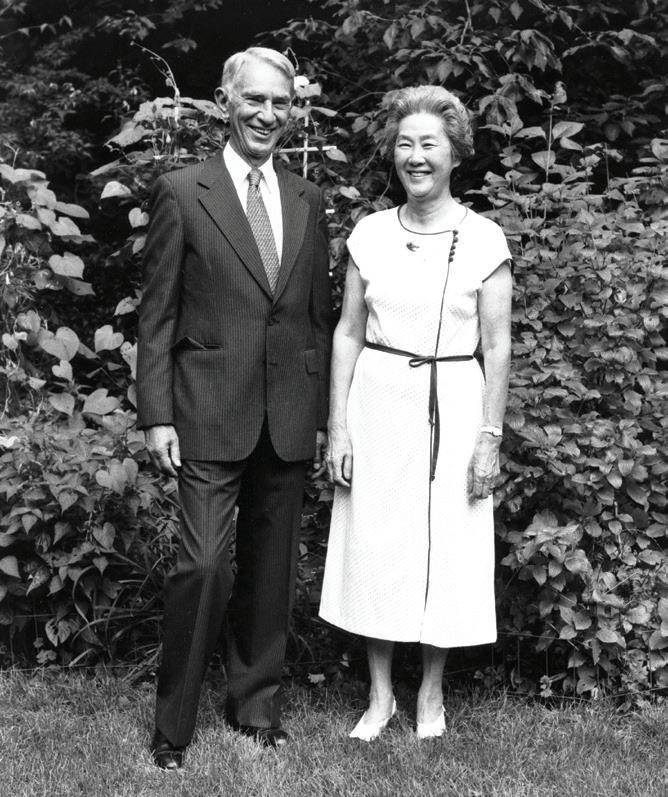
14
Edwin O. Reischauer, pictured here with his wife, Haru.

Home in CGIS
Since 2005, the Reischauer Institute has been housed in the Center for Government and International Studies (CGIS), a complex designed to promote the crossing of boundaries and the forming of connections. RI shares the second floor of the CGIS South Building with the Korea Institute (KI) and the David Rockefeller Center for Latin American Studies (DRCLAS). The Asia Center and many other Asia-related programs are nearby. Faculty, students, postdoctoral fellows, visiting scholars, and staff greatly benefit from being a part of the dynamic international studies community at Harvard.
The spaces in CGIS South provided to graduate student associates (GSAs), postdoctoral fellows, and visiting scholars promote interdisciplinary and cross-border interaction. Each floor of the four-story building has space with carrels assigned to graduate students affiliated with a regional studies institute and/or department. GSAs from different centers are mixed together, allowing for exciting intellectual exchange. RI postdoctoral fellows also share office space with “postdocs” from other centers who have similar disciplinary and substantive interests. The postdocs enjoy a broader intellectual environment, and those who study more than one Asian country benefit greatly from the proximity to other Asian studies programs. Occupying a shared space, RI visiting scholars also have the opportunity to exchange ideas on their various research topics, from comparative law to Edo-period painting, sports administration to religion.
15
PHOTO BY ANDY RYAN
Director
Theodore C. Bestor, Reischauer Institute Professor of Social Anthropology and Japanese Studies, currently serves as RI Director. A specialist on contemporary Japanese society and culture, his research concerns urban culture and history, markets and economic organization including supply chains, food culture, the fishing industry and the global environment, and popular culture. Joining the Harvard faculty in 2001, he chaired the Department of Anthropology from 2007-12, and served as the President of the Association of Asian Studies (AAS) in 2012-13. He was also the founding President of the Society for East Asian Anthropology. Before arriving at Harvard, he taught at Cornell University in the Department of Anthropology and Asian Studies from 1993-2001, and at Columbia University from 1986-93. He received his Ph.D. from Stanford University (1983) in Anthropology, and served as staff director for Japanese and Korean Studies at the Social Science Research Council immediately after receiving his degree.
Faculty Awards
Theodore C. Bestor Recipient of Promotion of Japanese Culture Award
In summer 2013, the Cultural Affairs Agency in Japan awarded Theodore C. Bestor the Commissioner of Cultural Affairs Award for the Promotion of Japanese Culture. The award recognizes individual endeavors and efforts in “cultural exchange and promotion of Japanese culture abroad.” Agency Commissioner Seiichi Kondo presented the award to twelve distinguished figures during a ceremony in Tokyo, where Prof. Bestor commented, “I’m always excited to get somebody excited about Japan.”
Akira Iriye Receives the Japan Foundation Award
On 15 October 2013, Akira Iriye, RI former Director and Prof. Emeritus, received the Japan Foundation Award. The award commends individuals who have made outstanding contributions to promoting international mutual understanding and friendship between Japan and other countries. Prof. Iriye was presented with this award in recognition of his influence overseas as pioneer of Japan-U.S. exchange through academic and cultural pursuits.
Mary C. Brinton and Yukio Lippit Recipients of John Whitney Hall Prize
Each year, the Association for Asian Studies (AAS) presents the Northeast Asia Council John Whitney Hall Book Prize for English-language scholarly books published on Japan or Korea. In 2013, Mary C. Brinton won the prize for her book, Lost in Transition: Youth, Work and Instability in Postindustrial Japan (Cambridge University Press, 2011), touching on socio-economic issues by focusing on the relationship between young non-elite men, work and instability in Japan. In 2014, Yukio Lippit received the prize for his book, Painting on the Realm: The Kano House of Painters in 17th-Century Japan (University of Washington Press, 2012), which describes the most orthodox and institutionally powerful painting lineage in early modern Japan.
Andrew Gordon and Helen Hardacre Inducted to American Academy of Arts and Sciences
In Spring 2014, the American Academy of Arts and Sciences announced the election of 204 new members, selected for their accomplishments as leaders of their field. RI faculty Andrew Gordon and Helen Hardacre were both inducted as members to this prestigious honorary society.
16
New Faculty
Daniel M. Smith joined the Harvard faculty in 2013 as a member of the Department of Government. He holds a Ph.D. (2012) in Political Science from University of California, San Diego, and completed a postdoctoral fellowship at the Shorenstein Asia-Pacific Research Center at Stanford. An expert on Japanese politics, his research interests include political parties, candidate selection, elections, and coalition government. He conducted research in Japan as a Ministry of Education, Culture, Sports, Science, and Technology research scholar at Chuo University, and as a Fulbright research fellow at the Institute of Social Science at the University of Tokyo.
Alexander Zhalten received his Ph.D. (2007) in Film Studies at Johannes Gutenberg University of Mainz, Germany. Before joining the faculty in 2012, he conducted postdoctoral research at Meiji Gakuin University and served as an Assistant Professor at the Department of Film & Digital Media of Dongguk University in Seoul, South Korea. His interests and expertise are in the dynamics of contemporary media ecologies, focused primarily on the connection between larger economic, social, and institutional structures and aesthetic modalities. Not only has he been active in the scholarly field, but also has curated film programs for institutions such as the German Film Museum and the Athénée Français Cultural Center, Tokyo, and was Program Director for the Nippon Connection Film Festival from 2002 to 2010.
Committees of the Institute
RI’s core mission is carried out by the Full Committee (FC). The 47-member FC is composed of tenured professors, junior faculty, emeritus faculty and Japanese language faculty from across the University, whose research and teaching relate to Japan. The committee meets at least once annually and its members participate actively in RI activities and subcommittees.
From the FC, fifteen tenured faculty compose the Executive Committee (EC)—the governing body of the Institute appointed by the FAS Dean. Membership recommendations for this committee are submitted annually to the Dean for approval. The EC meets four to six times a year to consider new initiatives, approve the budget, make formal and informal appointments, award fellowships and grants, and establish Institute policies and procedures.
17
The RI Full Committee 2012-14
Their names appear throughout this report. An (*) indicates members of the Executive Committee.
Ryûichi Abé, EALC*
Reischauer Institute Professor of Japanese Religions
Theodore C. Bestor, Anthropology*
Reischauer Institute Professor of Social Anthropology and Japanese Studies
Mary C. Brinton, Sociology* Reischauer Institute Professor of Sociology
Albert M. Craig, EALC
Harvard-Yenching Professor Emeritus of History
Edwin A. Cranston, EALC* Professor of Japanese Literature
John Doyle, Physics Professor of Physics
Andrew Gordon, History* Lee and Juliet Folger Fund Professor of History
Helen Hardacre, EALC*
Reischauer Institute Professor of Japanese Religions and Society
Takao Hensch, Molecular and Cellular Biology
Professor of Molecular and Cellular Biology Professor of Neurology, Children’s Hospital
Howard Hibbett, EALC
Victor S. Thomas Professor Emeritus of Japanese Literature
David L. Howell, EALC* Professor of Japanese History
Akira Iriye, History
Charles Warren Professor Emeritus of American History
Wesley M. Jacobsen, EALC*
Professor of the Practice of the Japanese Language Director of the Japanese Language Program
Geoffrey G. Jones, HBS
Isidor Straus Professor of Business History
Yuko Kageyama-Hunt
Preceptor in Japanese 2012-13
Senior Preceptor in Japanese 2013-14
Toshihiro Katayama, Visual and Environmental Studies
Professor Emeritus of the Practice of Graphic Design
Ichiro Kawachi, HMS / HSPH Professor of Social Epidemiology
Susumu Kuno, Linguistics Professor Emeritus of Linguistics
Shigehisa Kuriyama, EALC*
Reischauer Institute Professor of Cultural History
Yukio Lippit, History of Art and Architecture* Professor of History of Art and Architecture
Wakana Maekawa
Drill Instructor in Japanese
Yumi Masui
Drill Instructor in Japanese
Ayaka Masumoto
Drill Instructor in Japanese
Yasuko Matsumoto Preceptor in Japanese
Satomi Matsumura
Senior Preceptor in Japanese 2012-13
Melissa McCormick, EALC*
Professor of Japanese Art and Culture
Ian J. Miller, History Associate Professor of History
Toshihiko Mori
Drill Instructor in Japanese 2012-13
Toshiko Mori, GSD
Robert P. Hubbard Professor in the Practice of Architecture
Yuta Mori
Drill Instructor in Japanese
Mark Mulligan, GSD
Adjunct Associate Professor of Architecture
Susan J. Pharr, Government*
Edwin O. Reischauer Professor of Japanese Politics
J. Mark Ramseyer, HLS*
Mitsubishi Professor of Japanese Legal Studies
Michael Reich, HSPH
Taro Takemi Professor of International Health Policy
James Robson, EALC
Professor of East Asian Languages and Civilizations
John Rosenfield, History of Art and Architecture
Abby Aldrich Rockefeller Professor Emeritus of Oriental Art
Henry Rosovsky, Economics
Lewis P. and Linda L. Geyser University Professor Emeritus
Jay Rubin, EALC
Takashima Professor Emeritus of Japanese Humanities
Ikue Shingu Preceptor in Japanese
Daniel M. Smith, Government Assistant Professor of Government
Hirotaka Takeuchi, HBS Professor of Management Practice
Karen Thornber, Comparative Literature* Professor of Comparative Literature
Ezra F. Vogel, Sociology
Henry Ford II Professor Emeritus of the Social Sciences
Miki Yagi
Drill Instructor in Japanese 2013-14
Tomiko Yoda, EALC* Takashima Professor of Japanese Humanities
Michael Y. Yoshino, HBS
Herman E. Krannert Professor Emeritus of Business Administration
Alexander Zahlten, EALC
Assistant Professor of East Asian Languages and Civilizations
18
Retirement of Satomi Matsumura
After twenty-eight years of dedicated service, Satomi Matsumura announced her retirement from the Japanese Language Program at the Department of EALC. Co-sponsored by the department and RI, a farewell dinner was held on 7 May 2013. Faculty, staff and students gathered to express their heartfelt gratitude for the energy and inspiration she has brought to the program.
During these two academic years, RI was saddened by the loss of two long-time faculty:
Toshihiro Katayama
Toshihiro Katayama, Professor Emeritus and Director of the Carpenter Center for Visual Arts, passed away on 9 January 2013; he was 84. Joining the Harvard faculty in 1966, he served nearly thirty years as educator, artist, and designer. From 1990 until his retirement in 1995, he was appointed director of the Carpenter Center for Visual Arts. A self-taught artist and designer, he developed his artistic sensibilities in Basel Switzerland, where he helped create the iconic modern visual symbolism in graphic design that defined the Swiss style of the 1950s and 1960s. Once at Harvard, Prof. Katayama taught at both at the undergraduate and graduate level. Many of his students have become accomplished design professionals worldwide.
Prof. Katayama was also a prolific artist with hundreds of finished works including paintings, drawings, sculptures and public art installations. These works speak to many different cultures, being grounded in Japanese tradition and aesthetic sensibility with an emphasis on simplicity of form tempered with an appreciation of Western influences.
John Max Rosenfield
Abby Aldrich Rockefeller Professor of East Asian Art, John Max Rosenfield passed away on 16 December 2013; he was 89. He served as faculty at Harvard for more than twenty-five years as professor and curator of Asian art until his retirement in 1991. He mentored both undergraduate and graduate students, who subsequently became and built the next generation of Asian art scholars and leaders of the field.
After visiting Asia during WWII, he grew fascinated with that region of the world. He held Bachelor’s degrees from the University of California, Berkeley (Thai language, Asian Studies) and from Southern Methodist University, Dallas (Studio Art); he then earned a Master’s degree from the University of Iowa and his Ph.D. in Art History from Harvard (1959). Once at Harvard, he served as chair of the Department of Fine Arts at Harvard; Interim Director of the Harvard University Art Museums; trustee of the Museum of Fine Arts, Boston; and member of the Board of Directors, Japan Society of New York.
He received numerous awards, both domestically and internationally, including, among others, the Charles Lang Freer Medal from the Smithsonian Institution, Freer Gallery of Art (2012), the Yamagata Banto Prize (2001), and the Order of the Rising Sun from the Japanese Government (1988).
19
Advancing Research in Japanese Studies
Since its founding in 1973, the Reischauer Institute has sought to promote and support research on Japan in all fields and disciplines across the University.
The Institute creates professorships to bring faculty to Harvard in fields that are new or not well represented and supports research of Harvard faculty. The research community it builds at Harvard includes not only faculty and students, but also leading visiting scholars, outstanding postdoctoral fellows who are selected in an international competition each spring, and, since 2005, graduate student associates-in-residence. RI organizes and/or sponsors collaborative projects, seminars, conferences, colloquia, and other research activities that contribute to the exchange of ideas. It maintains a dynamic publications program that has produced a number of prize-winning books, and supports the WCFIA Program on U.S.-Japan Relations, which fosters social science research that bears on Japan’s role in the world and as an advanced industrial society. Finally, RI provides major support for the Japanese language collection in Harvard libraries and maintains the Documentation Center on Contemporary Japan.
Support for Faculty Research Professorships
Over the past two decades, RI has played a leading role in building Harvard’s intellectual infrastructure for the study of Japan through creating professorships in the Faculty of Arts and Sciences (FAS). No Japanese studies program in the world has done more to create or support new faculty positions. The positions are intended to be incremental, and are normally funded through the Institute’s endowment. Thus, the Institute has a great debt to its many friends in Japan who provided the Institute’s original endowment funding for the purpose of building Japanese studies at Harvard.
Professorships funded by RI, and the faculty members currently appointed to each chair, are as follows:
›› Reischauer Professor of Social Anthropology and Japanese Studies: Theodore C. Bestor
›› Reischauer Institute Professor of Cultural History: Shigehisa Kuriyama
›› Edwin O. Reischauer Professor of Japanese Politics: Susan J. Pharr
›› Reischauer Institute Professor of Japanese Religions: Ryūichi Abé
›› Reischauer Institute Professor of Japanese Religions and Society: Helen Hardacre
›› Reischauer Institute Professor of Sociology: Mary C. Brinton
›› Assistant Professor of East Asian Languages and Civilizations: Alexander Zahlten
›› Assistant Professor of Government: Daniel M. Smith
20
Edwin O. Reischauer Professorship in Japanese Studies
The terms of the Institute’s endowment provide for a professorship, named for Edwin O. Reischauer following his retirement in 1980, which is intended to contribute directly to faculty research and to the research and educational mission of the University. The professorship allows FAS senior faculty in Japanese studies to devote up to an academic year to full-time research at some point during their time at Harvard, and, normally in alternating years, supports the appointment of a leading scholar in Japanese studies as a visiting professor. Visiting professors divide their time between research and teaching; over a year they offer two courses, at least one a lecture course at the undergraduate level. In 2012-14 there were no Reischauer Professors.
Supplementary Support for Faculty Positions
Since 2009, the Institute has provided salary support for a number of FAS faculty. These include:
2012-13
Yukio Lippit, HAA
Melissa McCormick, EALC
Ian J. Miller, History
Karen Thornber, Comparative Literature
2013-14
Edwin Cranston, EALC
Melissa McCormick, EALC
Tomiko Yoda, EALC
Other Support for Faculty Research
Like many other international and regional centers at Harvard, RI makes small grants available to junior and senior faculty to support their research. These small grants have contributed to a number of Harvard faculty members’ publications and courses.
In addition, the Institute provides junior faculty in Japanese studies with support for one semester’s paid leave for research.
21
Visiting Scholars
Visiting scholars are a vital part of the Japanese studies research community at Harvard. They collaborate with faculty or contribute directly to ongoing RI research endeavors; advise students and provide contacts for Harvard undergraduate and graduate students preparing to conduct research abroad; give lectures and/or speak in classes; and participate in seminars and other research activities. Their periods of stay vary widely from a few months to two years, with most staying for one academic year. The Institute provides a shared office for the use of these visitors.
In 2012-13 the visiting scholars along with their universities and research topics were:
Barbara Brooks, City University of New York
Gender and the Japanese Empire
Asli Colpan, Kyoto University
Resilience of Diversified Business Groups in Emerging and Developed Economies
Takaaki Daito, Kokugakuin University
Japanese Religious Rituals from the Viewpoint of Shinto History
Sumio Hatano, Tsukuba University
Changing Role of International Organization in the History of Foreign Relations of Japan
Hideaki Hirata, Hosei University
Economic Impact of Japan’s 2011 Disaster
Chikage Hirobe, Gakushuin University
Louisa May Alcott and Japanese Girl’s Literature
Izumi Hirobe, Meiji University
Western Responses to Japanese Pan-Asianism
Seiji Hoshino, Kokugakuin University
Role of Christianity on Japanese Intellectuals in the 19th Century
Masumi Kai, University of Guam
Analysis of Errors Made by Elderly Taiwanese Who Acquired the Knowledge of Japanese During the Colonial Period
Hyungoh Lee, Sookmyung Women’s University
Globalization of Japanese and Korean Firms
Kazunori Mizushima, Osaka Sangyo University Empire of Affects
Masahiro Nomura, Hokkaido University
Cognitive Linguistic Study of Internally-Headed Relative Clauses in Japanese
Masamichi Ogawara, Keio University
A Comparative Study of 19th Century Political and Religious Thought in Japan, U.S., and Europe
Takeshi Ohno, Ritsumeikan University
History of Textile Machine Manufacturers, Especially Automatic Loom Manufacturers in the U.S.
Jun Otahara, Doshisha University
History of the Japanese Motorcycle Industry from the Perspective of Innovation, Entrepreneurship, and Organizational Capabilities
Hiroyuki Shiode, University of the Ryukyus
Comparative Study of Identities of the Japanese Settlers and Immigrants in the Imperial Era
Shoji Yamada, Nichibunken
The Birth of D.T. Suzuki: Acceptance, Dissemination, and Mystification
In 2013-14 the visiting scholars along with their universities and research topics were:
Silvia Croydon, Kyoto University Police Detention and Prison System in Japan
Takaaki Daito, Kokugakuin University
Japanese Religious Rituals from the Viewpoint of Shinto History
Hideaki Hirata, Hosei University
Economic Impact of Japan’s 2011 Disaster
Chikage Hirobe, Gakushuin University
Louisa May Alcott and Japanese Girl’s Literature
Izumi Hirobe, Meiji University
Western Responses to Japanese Pan-Asianism
Todd Holden, Tohoku University
Japanese Advertising with an Emphasis on the Arts, Tropes, Content, Meaning, and Social Role of Television Advertising in Contemporary Japan
Motoi Ihara, Saitama University
History of Globalization of Toiletries and Cosmetics Industries in Asia
Yukio Maeda, Tokyo University
Analysis of Cabinet Approval in Public Opinion Polls Since the 1960s
Takashi Masuoka, Kobe City University of Foreign Studies
The Semantic Analysis of Japanese Grammatical Construction
Seiichiro Nanai, Josai University
International Business Education in Japanese Companies
Masamichi Ogawara, Keio University
A Comparative Study of 19th Century Political and Religious Thought in Japan, U.S., and Europe
Jun Otahara, Doshisha University
History of the Japanese Motorcycle Industry from the Perspective of Innovation, Entrepreneurship, and Organizational Capabilities
Keiko Sasagawa, Kansai University
Historical Development of Southeast Asian Film Distribution During the Inter-War Period
22
Hiroyuki Shiode, University of the Ryukyus
Comparative Study of Identities of the Japanese Settlers and Immigrants in the Imperial Era
Jae-Won Sun, Pyeongtaek University
Company Pensions in North America During the First Half of the 20th Century, Compared to Japan’s Pension System
Kazuhiro Takii, Nichibunken
Comparative Legal History and the Imperial University System
Kanji Tamura, Rissho University
Historical Studies on Theories Concerning the Lotus Sutra and its Influence on Cultural Developments
Masato Yamauchi, Hiroshima University of Economics
Business History of Foreign Multinationals in Japan
Shingo Yano, Aoyama Gakuin
Structure of Societies in Rural Japan, Encompassing Farming, Mountain, Fishing Villages
Student Host Program for Visiting Scholars
The Institute seeks to integrate RI visiting scholars fully into the research community at Harvard, and to ensure that Harvard students who share their research interests have an opportunity to benefit from their stay. The Institute’s Student Host Program pairs students with visiting scholars on the basis of shared intellectual interests.
For 2012-14, the student hosts for visiting scholars were as follows:
VISITING SCHOLAR
Silvia Croydon, Kyoto
Takaaki Daito, Kokugakuin
Hideaki Hirata, Hosei
Chikage Hirobe, Gakushuin
Izumi Hirobe, Meiji
Seiji Hoshino, Kokugakuin
Masamichi Ogawara, Keio
Jun Otahara, Doshisha
Keiko Sasagawa, Kansai
Hiroyuki Shiode, University of Ryukyus
Kazuhiro Takii, Nichibunken
Kanji Tamura, Rissho
Shoji Yamada, Nichibunken
Masato Yamauchi, Hiroshima
Shingo Yano, Aoyama Gakuin
HARVARD STUDENT HOST
Adam Lyons, Ph.D. candidate, Religion
Eric Swanson, Ph.D. candidate, Religion
Taro Tsuda, Ph.D. candidate, HEAL
Michael Thornton, Ph.D. candidate, History
Michael Thornton, Ph.D. candidate, History
Adam Lyons, Ph.D. candidate, Religion
Hao-Kai Pai, ’15 Economics
Hirokazu Yoshie, Ph.D. candidate, HEAL
Peter Bernard, Ph.D. candidate, Japanese Literature
Ryan Glasnovich, Ph.D. candidate, HEAL
Hannah Shepherd, Ph.D. candidate, History
Ernest Brewster, Ph.D. candidate, Religion
Andrew Campana, Ph.D. candidate, Japanese Literature
Subodhana Wijeyeratne, Ph.D. candidate, History
Peter Max Harrison, Ph.D. candidate, Anthropology
23
Postdoctoral Fellows
The RI Postdoctoral Fellowship Program, which provides funding to 4-5 awardees in Japanese studies each year, is one of the oldest and most prestigious programs of its kind in the U.S. Former RI postdocs occupy leading positions in Japanese studies in universities around the world. Each year, a large pool of junior scholars in all fields and disciplines competes for awards. Applicants must be within five years of the doctorate to be considered, and most devote their year at Harvard to producing publishable work from their dissertations. The fellows participate fully in the Japanese studies research community at Harvard, are a resource for Harvard’s faculty and students, and at some point during their stay present their research in the Japan Forum series. RI also provides support to each postdoc to create an author’s conference for a day of discussion about his or her manuscript-in-progress, or other workshop, and for academic travel.
The 2012-14, RI postdoctoral fellows, along with their Ph.D. institution, year and field of degree, and research topic, were:
2012-13
Molly Des Jardin
Michigan, Asian Languages and Cultures, 2012
History of the book and concepts of authorship in late 19th century Japan
Nikhil Kapur
Harvard, International History, 2011
The origins and consequences of the mass protests in Japan against the renewal of the Japan-U.S. Security Treaty in 1960
Halle O’Neal
Kansas, Art History, 2011
The connections between the manipulation and enshrinement of relics and the roles played by word and picture in the expression of meaning
Franz Prichard
UCLA, Asian Languages and Cultures, 2011
Exploration of dynamic relationships between social historical transformation and cultural practice through Japanese literary and visual media
Jeremy Yellen
Harvard, History, 2012
The Great East Asia Co-Prosperity Sphere and Japan’s ambition to create a new order in East Asia
2013-14
Ryan Cook
Yale, East Asian Languages and Literatures and Film Studies, 2013
Cinema in postwar Japan, amidst the political upheavals of the 1960s and shifting media environment
Maren Ehlers
Princeton, East Asian Studies and Japanese History, 2011
Social order of the Tokugawa period and the implementation of “benevolent rule” by the samurai class
Miki Kaneda
Berkeley, Music with Designated Emphasis in New Media, 2012 Ethnographic and historical study of intermedia musical and artistic practices in 1960s Japan
Nikhil Kapur
Harvard, International History, 2011
The 1960 U.S.-Japan Security Treaty Crisis and its impact on Japanese society and cultures
Akiko Walley
Harvard, History of Art and Architecture / East Asian Buddhist Art, 2009 The renowned 7th century bronze statue of Śākyamuni triad as example of a rise in new visual language of diplomacy using Buddhist objects in 6th and 7th century Japan
Graduate Student Associates-in-Residence
The Institute provides carrels or other space to a small number of Harvard doctoral students completing their dissertations.
In 2012-13, seven Japanese studies students were designated as graduate student associates-in-residence (GSAs), including:
Jakobina Arch, EALC
Hansun Hsiung, EALC
Shi-Lin Loh, EALC
Nozomi Naoi, HAA
Esra-Gokce Sahin, Anthropology
Yuki Takagi, Government
Kristin Williams, EALC
In 2013-14, the five GSAs included:
Jakobina Arch, EALC
Shea Ingram, EALC
Nozomi Naoi, HAA
Esra-Gokce Sahin, Anthropology
Nicolas Sternsdorff-Cisterna, Anthropology
24
Japan Forum
The research community in Japanese studies assembles each Friday afternoon during term time for the Japan Forum, a series of research presentations by scholars in a variety of fields and disciplines. Each presentation has a Harvard faculty host and is followed by a reception at which faculty, students, and others have an opportunity to interact with the speaker and each other. A dinner for the speaker with a smaller number of interested Harvard faculty, students, and other guests follows. In addition, during 2010-12 the Institute began to host informal lunch gatherings with graduate students, depending on the speaker’s availability.
Since 1974 the Institute has sponsored more than 700 Japan Forum talks. Listed in chronological order, the following are the 2012-14 presenters, along with their affiliations and topics:
2012-13
Andrew Gordon, Harvard University
The History of Yesterday: Japan from Lehman Shock to Compound Disaster
Faculty host: Theodore C. Bestor (co-sponsored by USJRP)
Halle O’Neal, RI Postdoctoral Fellow
A Puzzle of Word and Picture: Locating Meaning in the Japanese Jeweled Stûpa Mandalas
Faculty host: Melissa McCormick
Sarah Frederick, Boston University
Yoshiya Nobuko: A Japanese “Girl” at Home and Away
Faculty host: Karen Thornber
Seiichi Makino, Princeton University
What will be Lost in Translation?
Faculty host: Wesley M. Jacobsen
Franz Prichard, RI Postdoctoral Fellow
Transmedia Critique and the Urban Revolution in 1960s and ’70s Japanese Fiction, Film and Photography
Faculty host: Tomiko Yoda
Steven Wills, Nebraska Wesleyan University
Fires and Fights: Urban Conflagration and Society in Nineteenth-Century Edo-Tokyo
Faculty host: David Howell
Stephanie DeBoer, Indiana University
Working Through China: Place, Scale, and Japan’s New Asian Film Co-Production Faculty host: Alexander Zahlten
Alexander Zahlten, Harvard University
Evil Twins Separated at Birth: Pink Film, Anime, and Industry-Text Interfaces in Film Faculty host: Tomiko Yoda
Arthur Thornhill, University of Hawai‘i One Man’s Opinion of Moonlight: Perceptual Inversion in Tsurayuki and Zeami
Faculty host: Edwin Cranston
Trent Maxey, Amherst College
Politics and Religion in the Imperial Diet, 1890-1900
Faculty host: Ryûichi Abé
Jeremy Yellen, RI Postdoctoral Fellow
Into the Tiger’s Den: The Birth of Japan’s Co-Prosperity Sphere and the Drift to Pearl Harbor
Faculty host: Andrew Gordon
Patricia Steinhoff, University of Hawai‘i, and Co-Director, Japan Directory Project Cheer Up! Japanese Studies is Alive and Well in the United States
Faculty host: Susan J. Pharr (co-sponsored by USJRP)
Nikhil Kapur, RI Postdoctoral Fellow
The 1960 Anpo Protests and the Collapse of Public Space in Postwar Japan
Faculty host: Andrew Gordon (co-sponsored by USJRP)
Julian Dierkes, University of British Columbia
Japanese Education Markets: Resistance by Small Juku Operators
Faculty host: Mary C. Brinton (co-sponsored by USJRP)
Marc Steinberg, Concordia University
Japanese Digital Media Discourse and the Rise of Media “Contents”
Faculty host: Tomiko Yoda
Ronald Richardson, Boston University
Staged Reading Performance: Kamioroshi, the Descent of the Gods
Faculty host: Andrew Gordon (co-sponsored by Harvard’s W.E.B. Du Bois Institute and the BU School of Theater)
Molly Des Jardin, RI Postdoctoral Fellow
Editing Identity: Social Memory, Archives, and Authorship in Japanese Anthologies
Faculty host: Tomiko Yoda
Aaron Skabelund, Brigham Young University
Can the Sublatern Bark? Dogs, Japan, and the Making of the Modern Imperial World
Faculty host: David Howell
Paul Christensen, Union College
Suffering Sobriety: Alcoholism and Masculinity in Japan
Faculty host: Theodore C. Bestor (co-sponsored by USJRP)
25
Susan Burns, University of Chicago
Hybrid Institutions/Local Solutions: The Iwakura “Colony” and Academic Psychiatry in Japan
Faculty host: Shigehisa Kuriyama
Angus Lockyer, SOAS
A Brief History of Japanese Golf
Faculty host: David Howell
Tomokazu Matsuyama, Contemporary Artist
A World Citizen, Visualizing the Glocal (Global + Local) Condition
Faculty host: David Howell
Amanda Stinchecum, Independent Scholar Letting Things Speak but for Whom?
Cultural Artifacts, Performance, and Tourism in Southern Okinawa
Faculty host: Theodore C. Bestor
Hiromu Nagahara, MIT
The Soundscape of Total War: Popular Music in Wartime Japan
Faculty host: Andrew Gordon
Koichi Iwabuchi, Monash University
Banal Novelty of East Asian Media Culture
Faculty host: Tomiko Yoda
2013-14
James Robson, Harvard University
Meditation and Madness: Connections Between Japanese Buddhist Monasteries and Mental Hospitals
Faculty host: Shigehisa Kuriyama
Maren Ehlers, RI Postdoctoral Fellow/UNC Charlotte
Bakumatsu Benevolence: Social Welfare and Domain Reform in Nineteenth-Century Japan
Faculty host: David Howell
Samuel Morse, Amherst College
From Temple Workshop to Urban Atelier: Buddhist Sculpture in Japan in the Tenth Century Faculty host: Yukio Lippit
Mark Rowe, McMaster University
Thick Conversations: Toward a Dialogical Theory of Japanese Buddhism
Faculty host: Helen Hardacre
Leslie Helm, Author
Yokohama Yankee: My Family’s Five Generations as Outsiders in Japan
Faculty host: Theodore C. Bestor
Yoshiko Matsumoto, Stanford University
Identity Grounded in Ordinary Life: Conversational Narratives of Older Japanese Women
Faculty host: Wesley M. Jacobsen
Nathaniel Smith, University of Arizona
Doubling Down on the Negative: Anti-anti Nukes, the Anti-anti Foreign, and Rightist Positivity in Post-3.11 Japan
Faculty host: Susan J. Pharr (co-sponsored by USJRP)
Jordan Sand, Georgetown University Tokyo Vernacular: Common Spaces, Local Histories, Found Objects
Faculty host: Andrew Gordon
Ryan Cook, RI Postdoctoral Fellow
City of Screens: Cinematic Topography of Postwar Tokyo
Faculty host: Alexander Zahlten
John Nathan, UC Santa Barbara Japanese Impressionism and Jamesian
Precisions: Contending with Natsume
Soseki’s Meian (Light and Dark)
Faculty host: Karen Thornber
Ian J. Miller, Harvard University
The Electric Modern: Tokyo in the Age of Global Energy
Faculty host: Andrew Gordon
William Coaldrake, University of Tokyo
The Way of the Carpenter: Tools and Japanese Architecture (co-sponsored by the GSD to accompany “The Thinking Hand” art exhibition)
Miki Kaneda, RI Postdoctoral Fellow
The Everyday as Score; Intermedia Art in Postwar Japan
Faculty host: Alexander Zahlten
Michele Mason, University of Maryland (College Park)
Novel Ways of Rewriting Colonial Hokkaido:
Ikezawa Natsuki’s A Quiet Land
Faculty host: Karen Thornber
Kenji Kushida, Stanford University
The Fukushima Nuclear Disaster and the DPJ: Leadership, Structures, and Information Challenges During the Crisis
Faculty host: Daniel M. Smith (co-sponsored by USJRP)
Reinier Hesselink, University of Northern Iowa
Crucifixions Revisited: The Legacy of Hideyoshi’s Tableau Mourant
Faculty host: David Howell
Peter Kornicki, University of Cambridge
Leeches, Prohibited Foods, and Suspicious Deaths: Vernacular Knowledge in Pre-modern Japan
Faculty host: David Howell
Tessa Morris-Suzuki, Australian National University
Touching the Grass: Citizen Science in Fukushima
Faculty host: Ian J. Miller
David Lurie, Columbia University
The Politics of Jealousy in Early Japanese Literature
Faculty host: Shigehisa Kuriyama
Dennis Washburn, Dartmouth College
Another’s Speech in Another’s Language: Translation as Possession in The Tale of Genji
Faculty host: Melissa McCormick
Akiko Walley, RI Postdoctoral Fellow/ University of Oregon
Self-Fulfilling Prophecy: The Mechanism of Salvation in 7th-8th Century Japanese Buddhist Reliquaries
Faculty host: Yukio Lippit
26
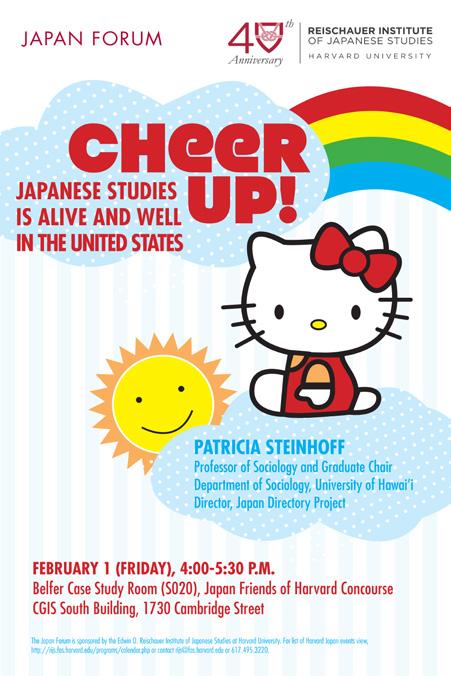
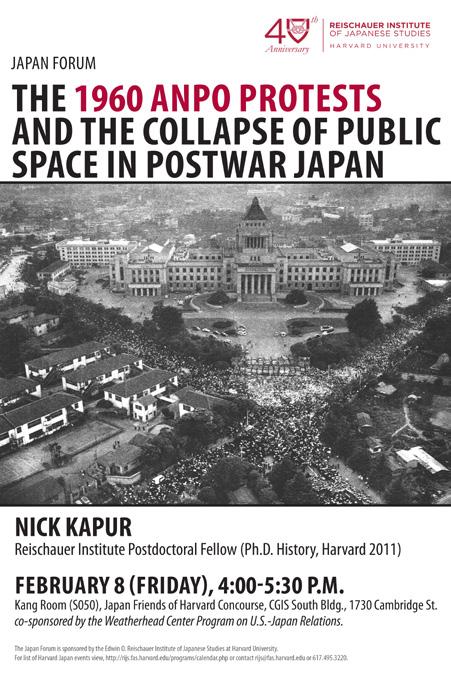
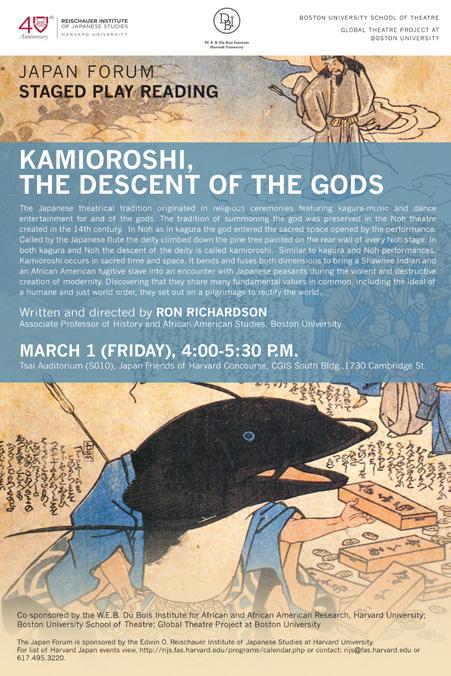


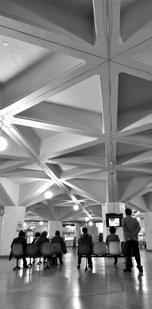
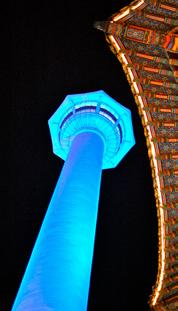
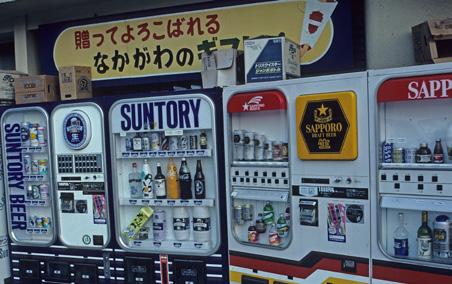
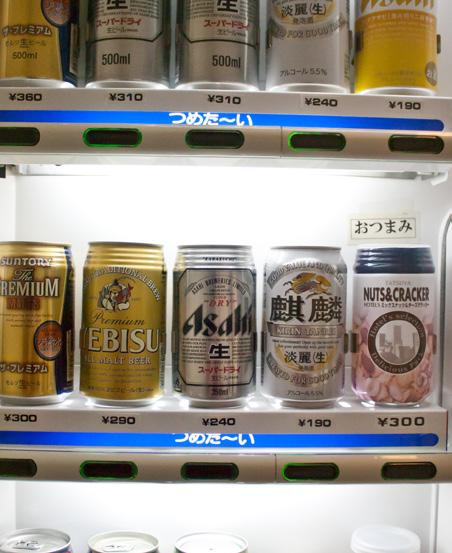
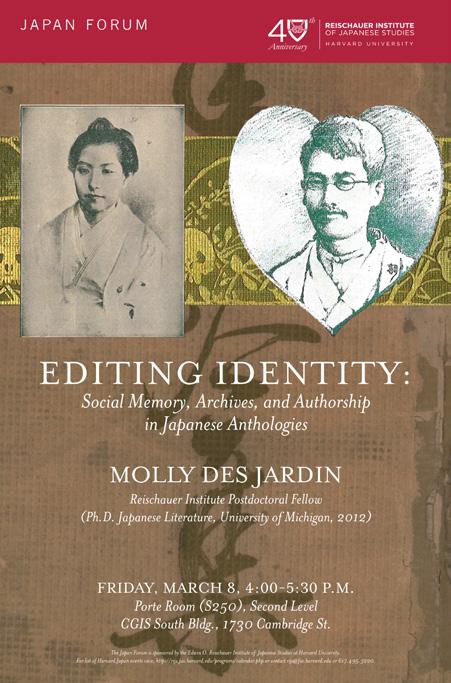

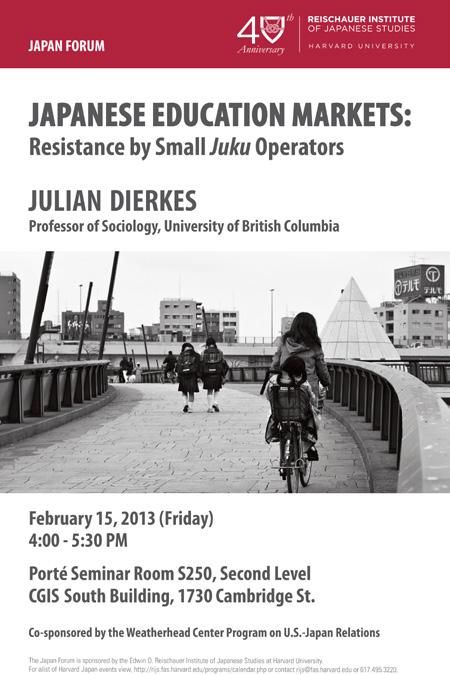

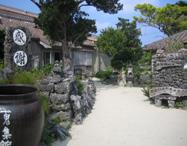
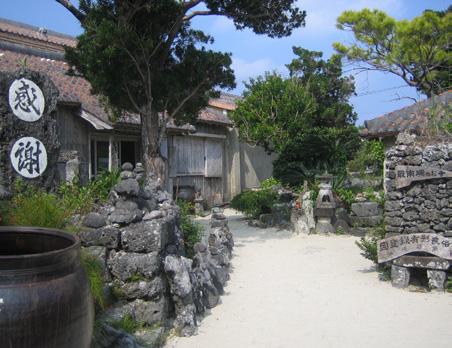
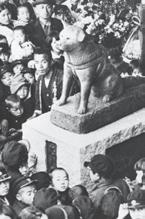


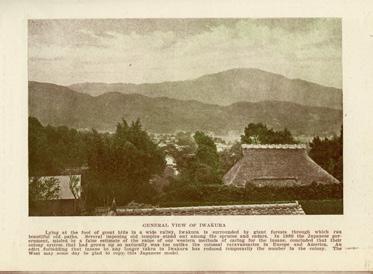


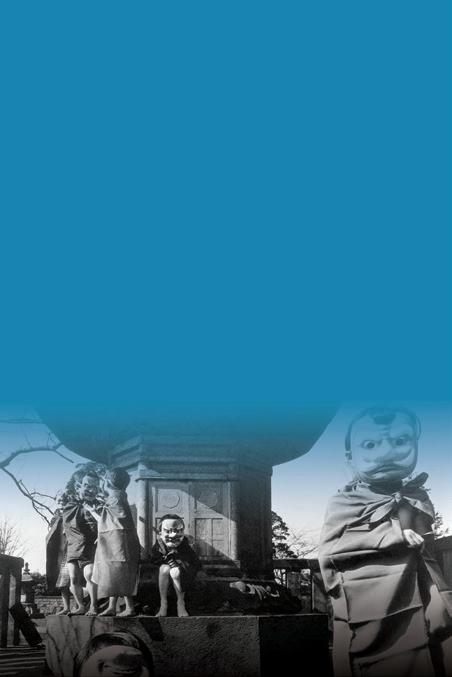
27 HYBRID INSTITUTIONS & LOCAL SOLUTIONS: ACADEMIC PSYCHIATRY AND THE IWAKURA COLONY IN JAPAN SUSAN BURNS Associate Professor of History and East Asian Languages and Civilizations, University of Chicago April 5 (Friday), 4:00-5:30 p.m. Kang Room (S050), Japan Friends of Harvard Concourse CGIS South Bldg., 1730 Cambridge St. Free & Open to the Public The Japan Forum sponsored by the Edwin O. Reischauer Institute of Japanese Studies at Harvard University. For list of Harvard Japan events view, http://rijs.fas.harvard.edu/programs/calendar.php or contact rijs@fas.harvard.edu or 617.495.3220. JAPAN FORUM SYMPOSIUM AS IF OUR EYES ARE IN OUR HANDS THE FILMS OF SUSUMU HANI MONDAY, JANUARY 28, 2013 1:00 – 5:30 PM PORTÉ SEMINAR ROOM S250, CGIS SOUTH, 1730 CAMBRIDGE STREET Accompanying the January 19-28 film the Reischauer Institute presents symposium on the visionary cinematic work Pioneering filmmaker and fervent public of 1950s and 1960s Japan. His radical film form paved the way for directors such as Nagisa Oshima and Kiju Yoshida. He Japanese director of the 1960s, shooting films in Africa, Europe and South America, festivals. The legacy of his extraordinary family informs his films and intellectual projects in fascinating ways. Hani’s grandparents founded the Jiyû Gakuen School in the early 1920s (the building for which was designed by Frank Lloyd Wright), and his father was the prominent sociologist and political activist Goro Hani. Hani’s early the role of the institution in primary school settings, while his later forays into fascinating cinematic experimentation. 1:00 pm Welcome and Introduction 1:10-2:00 pm Susumu Hani What is Cinema for me? 2:10-3:00 pm Roland Domenig, University of Vienna Susumu Hani and the Significance of Iwanami Eiga for Japanese Cinema 3:10-3:50 pm Markus Nornes, University of Michigan Verité before Verité: Susumu Hani’s Documentaries, Contexts and Legacies 4:05-5:50 pm Roundtable discussion Susumu Hani Roland Domenig University of Vienna; Markus Nornes University of Michigan; Takuya Tsunoda Yale University; Alexander Zahlten Harvard University This symposium being held conjunction with the film series, As if Our Eyes are our Hands, at the Harvard Film Archives, January 19-28.The symposium organized by AWorld Citizen, Visualizing the Glocal(Global+Local)Condition TO M OKAZU MATSUYAMA , Contemporary Artist Mo d e a o DavidHowell Professor ofJapanese H y Harvard University Ap r 25 (Thursday) K ng Ro m S050 Japan Friends o Harvard Concourse CG S Sou h B dg 1730 Cambridge S 4:0 0 - 5:30pm Free & Open to the Public The Japan Forum is sponsored by the Edwin O. Reischauer Institute of Japanese Studies at Harvard University. For list of Harvard Japan events view, http://rijs.fas.harvard.edu/programs/calendar.php or contact rijs@fas.harvard.edu or 617.495.3220. JAPAN FORUM SUFFERING SOBRIETY: Alcoholism and Masculinity in Japan JAPAN FORUM Co-sponsored by the Weatherhead Center Program on U.S.-Japan Relations FREE & OPEN TO THE PUBLIC The Japan Forum sponsored by the Edwin O. Reischauer Institute of Japanese Studies at Harvard University. For list of Harvard Japan events view, http://rijs.fas.harvard.edu/programs/calendar.php or contact rijs@fas.harvard.edu or 617.495.3220. PAUL CHRISTENSEN Visiting Assistant Professor of Anthropology, Union College MARCH 29 (FRIDAY), 4:00-5:30 P.M. Porte Room (S250), Second Level, CGIS South Bldg., 1730 Cambridge St. JAPAN FORUM BANAl NOvelty OF eAst AsiAN MediA CUltURe KOICHI IWABUCHI Professor of Media and Cultural Studies & Director, Monash Asia Institute, Monash University MAy 13 (MONdAy), 4:00-5:30 P M Porte Room (s250), second level, CGis south Bldg., 1730 Cambridge st. FRee & OPeN tO the PUBliC the Japan Forum is sponsored by the edwin O. Reischauer nstitute of Japanese tudies at harvard University. For list of harvard Japan events view, http://rijs.fas.harvard.edu/programs/calendar.php or contact rijs@fas.harvard.edu or 617.495.3220. JAPAN FORUM MARC STEINBERG Friday, February 22, 4:00-5:30 p.m. Kang Room (S050), Japan Friends of Harvard Concourse CGIS South Bldg.,1730 Cambridge St. The Japan Forum is sponsored by the Edwin O. Reischauer Institute of Japanese Studies at Harvard University. For list of Harvard Japan events view, http://rijs.fas.harvard.edu/programs/calendar.php or contact rijs@fas.harvard.edu or 617.495.3220. Assistant Professor of Film Studies Concordia University Japanese Digital Media Discourse and the Rise of Media “Contents” JAPAN FORUM Heritage Preservation and tourism in okinawa Is There a Future for Private Ethnological Museums? amanda maYer stinCHeCum Independent Scholar and Associate in Research, Reischauer Institute aPril 26 (FridaY), 4:00-5:30 P.m. Porte Room (S250), Second Level CGIS South Bldg., 1730 Cambridge St. Free & Open to the Public The Japan Forum is sponsored by the Edwin O. Reischauer Institute of Japanese Studies at Harvard University. For list of Harvard Japan events view, http://rijs.fas.harvard.edu/programs/calendar.php or contact rijs@fas.harvard.edu or 617.495.3220. JAPAN FORUM Can the Subaltern b ark? Dogs, Japan, and the Making of the Modern Imperial World AARON SKABELUND Assistant Professor of History, Brigham Young University MarCh 15 (Friday), 4:00-5:30 p.M Kang Room (S050), Japan Friends of Harvard Concourse CGIS South Bldg. 1730 Cambridge St. Free and open to the public The Japan Forum sponsored by the Edwin O. Reischauer Institute of Japanese Studies Harvard University. For list of Harvard Japan events view, http://rijs.fas.harvard.edu/programs/calendar.php or contact rijs@fas.harvard.edu or 617.495.3220. A BRIEF HISTORY OF JAPANESE G LF ANGUS LOCKYER Lecturer in the History of Japan, School of Oriental and African Studies (SOAS) University of London APRIL 11 (THURSDAY), 12:00-1:30 P.M. Porte Room (S250), Second Level, CGIS South Bldg., 1730 Cambridge St. Free & Open to the Public japan forum
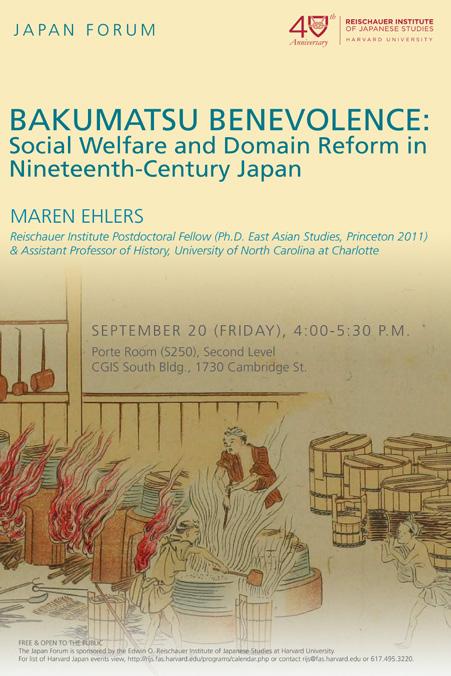
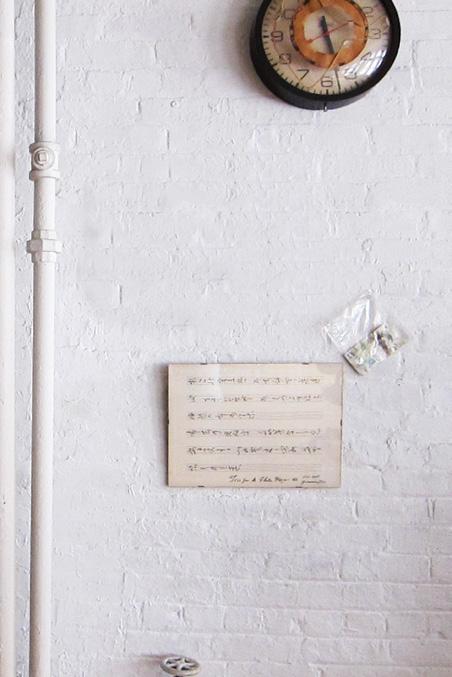

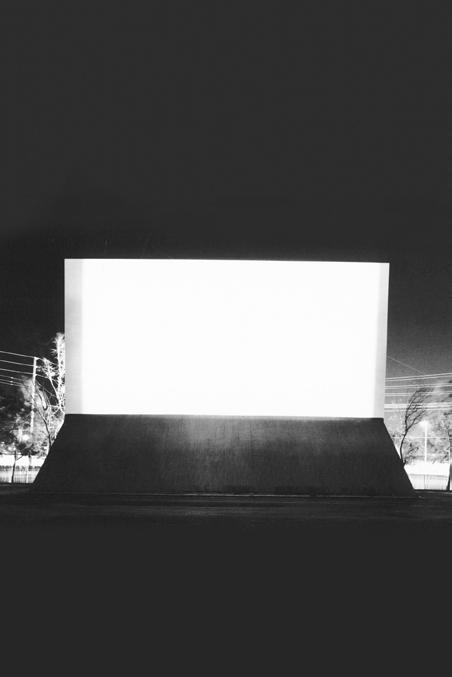

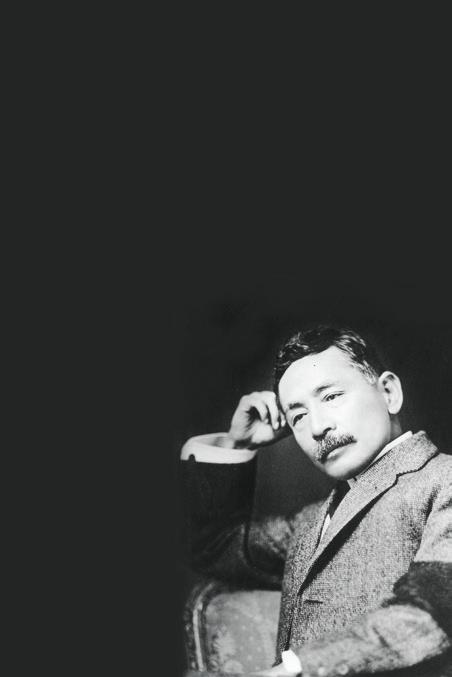

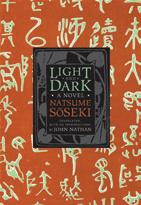
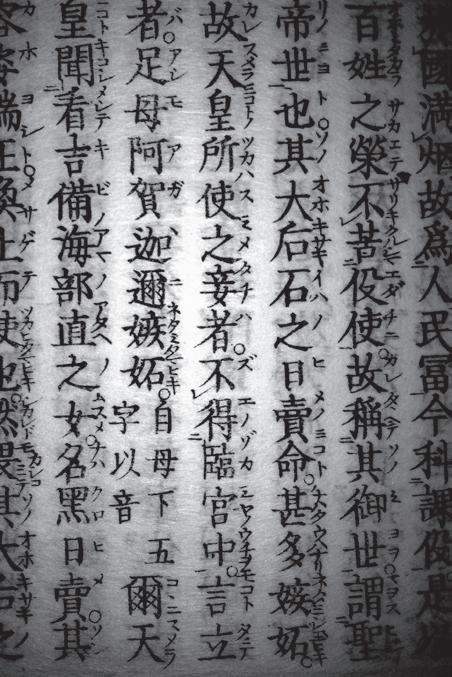

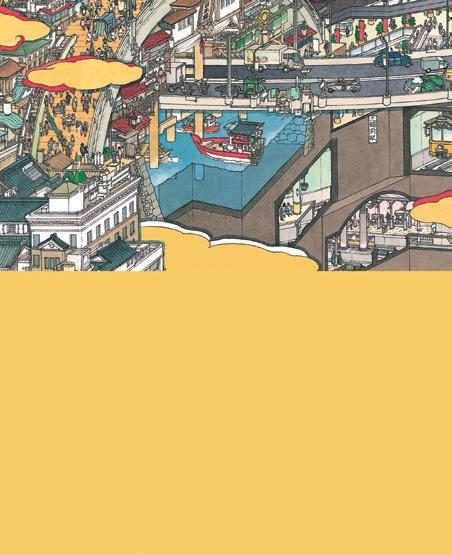
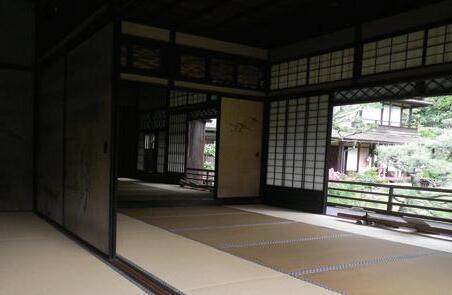






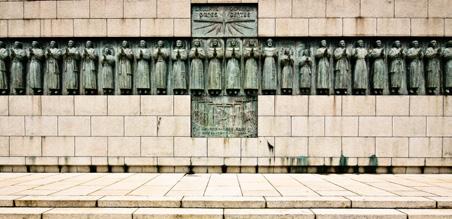






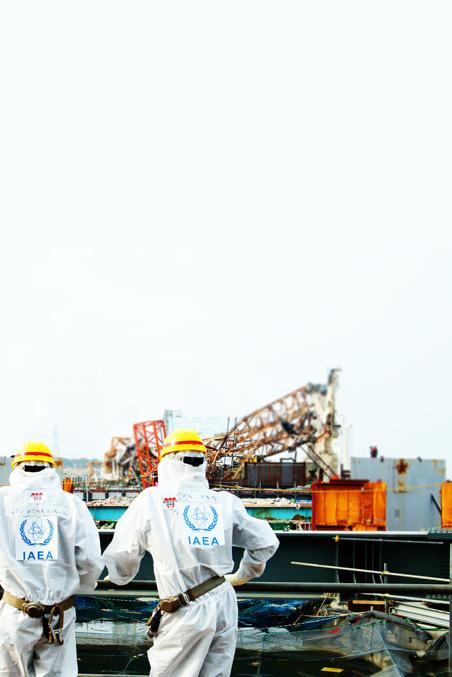

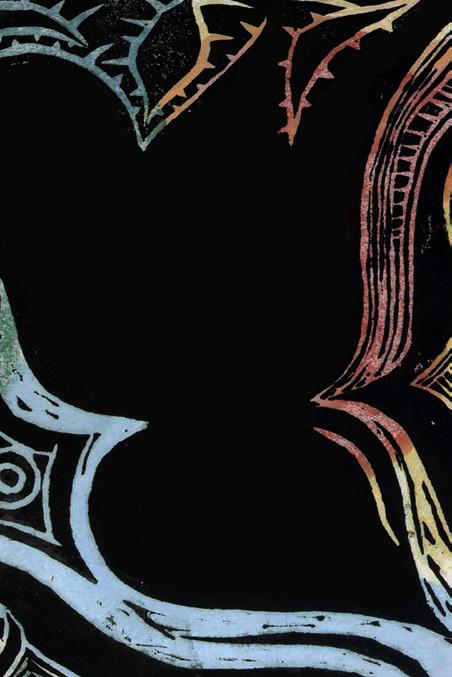
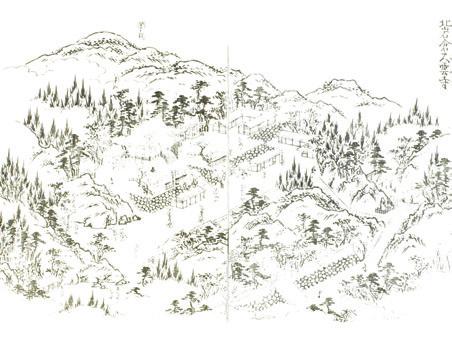

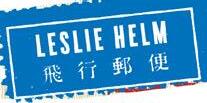
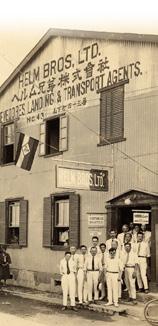
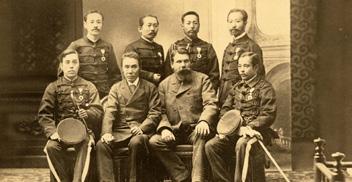
28 JAPAN FORUM REISCHAUER INSTITUTE JAPAN FORUM PRESENTATION Crucifixions Revisited: The Legacy of Hideyoshi’s Tableau Mourant REINIER HESSELINK Professor of History, University of Northern Iowa March 14, 2014 (Friday) 4:00-5:30 p.m. Kang Room S050, Japan Friends of Harvard Concourse CGIS South Bldg., 1730 Cambridge St. Harvard University REISCHAUER INSTITUTE OF JAPANESE STUDIES OCTOBER 18 (FRIDAY) 4:00-5:30 p.m. Free & Open to the Public The Japan Forum is sponsored by the Edwin O. Reischauer Institute of Japanese Studies at Harvard University. For list of Harvard Japan events view, http://rijs.fas. harvard.edu/programs/ calendar.php or contact rijs@fas.harvard.edu or JAPAN FORUM Kang Room (S050), Japan Friends of Harvard Concourse Level CGIS South Bldg., 1730 Cambridge St. MEDITATION AND MADNESS: Connections Between Japanese Buddhist Monasteries and Mental Hospitals JAMES ROBSON Professor of East Asian Languages and Civilizations Harvard University FRIDAY, SEPTEMBER 13 4:00-5:30 P.M. Kang Room (S050), Japan Friends of Concourse Level, CGIS South Bldg., 1730 Cambridge St. FREE & OPEN TO THE PUBLIC The Japan Forum is sponsored by the Edwin O. Reischauer Institute of Japanese Studies at Harvard University. For list of Harvard Japan events view, http://rijs.fas.harvard.edu/programs/calendar.php or contact rijs@fas.harvard.edu or 617.495.3220. JAPAN FORUM JAPAN FORUM REISCHAUER INSTITUTE JAPAN FORUM PRESENTATION The Politics of Jealousy in Early Japanese Literature DAVID LURIE Associate Professor of Japanese History and Literature Director, Donald Keene Center of Japanese Culture Columbia University April 11, 2014 (Friday) 4:00-5:30 p.m. Kang Room (S050) CGIS South Building Japan Friends of Concourse Level CGIS South Building, 1730 Cambridge Street Harvard University The Japan Forum is sponsored by the Edwin O. Reischauer Institute of Japanese Studies at Harvard University For list of Harvard Japan events view, http://rijs.fas.harvard.edu/programs/calendar.php or contact rijs@fas.harvard.edu or 617.495.3220 JAPAN FORUM JAPANESE IMPRESSIONISM & JAMESIAN PRECISIONS: CONTENDING WITH NATSUME SOSEKI’S LIGHT AND DARK (1916) JOHN NATHAN UNIVERSITY OF CALIFORNIA, SANTA BARBARA December 6, 2013 (Friday) 4:00-5:30 p.m. Kang Room (S050), Japan Friends of Harvard Concourse CGIS South Bldg., 1730 Cambridge St. Harvard University REISCHAUER INSTITUTE JAPAN FORUM PRESENTATION TOKYO VERNACULAR COMMON SPACES, LOCAL HISTORIES, FOUND OBJECTS JORDAN SAND ASSOCIATE PROFESSOR OF JAPANESE HISTORY, GEORGETOWN UNIVERSITY NOVEMBER 8, 2013 (FRIDAY) 4:00-5:30 P.M. KANG ROOM (S050), JAPAN FRIENDS OF HARVARD CONCOURSE CGIS SOUTH BLDG., 1730 CAMBRIDGE ST. JAPAN FORUM OF JAPANESE STUDIES September 26 (Thursday) & September 27 (Friday) Harvard University Belfer Case Study Room (S020), Harvard Friend of Japan Concourse CGIS South Building, 1730 Cambridge Street The 40th Anniversary Conference takes the year 1973 as a touchstone for the examination over the last forty years of key developments in Japan and Japanese Studies. That year saw a number of events that have proved to be highly consequential for Japan’s subsequent history. The First Oil Shock occurred, raising the price of crude oil by thirty percent. Universal free health care was established for the elderly over seventy years of age. The sixtieth Vicennial Renewal of the Ise Grand Shrines (Shikinen sengu), a monumental rebuilding of the Inner and Outer Shrines at Ise, a practice which began in the late seventh century, was completed in 1973, and the sixty-second will take place in 2013. The District Court of Sapporo ruled that the existence of the Self-Defense Force violated the constitution, a significant judgment in the evolution of debate on the organization’s proper role that is still ongoing. The proportion of Japanese attending universities exceeded 30 percent for the first time in 1973, nearly doubling since that time. The apocalyptic novel Japan Sinks by Komatsu Sakyo became bestseller, beginning a lineage of best-selling works in manga, anime, and live-action film formats portraying the end of the world. In these various ways, 1973 has proved to be a milestone worthy of reflection. The Conference is divided into two sessions and number of panels. All discussions will take place in English. SESSION 1: Constitutional Revision Since 1973 & Beyond Thursday, September 26 1:00 – 5:00 p.m. SESSION 2: The Question of Change: Forty Years of Japan Friday, September 27 9:00 a.m. – 6:00 p.m. anniversary conference, “Japan Re-Examined: Perspectives Since 1973” is organized by the Edwin O. Reischauer Institute of Japanese Studies, Harvard University with the generous support of the Japan Society for the Promotion of Science (JSPS). For more information, contact rijs40@fas.harvard.edu or 617.495.3220. REISCHAUER INSTITUTE OF JAPANESE STUDIES ANNIVERSARY CONFERENCE JAPAN RE-EXAMINED: PERSPECTIVES SINCE 1973 Anniversary eian Period, la lacquer ouji (Kyōōgo uji), Kyoto jaPan forum ReischaueR nstitute Japan Fo um esentation From Temple Workshop to Urban Atelier: Buddhist Sculpture in Japan in the Tenth Century samuel c morse howard m and martha P. mitchell Professor, department of art and the history of art and department of asian l and civilizations, amherst college october 4 (friday) 4:00-5:30 p.m. Porté Room (S250), 2nd level cgiS South Building 1730 cambridge street The Japan Forum sponsored by the Edwin O. Reischauer Institute of Japanese Studies at Harvard University. For list of Harvard Japan events view: rijs.fas.harvard.edu/programs/calendar.php or contact rijs@fas.harvard.edu or 617.495.3220 Ree & open to the ublic JAPAN FORUM NOVEL WAYS OF REWRITING COLONIAL HOKKAIDO: IKEZAWA NATSUKI’S A QUIET LAND MICHELE MASON FEBRUARY 28, 2014 (FRIDAY) 4:00-5:30 P.M. PORTÉ ROOM (S250), SECOND LEVEL CGIS SOUTH BLDG., 1730 CAMBRIDGE ST. HARVARD UNIVERSITY JAPAN FORUM Reischaue nstitute Japan FoRum esentation The Way of The CarpenTer: Tools and Japanese arChiTeCTure WILLIAM COALDRAKE PROJEC PROFEssOR IN APANE E CUL URAL RE OURCEs, UNIvERs ty OF tOKyO february 7, 2014 friday) 4:00-5:30 p.m. Tsai audiTorium 010), Japan friends of harvard ConCourse CGis sou h bldG., 1730 CambridGe sT harvard universi y his Japan Forum presentation is being held in conjunction with the exhibition, he hinking Hand: ools and raditions of the Japanese Carpenter” curated by ukio Lippit, Professor of History of Art and Architecture, Harvard University & Mark Mulligan, Associate Professor in chool of Design. hinking Hand” explores Japanese architecture through the experience of the daiku and displays an extensive set of historical Japanese carpentry tools donated to the Harvard Graduate chool of Design (G D) by the akenaka Carpentry ools Museum. A full-scale traditional sukiya-style tea house on display and the exhibit features original cabinetry designed and constructed by G REISCHAUER INSTITUTE OF JAPANESE STUDIES JAPAN FORUM The Everyday as Score: Intermedia Art in Postwar Japan MIKI KANEDA PhD Music with designated emphasis in New Media, UC Berkeley February 21, 2014 (Friday) 4:00-5:30 p.m. Porté Room (S250), Second Level CGIS South Bldg., 1730 Cambridge St. Harvard University JAPAN FORUM CITY OF SCREENS: CINEMATIC TOPOGRAPHY OF POSTWAR TOKYO RYAN COOK (PH.D. EAST ASIAN LANGUAGES AND LITERATURES & FILM STUDIES, YALE UNIVERSITY 2013) NOVEMBER 22, 2013 (FRIDAY) 4:00-5:30 P.M. KANG ROOM (S050), JAPAN FRIENDS OF HARVARD CONCOURSE CGIS SOUTH BLDG., 1730 CAMBRIDGE ST.
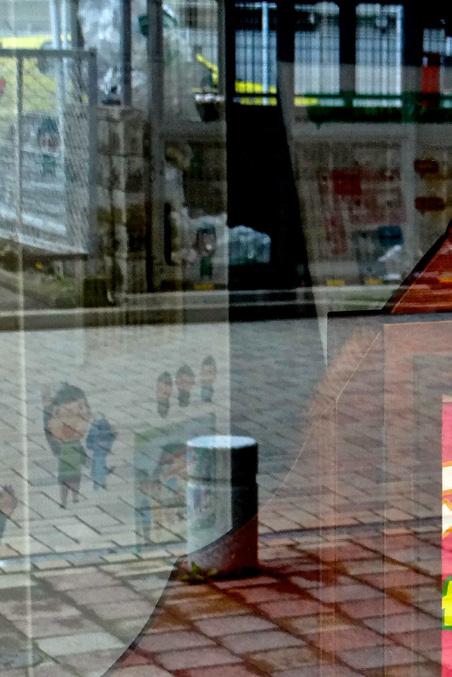


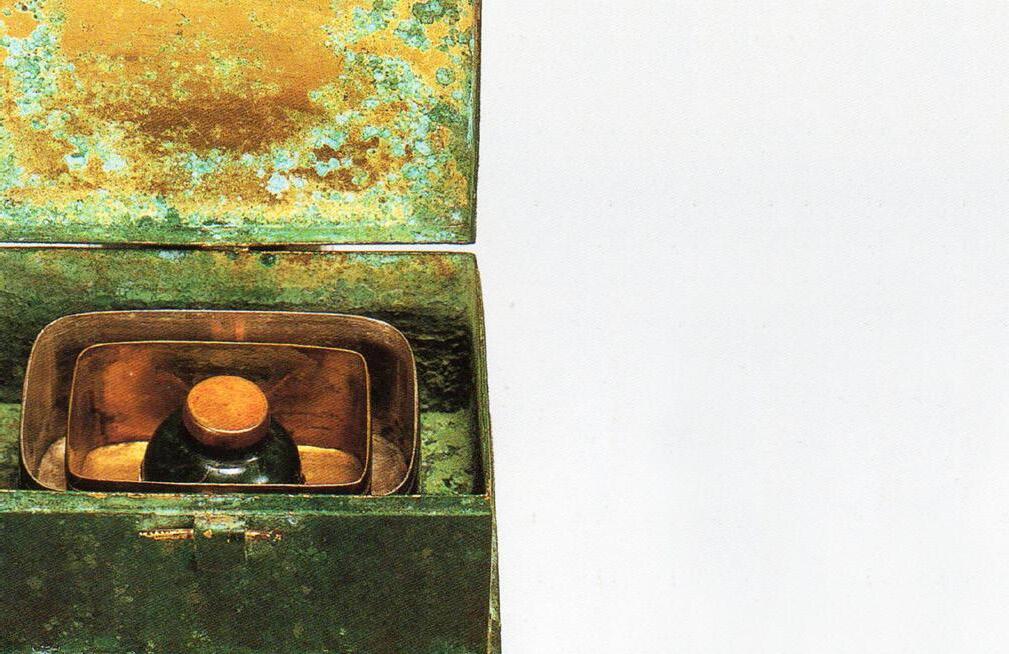
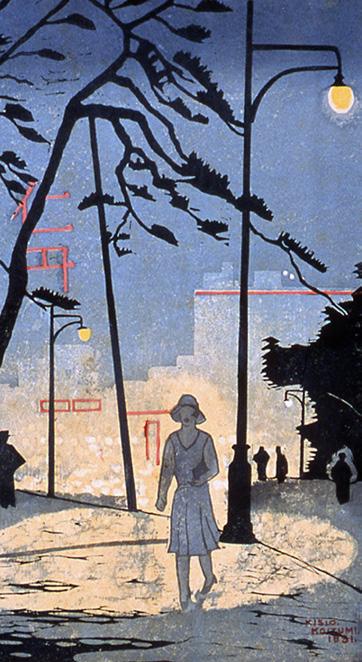
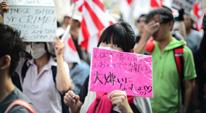
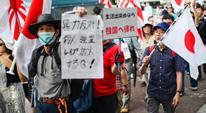

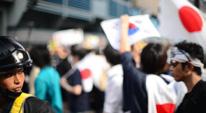
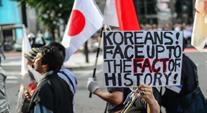
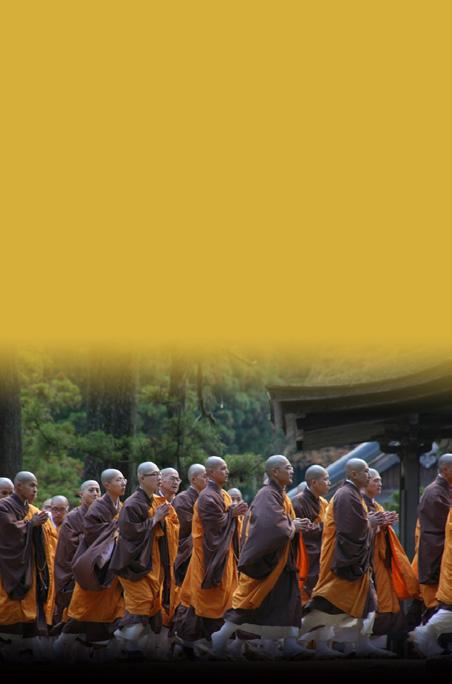
29 JAPAN FORUM REISCHAUER INSTITUTE JAPAN FORUM PRESENTATION The Electric Modern: Tokyo in the Age of Global Energy IAN J. MILLER ASSOCIATE PROFESSOR OF HISTORY, HARVARD UNIVERSITY January 31, 2014 (Friday) 4:30-6:00 p.m. (Note: NEW TIME) Belfer Case Study Room (S020), Japan Friends of Harvard Concourse CGIS South Bldg., 1730 Cambridge St. Harvard University THE JAPAN FORUM IS SPONSORED BY THE EDWIN O. REISCHAUER INSTITUTE OF JAPANESE STUDIES AT HARVARD UNIVERSITY. JAPAN FORUM REISCHAUER INSTITUTE JAPAN FORUM SPECIAL PRESENTATION Leeches, Prohibited Foods, and Suspicious Deaths: Vernacular Knowledge in Pre-modern Japan PETER KORNICKI Professor of Japanese Studies Head, East Asian Studies Department University of Cambridge March 24, 2014 (Monday) 4:00-5:30 p.m Porté Room (S250), Second Level CGIS South Building 1730 Cambridge Street Harvard University The Japan Forum is sponsored by the Edwin O. Reischauer Institute of Japanese Studies at Harvard University. For list of Harvard Japan events view, or contact rijs@fas.harvard.edu or 617.495.3220 JAPAN FORUM TOUCHING THE GRASS: CITIZEN SCIENCE IN FUKUSHIMA TESSA MORRIS-SUZUKI AUSTRALIAN RESEARCH COUNCIL LAUREATE FELLOW,AUSTRALIAN NATIONAL UNIVERSITY APRIL 4, 2014 (FRIDAY) 4:00-5:30 P.M. KANG ROOM (S050) JAPAN FRIENDS OF HARVARD CONCOURSE CGIS SOUTH BLDG., 1730 CAMBRIDGE ST. HARVARD UNIVERSITY FOR LIST OF HARVARD JAPAN EVENTS VIEW: RIJS.FAS.HARVARD.EDU/PROGRAMS/CALENDAR.PHP OR CONTACT RIJS@FAS.HARVARD.EDU OR 617.495.3220 PARTICIPANTS: MARNIE ANDERSON Smith College ALEXIS DUDDEN University of Connecticut CAROL GLUCK Columbia University ANDREW GORDON Harvard University DAVID HOWELL Harvard University YOSHIKUNI IGARASHI Vanderbilt University WILLIAM JOHNSTON Wesleyan University WENDY MATSUMURA Furman University IAN MILLER Harvard University WILLIAM TSUTSUI Southern Methodist University 40TH ANNIVERSARY WORKSHOP APRIL 18, 2014 (F) 1:00 - 6:15 p.m. Kang Room (S050) Japan Friends of Harvard Concourse CGIS South Building, 1730 Cambridge Street Harvard University Please register (name and institutional affiliation) to: rijs@fas.harvard.edu Heisei memory 3.11 Disasters periodization colonialism modernity gender post war empire high speed growthbubble capitalism imperialism modernization Japan Kenpo Showa Asia environment feudalism Okinawa 1970s Tenno economy science culture It Seemed Like a Good Idea at the Time: Modernization Forty Years Later Meiji Taisho JAPAN FORUM REISCHAUER INSTITUTE JAPAN FORUM PRESENTATION Identity Grounded in Ordinary Life: Conversational Narratives of Older Japanese Women YOSHIKO MATSUMOTO Professor, Department of East Asian Languages and Cultures Department of Linguistics Stanford University October 25, 2013 (Friday) 4:00-5:30 p.m. Porté Room (S250), 2nd Level CGIS South Building 1730 Cambridge Street The Japan Forum is sponsored by the Edwin O. Reischauer Institute of Japanese Studies at Harvard University. For list of Harvard Japan events view: rijs.fas.harvard.edu/programs/calendar.php or contact rijs@fas.harvard.edu or 617.495.3220 JAPAN FORUM REISCHAUER INSTITUTE JAPAN FORUM PRESENTATION DOUBLING DOWN ON THE NEGATIVE: ANTI-ANTI NUKES, THE ANTI-ANTI FOREIGN, AND RIGHTIST POSITIVITY IN POST–3.11 JAPAN NATHANIEL SMITH ASSISTANT PROFESSOR OF EAST ASIAN STUDIES, UNIVERSITY OF ARIZONA NOVEMBER 1, 2013 (FRIDAY) 4:00-5:30 P.M. Kang Room (S050), Japan Friends of Harvard Concourse CGIS South Bldg., 1730 Cambridge St. Co-Sponsored by the Weatherhead Center Program on U.S.-Japan Relations REISCHAUER INSTITUTE OF JAPANESE STUDIES JAPAN FORUM THICK CONVERSATIONS: Toward a Dialogical Theory of Japanese Buddhism Mark Rowe Associate Professor of Religious Studies McMaster University October 11 (Friday), 4:00-5:30 p.m. Porte Room (S250), Second Level, CGIS South Bldg., 1730 Cambridge St. Free & Open to the Public The Japan Forum is sponsored by the Edwin O. Reischauer Institute of Japanese Studies at Harvard University. For list of Harvard Japan events view, http://rijs.fas.harvard.edu/programs/calendar.php or contact rijs@fas.harvard.edu or 617.495.3220.
Other Seminars
Each year the Institute organizes and/or sponsors a variety of seminars and lectures on topics related to Japan. A number of these events are co-sponsored with other departments and centers, as indicated below.
2012-13
Seiji Hoshino, Kokugakuin University
Envisioning the Future Religion: Japanese intellectuals and American religious liberals in the late 19th century
Faculty host: Helen Hardacre
Wofram Manzenreiter, University of Vienna Homeless Diaspora: The Impact of Return Migration on Latin American Japanese Communities
Faculty host: Theodore C. Bestor
(USJRP presentation co-sponsored by RI)
Sayuri Guthrie-Shimizu, Michigan State University
Transpacific Field of Dreams: How Baseball Linked the United States and Japan in Peace and War
Faculty Host: Andrew Gordon
(USJRP presentation co-sponsored by RI)
Mette Holm, translator of IQ84 to Danish Ika Kaminka, translator of IQ84 to Norwegian Anna Zielinska-Elliott, translator of IQ84 to Polish Challenging the Hegemony of English: Translating Haruki Murakami’s IQ84 in Europe
(RI presentation co-sponsored by Center for European Studies and the Department of Germanic Languages and Literatures)
Kengo Kuma, Architect
After March 11
(GSD lecture co-sponsored by RI)
Arnold Howitt, HKS/Program on Crisis Leadership
Assessing Emergency Response to the 3.11 Earthquake/Tsunami/Nuclear Accident in Japan
Faculty host: Andrew Gordon
(Harvard Asia Center presentation co-sponsored by USJRP, the HKS Program on Crisis Leadership, and RI)
Yaroslav Shulatov, Visiting Scholar, Davis Center/ Hokkaido University
The Russian Foreign Policy towards Japan in 1905-1917: Diplomats and Military, Center and Periphery (Davis Center presentation co-sponsored by RI)
Kathryn Goldfarb, USJRP Postdoctoral Fellow and Lecture on Social Anthropology, Harvard Experiments in Japanese Child Welfare: “ Social Care” and the Nuclear Household (USJRP presentation co-sponsored by the Department of Anthropology and RI)
Kathleen Stephens, Former U.S. Ambassador to the Republic of Korea
Sung-Yoon Lee, Tufts Andrew Gordon, Harvard
The Republic of Korea Presidential Election Panel Discussion
Faculty host: Carter Eckert (KI presentation co-sponsored by the Ash Center for Democratic Governance and Innovation, Fairbank, Asia Center, USJRP, and RI)
Akihiro Iwashita, Hokkaido University
David Wolff, Hokkaido University
Yaroslav Shulatov, Hokkaido University and Visiting Scholar, Davis Center
Transitions and Turning Points in 20th-century Russo-Japanese Relations: 1917, 1945, 1991 (Davis Center presentation co-sponsored by Hokkaido’s Slavic Research Center and RI)
Christopher Goto-Jones, Leiden University
Beyond the Samurai: Bushido as Philosophy of Death in Modern Japan
Faculty host: Andrew Gordon
Dong-Won Kim, Visiting Professor of History of Science, Harvard; Visiting Professor, Johns Hopkins University
Star Wars vs. Seopyeonje: Science in Popular Culture in South Korea
Faculty host: Shigehisa Kuriyama (KI presentation co-sponsored by RI)
Tamotsu Aoki, National Art Center, Tokyo Roppongi Through Photographs: Tokyo’s Emerging Cultural Treasure
Faculty host: Theodore C. Bestor (HYI and RI special presentation held in conjunction with Gen Ed course, “Tokyo”)
Yongwook Ryu, Australian National University Bridled by the Past? The “History Problem” and Korea-Japan Security Relations (KI presentation co-sponsored by USJRP and RI)
Fumio Tamamuro, Meiji University, Emeritus
The Abolishment of Buddhism in Satsuma Domain (in Japanese)
Faculty host: Helen Hardacre
Andrew Bernstein, Lewis and Clark College
Mount Fuji and the Japanese Nation: Geological Actors in the Making (Fairbank presentation co-sponsored by RI)
Shigehisa Kuriyama
Toward an Archaeology of Distraction (three lectures): “What Truly Matters?”
“Curiosity and Distraction” “Playful Science”
(Fairbank Annual Edwin O. Reischauer Lecture Series co-sponsored by RI)
Yasuhiro Kamimura, Nagoya University
HYI Visiting Scholar
Welfare and Labor in East Asia: Various Regimes, Common Challenges
Discussant: Mary C. Brinton (HYI presentation co-sponsored by RI)
Mark Metzler, University of Texas at Austin Capital as Will and Imagination: Schumpeter’s Guide to Postwar Japanese Economic Miracle (USJRP presentation co-sponsored by RI)
30
2013-14
Yukio Okamoto, MIT; former Special Advisor to Prime Ministers Koizumi and Hashimoto
Jennifer Ling, Dartmouth College
Andrew Gordon, Harvard University
The Kennedy Legacy and U.S.-Japan Relations (USJRP presentation co-sponsored by RI)
Yusaku Horiuchi, Dartmouth College
Michael Beckley, Tufts University
Jennifer Miller, Dartmouth College
America’s Role in the Making of Japan’s Economic Miracle (USJRP presentation co-sponsored by RI)
Timothy Yang, USJRP Postdoctoral Fellow Global Capitalism, Medicine, and Empire: Hoshi Pharmaceuticals in the Interwar Years
Faculty host: Andrew Gordon (USJRP presentation co-sponsored by RI)
Yuriko Furuhata, McGill University
Expo ’70 in Japan: Art, Surveillance, Multimedia Faculty host: Alexander Zahlten (Media Ecologies presentation co-sponsored by RI)
Hiroshi Takagi, University of Kyoto
Japanese Imperial Tombs, Cultural Preservation, and Religious Heritage
Faculty host: Ryûichi Abé (RI special presentation)
William M. Tsutsui, Southern Methodist University
Japan’s Modern Fisheries: Industry, Environment, Empire
Faculty host: Ian J. Miller (Fairbank presentation co-sponsored by RI)
Hyungkee Kim, Kyungpook National University; Visiting Scholar, KI
Transformation and Sustainability of East Asian Development Model: The Cases of Korea, China, and Japan
Faculty host: Carter J. Eckert (KI presentation co-sponsored by Fairbank and RI)
Sheila Smith, Council on Foreign Relations
Constitutional Revision, Collective Self-Defense, and the U.S.-Japan Alliance (USJRP presentation co-sponsored by RI)
Nancy S. Steinhardt, University of Pennsylvania
East Asian Internationalism and Beyond: Crossing Borders in Chinese Architectural History (three lectures):
“The Sixth Century as the Seventh and Eighth:
Recentering an International Age in Chinese Architectural History”
“The Liao Revolution in Building and Design”
“Shifting the Borders: A Revisionist History of Yuan Architecture”
(Fairbank Annual Edwin O. Reischauer Lecture Series co-sponsored by KI and RI)
Mi-Ryong Shim, KI Foundation Postdoctoral Fellow
Return to the Orient: Japan’s Wartime Pan-Asianism and Aesthetic Production of “Korea” in Yi Hyo-sŏk’s Late Colonial Writings
Discussant: Karen Thornber
(KI presentation co-sponsored by RI)
Takashi Masuoko, Kobe City University of Foreign Studies
RI Visiting Scholar
Competition and Coexistence between Two Conjunction Forms in Japanese: the TE-Form and the Neutral Form (in Japanese)
Faculty host: Wesley M. Jacobsen (RI special presentation)
31
Workshops, Conferences, Events & Symposia 2012-2013
Exhibition Opening, Panel Discussion, and Lecture
11 September
Tectonic Visions Between Land and Sea: Works of Kiyonori Kikutake
The exhibition opening was highlighted by a panel discussion led by the curator, Ken Tadashi Oshima, a tour of the gallery, and a visit to Special Collections, in Francis Loeb Library.
Lecture
16 October
Lecture by architect Toyo Ito to mark the close of the exhibition on the work of Kikutake. Mrs. Kikutake, the architect’s widow, was in attendance.
Symposium
16-17 November
Pacific Histories: Ocean, Land, People
This symposium, jointly sponsored by WCFIA, Harvard’s Australian Studies Committee, and RI, brought together twenty-one scholars from across the U.S., Japan, Australia, New Zealand, Canada, and the U.K. Panel topics included: “Periodizing the Pacific,” “Connections,” “Knowledges,” and “Identities.”
Workshop
23 January
New Perspectives in the Study of Japanese Religion: Research from Kokugakuin University
Hiroyuki Kurosaki: “The Relief by Religious People and the Support to Them by Researchers in Japan’s 2011 Disaster” (in Japanese)
Takaaki Daito: “Buddhist Rituals in Shinto History” (in Japanese)
Seiji Hoshino: “Presenting ‘Japanese Religion’ in America at the End of the 19th Century”
Koji Suga: “On Academic Utility of ‘Shinto shinto’
Concept: Considering Contemporary Discussions in Japan”
Moderator: Helen Hardacre
Symposium
24-25 January
Opportunities and Challenges of Participatory Archives: Lessons from the March 11, 2011 Great Eastern Japan Earthquake
Details about this international conference are given above under “Japan Disasters Digital Archive.”
Symposium
28 January
As If Our Eyes Were in Our Hands—The Films of Susumu Hani
In conjunction with the 19-28 January film retrospective at the Harvard Film Archive (see Educational Mission), RI presented this symposium on the cinematic work and writings of this pioneering filmmaker and public intellectual. Mr. Hani was one of the presenters, along with Roland Domenig (University of Vienna), Markus Nornes (University of Michigan), Tatsuya Tsunoda (Yale), and Alexander Zahlten (Harvard).
Workshop
25 March
IBWA Workshop: The Image of the Black in African and Asian Art
With presentations by a roster of international scholars from the Pulitzer Foundation, SOAS, Boston MFA, UCLA, Edinburgh, Maryland, Louisville, and Middlebury, this workshop was organized by the W.E.B. Du Bois Research Institute and co-sponsored by the Asia Center, Committee on African Studies, Fairbank, SAI, and RI.
32
Workshops, Conferences, Events & Symposia 2013-2014
Art Exhibition
1 September-1 November
Tomokazu Matsuyama ❘ Palimpsest
Curated by David Howell
RI was honored to host a collection of paintings by contemporary artist, Tomokazu Matsuyama. Born in Gifu prefecture and raised there and later in the southern California town of Costa Mesa, Matsuyama’s identity and artistic expression were formed within both the traditional architecture and deep snows of Takayama and the sand, palm trees, and youthful culture of southern California. His work blends historical and cultural depth with breadth of experience across two continents within the interconnectedness of the contemporary world. The exhibit was an apt accompaniment to RI’s celebration of the depth and breadth of its offerings over the past forty years.
Conference
26-27 September
REISCHAUER INSTITUTE 40TH ANNIVERSARY CONFERENCE
Japan Re-Examined: Perspectives Since 1973
Sponsored by the Japan Society for the Promotion of Science (JSPS) and RI, this conference took the year 1973 as a touchstone for the examination of the development over the last forty years of key developments in Japan and Japanese Studies.
Session 1: Constitutional Revision since 1973 and Beyond
Welcome Remarks: Michio Muramatsu, Kyoto; JSPS
Speaker: Kazuhiro Takii, Nichibunken
Respondent: Timothy George, University of Rhode Island
Speaker: Keigo Komamura, Keio University
Respondent: Masamichi Ogawara, Keio University
Speaker: Kenneth McElwain, University of Michigan
Respondent: Shinju Fujihira, Harvard University
Speaker: Alexis Dudden, University of Connecticut
Respondent: Franziska Seraphim, Boston College
Session 2: The Question of Change: Forty Years of Japan
(Four Topics)
Welcome Address: Theodore C. Bestor
History and Historical Studies:
“The End of Postwar Japan?”
Shun’ya Yoshimi, Tokyo University
Andrew Gordon, Harvard University
Religion and Religious Studies:
“New and Traditional Japanese Religions in the Information and Global Age: Considering Changes Since the Mid-1970s”
Nobutaka Inoue, Kokugakuin
Helen Hardacre, Harvard University
Japanese Society and Sociology of Japan: “Women and Children First? Gender Relations and Family Change Across 40 Years”
Emiko Ochiai, Kyoto University
Mary C. Brinton, Harvard University
Japanese Media and Media Studies:
“The Rise of Amateur/Otaku Popular Culture in the 1970s and Issues of Archiving”
Kaichiro Morikawa, Meiji University
Alexander Zahlten, Harvard University
Conference
3-5 October
The Global E.P. Thompson: Reflections on the Making of the English Working Class after Fifty Years
Organized by the Program on the Study of Capitalism and the Weatherhead Initiative on Global History and co-sponsored by the Committee for African Studies, DRCLAS, SAI, the Charles Warren Center for Studies in American History, the Center for European Studies, and RI, the conference included a presentation by Hideo Ichihashi, Saitama University, on “E.P. Thompson and Japanese Left Wing Intellectuals: Why Wasn’t His Major Work Translated for 40 Years?”
33
Art Exhibition
17 January-25 March
The Thinking Hand: Tools and Traditions of the Japanese Carpenter
Curated by Mark Mulligan and Yukio Lippit
In January 2014, the Takenaka Carpentry Tools Museum donated a set of sixty-two traditional carpentry tools to the GSD as a resource for architecture students to learn about the rich traditions of Japanese wooden architecture. The tools represent a base set that would have been employed by a daiku working in the Kansai region of Japan in the early 20th century, a period known among experts as a Golden Age of tool-making, prior to the widespread introduction of power tools and industrial production. RI was honored to exhibit these tools in the Japan Friends of Harvard Concourse along with sections of trees and wood shavings and a sukiya-style teahouse constructed in situ. A video showed the process of construction from forest to finished building. On 17 January, there was a live demonstration by the Takenaka carpentry team.
Workshop
23 January
New Applications for Non-Print Media Throughout the Japanese Studies Curriculum
Hosted by RI and the North American Coordinating Council on Japanese Library Resources, the workshop featured presentations by Theodore C. Bestor and Andrew Gordon on curricular use of the Japan Disasters Digital Archive and by Alexander Zahlten on multimedia and Japanese culture.
Performance
1 April
Kyogen featuring Kyoto-based actors Katsumi Yanagimoto and Shin’ichi Yutani
Mr. Yanagimoto introduced the tradition, discussed and demonstrated its conventions, and performed two farcical plays with Mr. Yutani. The event was presented in Japanese with English subtitles. An EALC special event co-sponsored by RI.
Workshop
11 April
The Making and Unmaking of Manchukuo
The workshop focused on the history, literature, and culture of Japanese colonial Manchuria from multidisciplinary and multinational perspectives. Presenters included faculty and graduate students from Harvard and nearby universities. A WCFIA workshop co-sponsored by the Rosenberg Institute for East Asian Studies at Suffolk University, Fairbank, and RI.
Workshop
18 April
“It Seemed Like a Good Idea at the Time: Modernization Forty Years Later”
Organized by David Howell in commemoration of RI’s 40th anniversary, this workshop took the year 1973 as a touchstone to re-examine what it meant to study Japan in the historical moment of the 1970s. The focus was to take a retrospective look at modernization theory and its direct and indirect influences on the field of Japanese history during the past forty years. Presenters gave brief provocations to stimulate discussion. The presenters included: Marnie Anderson, Smith College; Alexis Dudden, University of Connecticut; Carol Gluck, Columbia University; David Howell, Harvard University; Yoshikuni Igarashi, Vanderbilt University; William Johnston, Wesleyan University; Wendy Matsumura, Furman University; Ian J. Miller, Harvard University; and William Tsutsui, Southern Methodist University.
34
Collaborative Study Projects
RI sponsors ongoing study groups to support the research of Harvard faculty and graduate students. These study groups bring together members of the Harvard scholarly community, including faculty, graduate students, RI postdoctoral fellows, visiting scholars, and, in many cases, leading scholars from area institutions, to explore specific research themes that relate in some way to Japan.
The program is open to a variety of formats and objectives. Many groups feature seminar series in which the participants share their research findings, in some cases leading to published work. Others hold planning meetings aimed at developing major research projects, for which the organizers eventually seek external support. Alternately, the group may undertake collaborative research to create a new data source, as in the case of the Constitutional Revision project. In 2012-14, RI sponsored and funded four study groups, as follows.
Constitutional Revision
Launched by Helen Hardacre in 2005, the Constitutional Revision Collaborative Research Group focuses on the debate currently under way over whether to revise Japan’s 1947 constitution, and if so, how, focusing on the role of civil society in the debate. Related topics discussed include: Japan’s defense and security; imperial succession; rights and duties of citizens; the status of women; and the relationship between religion and state. The project looks at the role and perspectives of the political parties, the media, political, labor, and business associations, women’s groups, religious groups, and many civil society groups in the constitutional revision debate. Research on constitutional revision builds links from RI to other branches of Asian and international studies. Faculty, diplomats, researchers, and students from Japan, as well as a number of universities in New England, and students from a number of social science and humanities departments are actively engaged in the project along with those at Harvard.
A central aim of the project is to collect and preserve the debate in its original form. With assistance from the Library Digital Initiative (LDI) of the Harvard College Library in early 2006, the project began monthly “web-harvesting,” archiving material from a target set of 77 related Japanese websites. In 2006-07 the project launched its website: http://rijs.fas.harvard.edu/crrp/. The website provides links to the most relevant websites in Japan where current debate about constitutional revision is to be found. In addition, a bibliography provides researchers with over 1,000 references to academic research and political analysis of the Meiji Constitution, the postwar constitution, and ongoing discussion of constitutional revision. It provides a chronology of events in the constitutional revision debate.
Leadership of the project was formalized through the creation of an Advisory Board, which included Hiroyuki Akita (Nikkei Newspapers), Alexis Dudden (History, University of Connecticut), Timothy George (History, University of Rhode Island), Helen Hardacre (EALC, Harvard), Keigo Komamura (Law, Keio University), Suzanne O’Brien (History, Independent Scholar), Richard Samuels (Political Science, MIT), and Franziska Seraphim (History, Boston College). This group convenes to set directions for the project and to plan future activities.
As part of RI’s 40th anniversary, on 26 September 2013, the project held a symposium on “Constitutional Revision
Since 1973 and Beyond.” This event, co-sponsored with Japan Society for the Promotion of Science (JSPS), featured four speakers: Kazuhiro Takii (Nichibunken), Keigo Komamura (Keio University), Kenneth McElwain (University of Michigan), and Alexis Dudden (University of Connecticut). Further, on 1 April 2014, the project co-sponsored a USJRP presentation on “Constitutional Revision, Collective Self-Defense, and the U.S.-Japan Alliance,” by Sheila Smith, Council on Foreign Relations.
35
Contemporary Japanese Politics
Established in 1999, the Contemporary Japanese Politics Study Group promotes the discussion of the works in progress among political scientists at Harvard and the greater New England area. With a mailing list of over 50 individuals, the study group brings together faculty, graduate students, postdoctoral fellows, and visiting scholars from Harvard, MIT, Boston University, and other universities. It normally meets three to four times a semester, and occasionally serves as a setting for practice job talks. The group provides a much-needed forum for graduate students to discuss the latest research on Japanese politics, political economy, and foreign policy. In 2012-14, the group was sponsored by Susan J. Pharr.
MIT/Harvard Cool Japan Program
This collaborative research project was launched in spring 2006, sponsored by Theodore C. Bestor, Helen Hardacre, and Wesley M. Jacobsen and organized by RI Associate in Research Ian Condry, an anthropologist at MIT. The project convenes an interdisciplinary group of faculty and graduate students in the Boston area, providing a forum for seminars and cultural events surrounding the scholarly analysis of Japanese popular culture. In particular, it focuses on understanding the cultural connections, dangerous distortions, and critical potential of popular culture in a global perspective. The program has been sponsored by the MIT Japan Program, RI, Foreign Languages and Literatures at MIT, and MIT Comparative Media Studies.
During 2012-14, the project held two notable events. On 4 April 2013, David Novak of University of California, Santa Barbara, presented on “The Cultural Feedback of Noise” (co-sponsored by MIT Comparative Media Studies). A two-day panel series on “Music Culture and Transformation” was held on 26 and 27 February 2014, which featured live music, artist talk, postwar pop, intermedia art, and Fukushima activism. The featured panelists and discussants included: Marié Abe (Music, BU), Ian Condry (Global Studies and Languages, MIT), Miki Kaneda (Ethnomusicology, RI Postdoctoral Fellow), and Hiromu Nagahara (History, MIT).
Modern and Contemporary Japanese Literature and Culture
Organized by Tomiko Yoda, this study group brought together scholars and students interested in humanistic approaches to studying modern and contemporary Japanese culture, with a primary focus on literature but also on visual and sonic media. The purpose of the project was to strengthen the network among the Japanese literature and cultural studies communities on different campuses and, in particular, to serve as a forum for graduate students to meet with scholars at institutions other than their own. Andrew Campana, EALC, was the graduate student assistant.
36
Japan Disasters Digital Archive
Launched in July of 2012, the Japan Disasters Digital Archive (JDA; http://jdarchive.org) is an advanced search engine for materials from around the globe, building digital repositories about the Great East Japan Earthquake in 2011. With the support of metaLAB and Center for Geographic Analysis at Harvard, the project seeks to collect, preserve, and make broadly accessible many forms of first-hand information and primary documentation of the events of March 11, 2011 and their aftermath. Through the archive, the project aims to provide a public space of information exchange, establish innovative means of organization, access, and integration of materials, and to contribute to teaching, research, and policy analysis both near term and in the future. But most of all, JDA hopes that the archive will serve as a site of shared memories and reflection for those most affected by these events and concerned about their consequences.
JDA actively encourages user submissions of resources such as websites, videos, and photographs, and user testimonials about personal experiences of the disasters and their aftermath. Its innovative map feature visualizes all materials that are tagged with geographic information in real time. And with the nature of sharing and exchanging of collections and presentations, JDA fosters new connections, both between items and among users. This network is ever-expanding, from a major organization that submits thousands of location- and direction-tagged photographs to fellow citizens who submit their family’s testimonial to historians who seek to understand the interaction of public and private actors in the relief effort. Thus, the archive is an interactive space that promotes, and indeed thrives on, user participation.
During 2012-14 RI supported the following activities related to the March 11 events and the JDA:
Seminar
22 October 2012
Akihiro Shibayama, International Research Institute of Disaster Science (IRIDeS), Tohoku University
Overview of the March 11 Japan Disaster Visualization Project
Faculty host: Andrew Gordon
Conference
24-25 January 2013
With generous support from the Japan Foundation Center for Global Partnership, RI organized an international conference on, “Opportunities and Challenges of Participatory Archives: Lessons from the March 11, 2011 Great Eastern Japan Earthquake.”
The conference introduced various projects underway to create digital archives of the March 11 disasters, presented reports from those who were using the archives already, and discussed possibilities for this and similar projects focused on other major world events. Panel topics and presenters included:
Panel: The Japan Disaster Archive
The Japan Disasters Digital Archive Project, Andrew Gordon (RI), Zeega, Jesse Shapins (metaLAB at Harvard)
Harvard Center for Geographic Analysis, Ben Lewis (CGA), Internet Archive, Kristine Hanna and Lori Donovan (IA)
Moderator: Andrew Gordon
Panel: Major Archiving Projects in Japan
Tohoku University Michinoku Shinrokuden, Akihiro Shibayama (International Research Institute of Disaster Science, Tohoku University) National Diet Library, Kei Shiraishi (National Diet Library)
All311 and Sendai Mediatheque, Kuniko Sakata Watanabe (Tohoku University)
Keio Media Design/Fukushima Project, Naoto Kikuchi (Keio University)
Relief Activities of Religious Organizations, Hiroyuki Kurosaki (Kokugakuin University)
Moderator: Molly Des Jardin
37
Panel: Reports from Archive Users
Donald Clark (Trinity College)
Ari Sato (Inter-University Center for Japanese Language Studies, Yokohama)
Keiko Nishimura Galbraith (Duke University)
Yasuhiko Iwasaki (NHK Japan)
Moderator: Nikhil Kapur
Panel: Prospects for Participatory Archives of Major World Events
18 Days in Egypt: A Collaborative Documentary Project about the Egyptian Revolution, Yasmin Elayat (Co-creator)
Berkman Center for Internet and Society, Jeffrey Schnapp (metaLAB at Harvard)
Hypercities, Yoh Kawano (UCLA)
Bengali Harlem Project, Vivek Bald (MIT)
Moderator: Jesse Shapins
Sanriku Project
The Sanriku Project is a multi-disciplinary team of Harvard-affiliated researchers, designers, and medical professionals whose mission is to help facilitate the recovery and rebuilding process along the Sanriku coast through empowering local residents and building community resilience (http://sanrikuproject.org). The project has received support from the Japan Disaster Relief Fund Boston, The Harvard Commemorative Cherry Tree Planting Initiative, and RI. Participant groups have included Harvard for Japan, Boston Japan Medical Relief Initiative (BJMRI), GSD to Minami Sanriku, and the Urban Risk Lab at MIT. Individual participants bring expertise from many fields: anthropology, local governance, business, design, technology, mental health, community support systems, health policy, health economics, trade policy, and disaster prevention.
As a collaborative project with various Japanese universities, the project has prioritized development in dialogue with local communities. Cooperating with the local residents of Minamisanriku-chô, the project has identified a number of areas where its collective resources can contribute to recovery through an incremental approach that stresses short-term solutions and visible signs of progress that will improve community morale and increase faith in the recovery effort.
In summer 2013, the team focused on continuing to support the inclusion of local resident voices in community reconstruction and redevelopment. Through interviewing various members of the community, the team collected individual opinions, concerns, and hopes of their re-imagined, rebuilt Minami Sanriku. These articulations, focused on distinct areas (residential, commercial, industrial, and green space), were manifested in sketches of large designs, which were showcased to the public in the town hall, and presented to the consultants and city officials to be included in the community master plan of rebuilding Minamisanriku-chô.
38
Special Presentations on the 3.11 Disasters and Post-Disaster Japan 2012-14
Lecture
11 September 2012
Kengo Kuma, Architect
After March 11
(with RI support)
Seminar
5 February 2013
Richard J. Samuels (MIT)
3.11 Disaster and Change in Japan
(USJRP presentation co-sponsored by RI)
Panel
11 March 2013
Hirotaka Takeuchi (HBS), Toshiko Mori (GSD), Ichiro Kawachi (HSPH)
Japan’s 2011 Disasters Remembered
Convener: Theodore C. Bestor
Moderator: Susan J. Pharr
Seminar
21 October 2013
Fumihiko Imamura, International Research Institute of Disaster Science, Tohoku University
Lessons Learned from the 2011 Tohoku Earthquake and Tsunami: Our Role in Risk Reduction for Future Disasters
Faculty host: Andrew Gordon
Seminar
29 October 2013
Brendan Meade, Harvard
Seeing the Tohoku Earthquake Before It Happened
Faculty host: Andrew Gordon
(USJRP presentation co-sponsored by the Department of Earth and Planetary Sciences and the Japan Disasters Digital Archive)
Seminar
3 December 2013
Kenji Tateiwa, TEPCO
A Roadmap for Decommissioning the Fukushima Daiichi Nuclear Power Plant
(USJRP presentation co-sponsored by Harvard’s Center for the Environment, Environment and Natural Resources Program, Belfer Center for Science and International Affairs, HKS, and RI)
Seminar
11 February 2014
Peter Galison, Harvard, Robb Moss, Harvard
Losing Containment: Filming in the Nuclear Waste Zone
Faculty host: Susan J. Pharr
(USJRP presentation co-sponsored by VES, Harvard’s Center for the Environment, and the Japan Disasters Digital Archive)
Panel
11 March 2014
Andrew Gordon, Director, Japan Disasters Digital Archive
Miaki Ishii, Harvard Department of Earth and Planetary Sciences
Hiro Saito, USJRP Postdoctoral Fellow
Three Years after the 3.11 Disasters: Lessons and Reflections
Discussant: Susan J. Pharr
(USJRP presentation co-sponsored by the Department of Earth and Planetary Sciences and RI)
Seminar
13 March 2014
Hidemichi Kawanishi, University of Hiroshima
The Historiography of Post-Disaster Japan: An Examination of Tohoku, Japan’s Constructed Outland (in Japanese)
Faculty host: David Howell
39
1 September-1 November 2013
Tomokazu Matsuyama ❘ Palimpsest
Curated by David Howell
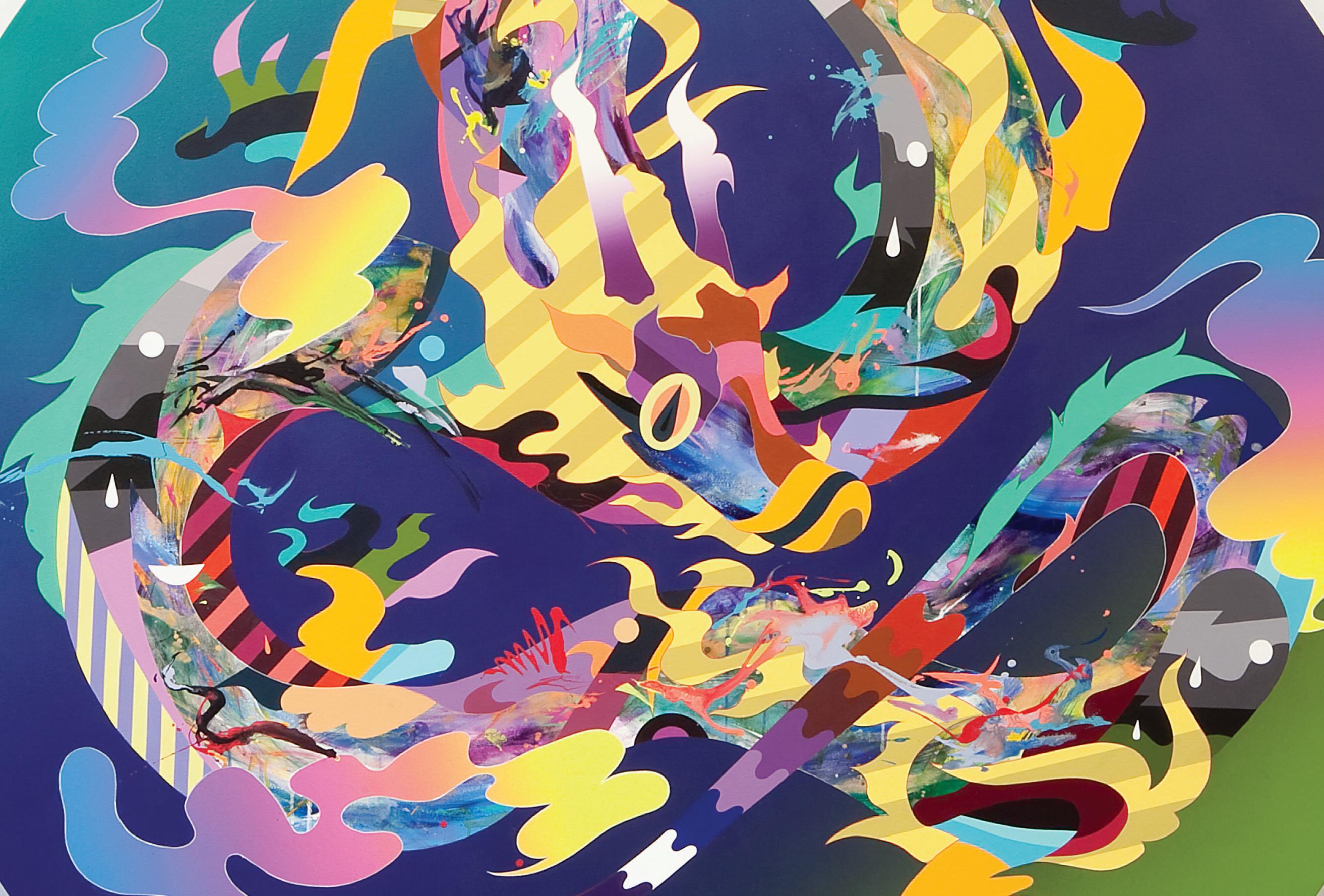
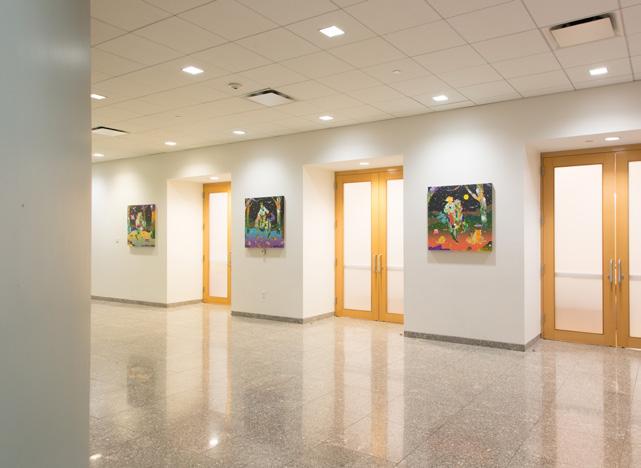
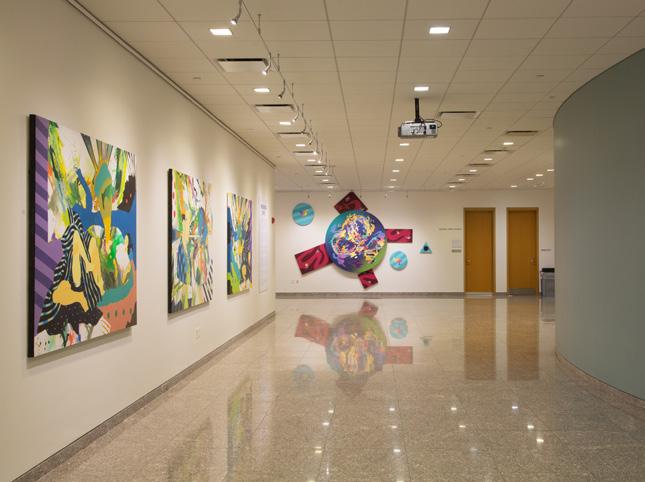
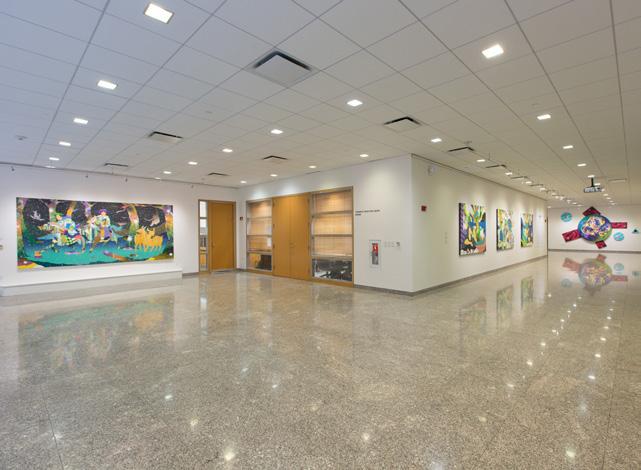
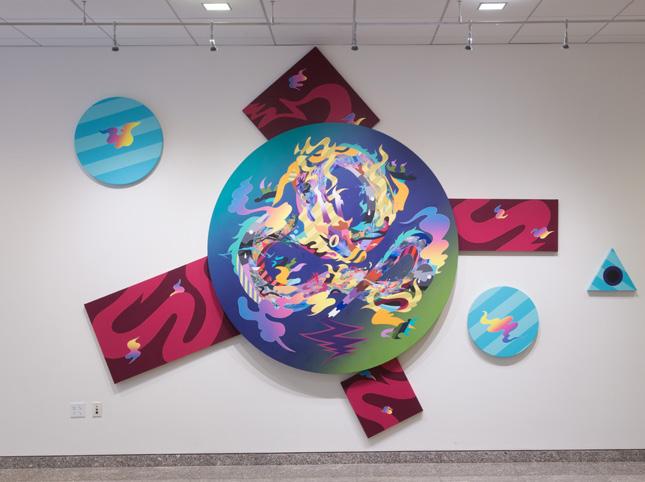
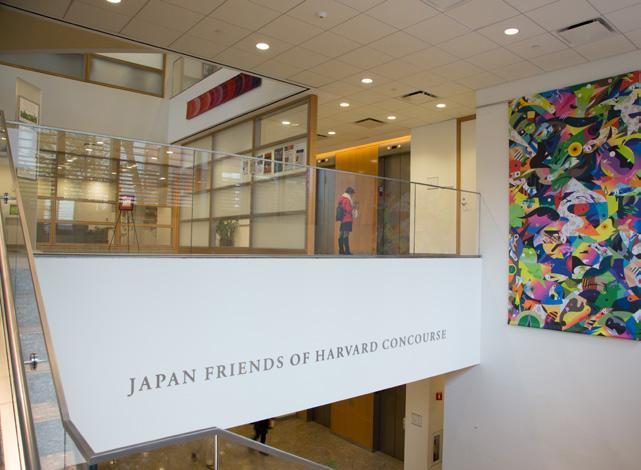
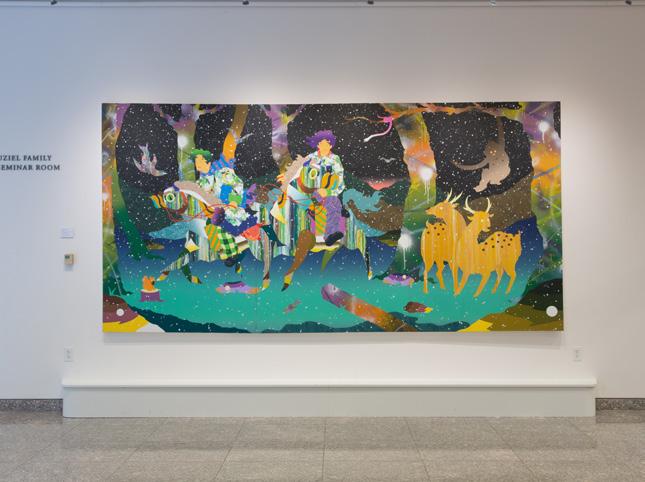
40
PHOTOS BY M. STEWART
17 January-25 March 2014
The Thinking Hand: Tools and Traditions of the Japanese Carpenter
Curated by Mark Mulligan and Yukio Lippit
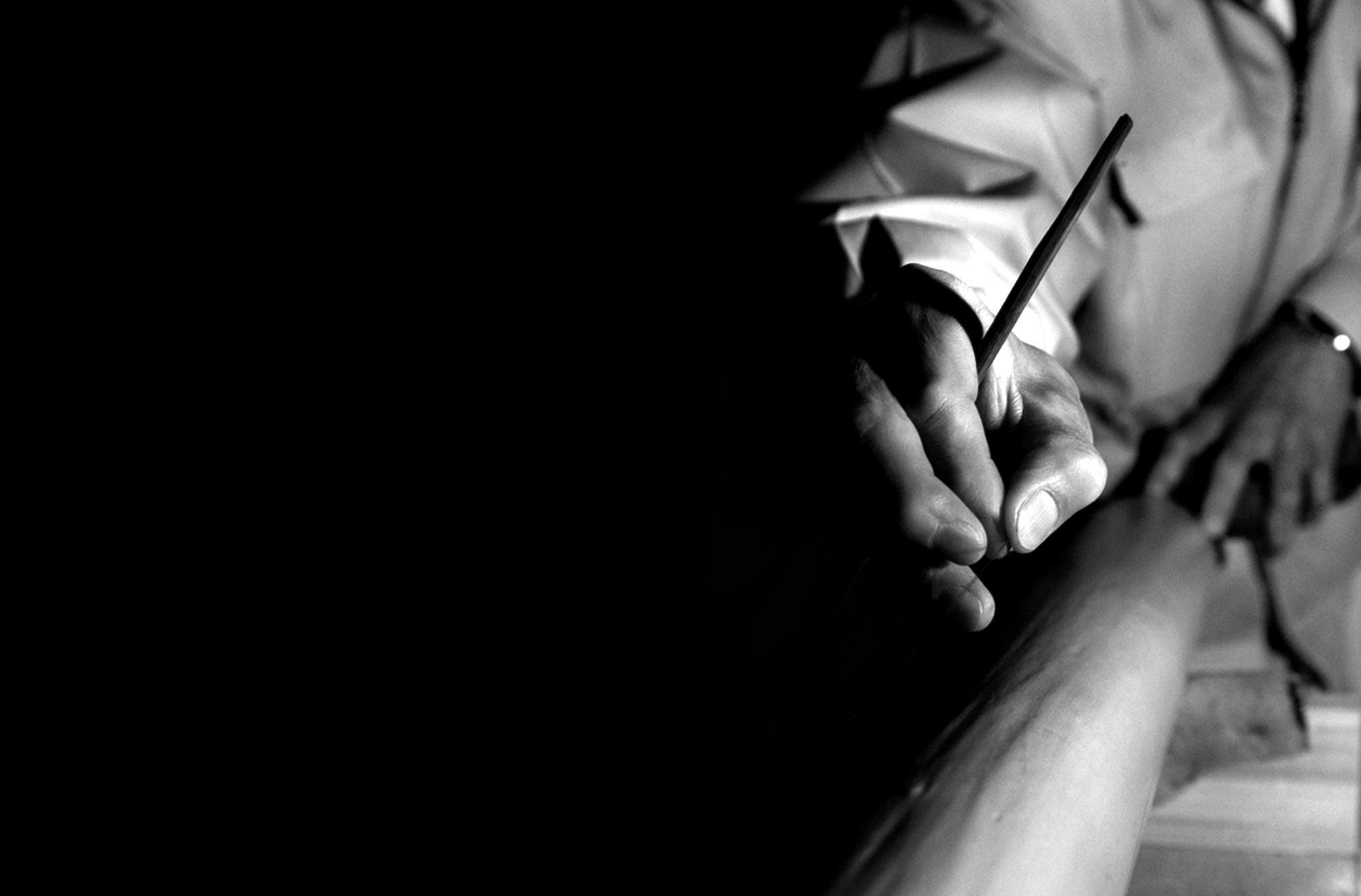
the thinking hand
tools and traditions of the japanese carpenter
january 17 - march 25, 2014
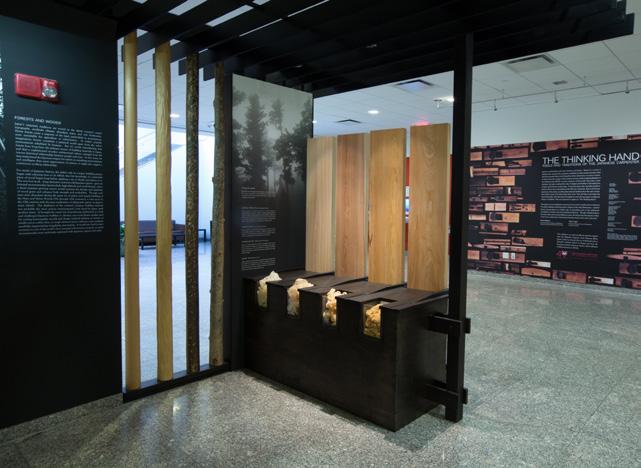
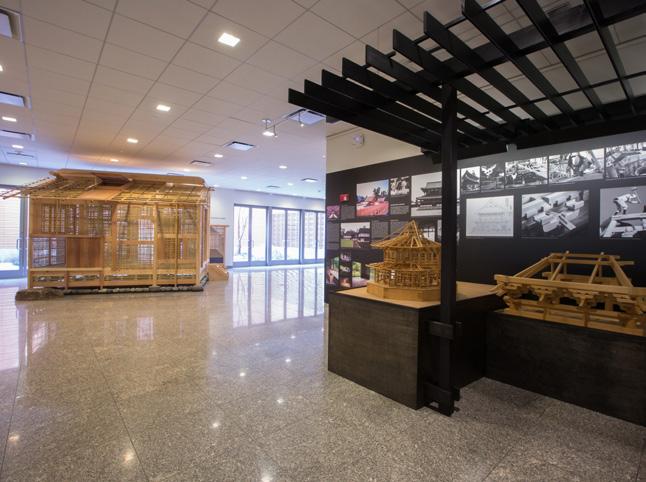
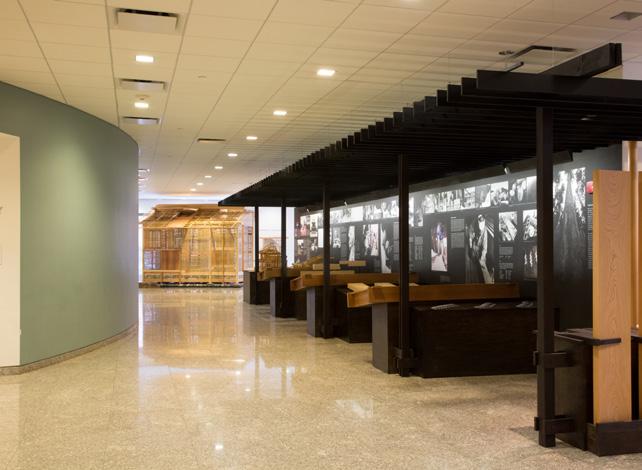
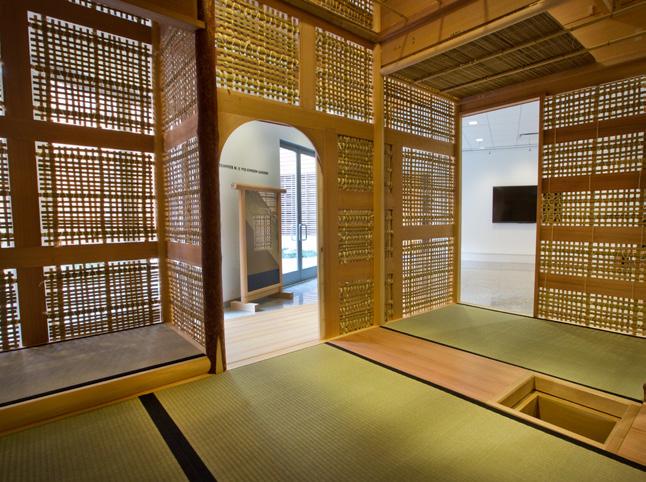
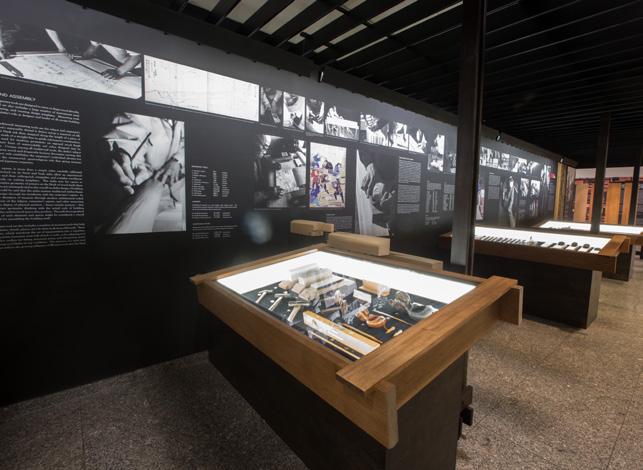
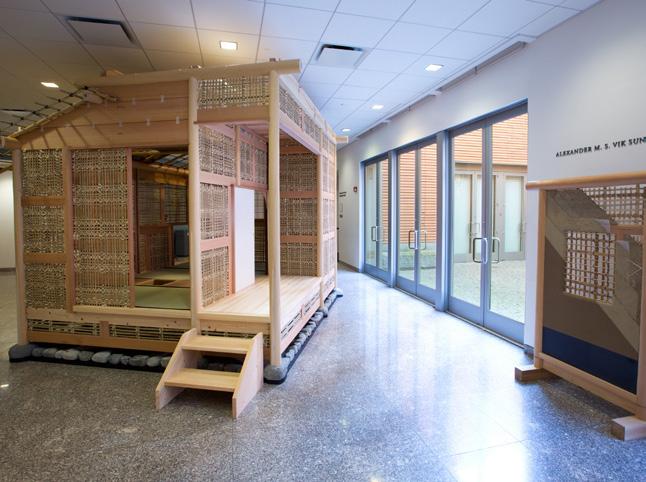
41
PHOTOS BY M. STEWART
Publications
Harvard East Asian Monograph Series and Harvard-Yenching Institute Monograph Series
RI, along with other Asia centers, plays an active role in publishing outstanding research in the prestigious Harvard East Asian Monograph series (HEAM). Books on Japan sponsored and funded by RI are produced through the Publications Office of the Asia Center. The series plays a vital role in making the research of scholars available to a broader audience, and many leading academics in Japanese studies today, including numerous Harvard Ph.D. recipients, began their academic careers with books that appeared in the series. Of the approximately 370 books that have been issued to date, more than 125 deal with Japan. The works concern all aspects of Japan with particular emphases on Japan’s history, culture, society, and literature. Other works, particularly in the humanities, are published in the Harvard-Yenching Institute Monograph Series, which is funded by the Harvard-Yenching Institute; some 100 titles have been issued in this series to date, 10 of them on Japan. Works in both series are selected by the Publications Committee, comprised of Harvard faculty members, on the basis of peer reviews.
Jun Uchida’s book, Brokers of Empire: Japanese Colonialism in Korea, 1876-1945, published in 2011 was awarded the 2013 John K. Fairbank Prize in East Asian History by the American Historical Association.
In 2012-14, the following nineteen books on Japan were published in the HEAM Series.
2012-13
Jeffrey Paul Bayliss, On the Margins of Empire: Buraku and Korean Identity in Prewar and Wartime Japan
Jung-Sun N. Han, An Imperial Path of Modernity: Yoshino Sakuzô and a New Liberal Order in East Asia, 1905-1937
H. Mack Horton, Traversing the Frontier: The Man’yoshu Account of a Japanese Mission to Silla in 736-737
Hwansoo Ilmee Kim, Empire of the Dharma: Korean and Japanese Buddhism, 1877-1912
Jamie L. Newhard, Knowing the Amorous Man: A History of Scholarship on Tales of Ise
Michael Schiltz, The Money Doctors from Japan: Finance, Imperialism, and the Building of the Yen Bloc, 1895-1937
J. Keith Vincent, Two-Timing Modernity: Homosocial Narrative in Modern Japanese Fiction
2013-14
Gina Cogan, The Princess Nun: Bunchi, Buddhist Reform, and Gender in Early Edo Japan
Darryl E. Flaherty, Public Law, Private Practice: Politics, Profit, and the Legal Profession in Nineteenth-Century Japan
Eric C. Han, Rise of a Japanese Chinatown: Yokohama, 1894-1972
Atsuko Hirai, Government by Mourning: Death and Political Integration in Japan, 1603-1912
Sho Konishi, Anarchist Modernity: Cooperatism and Japanese-Russian Intellectual Relations in Modern Japan
Trent E. Maxey, The “Greatest Problem”: Religion and State Formation in Meiji Japan
Michel Mohr, Buddhism, Unitarianism, and the Meiji Competition for Universality
Hiraku Shimoda, Lost and Found: Recovering Regional Identity in Imperial Japan
David Spafford, A Sense of Place: The Political Landscape in Late Medieval Japan
Michael Wert, Meiji Restoration Losers: Memory and Tokugawa Supporters in Modern Japan
42
Published in Paperback:
Jun Uchida, Brokers of Empire: Japanese Colonialism in Korea, 1876-1945
Published in the HYIMS series:
Hideaki Fujiki, Making Personas: Transnational Film Stardom in Modern Japan
RIJS Website
Established in 2005, RI website provides an overview of the Institute’s faculty, scholars, and students; events and activities; grants and fellowships; and publications. Visit the RI website at: http://rijs.fas.harvard.edu.
Program on U.S.-Japan Relations
RI provides major support to the Program on U.S.-Japan Relations (USJRP) at the Weatherhead Center for International Affairs. Susan J. Pharr serves as Director of the program, which is overseen by a Harvard Faculty Advisory Committee. Begun in 1980, USJRP organizes activities to foster research on U.S.-Japan relations, Japan’s relations with the rest of the world, and domestic issues and problems in Japan that bear on the country’s international roles and the evolving regional context of which Japan is a part. Many activities compare Japan’s experience with those of other nations. Among its seminars are special series on the common problems of the advanced industrial nations and on the international relations of East Asia. The program’s seminar series and other research-related activities reach a wide audience of faculty and students in the social sciences and Harvard’s professional schools. A recent study showed that the seminar series of USJRP and RI have surprisingly little overlap in audience: two-thirds of attendees join one, but not the other. Thus, partnering creates new synergies and connections.
Each year, USJRP, with support from RI, selects and brings to Harvard 2-3 advanced research fellows whose work bears on the program’s themes. The program also hosts 12-15 academics, public officials, journalists, and leaders in finance and other fields. They conduct research while in residence and speak in classes, take part in Japanese language tables in Harvard’s undergraduate houses, and serve as resources for faculty and students, both graduate and undergraduate, who conduct research on Japan. Housed at 61 Kirkland Street, USJRP coordinates closely with RI to increase summer internships for Harvard College students. The program also has a well-organized and active alumni group in Tokyo.
In February 2012, the program was pleased to announce its vimeo channel: http://vimeo.com/channels/usjapan.
USJRP’s Executive Director is Shinju Fujihira. In 2012-14, the staff included Program Coordinator William Nehring, Staff Assistants Xiao Tien (2012-13) and Jiyoun Jennie Kim (2013-14), and Research Assistants Caitlin Cronin (2012-13) and Lauren Inch (2013-14).
43
Harvard’s Libraries
Harvard has one of the world’s leading research collections on Japan, and the Institute plays a major role in providing the support necessary to maintain and develop it. In addition, in the late 1980s, RI established and continues to support the Documentation Center on Contemporary Japan, which includes both English and Japanese language materials and databases, to aid research in the social sciences.
Documentation Center on Contemporary Japan (DCJ)
The Documentation Center on Contemporary Japan (DCJ), now a part of the Fung Library, offers important resources on contemporary Japan that complement the Japan-related holdings of other libraries on campus. The library, supported by RI, is staffed by its director, librarian Kazuko Sakaguchi, and provides user-oriented services, including orientation for Japanese and non-Japanese speakers and one-on-one instruction in the library’s databases.
As part of Harvard University’s efforts to consolidate library collections and services, DCJ’s monograph series was transferred to Harvard-Yenching Library, effective July 2013. DCJ is now focused more on its journal collection, which is particularly strong in newly published titles on popular culture. This focus includes enhancing access to rapidly expanding digital resources and materials. As the home library of RI’s web archiving projects on Constitutional Revision in Japan and Japan’s 2011 Disasters Digital Archive Project, the DCJ also collects ephemera publications on these subjects as well. In addition, DCJ has extensive newspaper clipping files, which cover over 130 categories relating to contemporary Japan as well as the general Asia-Pacific context from the mid-1980s through the early 2000s.
Harvard-Yenching Library
In 1978-79, RI established a special fund to support Japanese language acquisitions by the Harvard Yenching Library (HYL). Since then, yearly income from the fund is contributed to HYL and is used to acquire Japanese-language books and materials incremental to Harvard’s library budgetary allotments. Kuniko Yamada McVey serves as Librarian for the Japanese Collection.
In 2012-14, the Japanese collection grew steadily. With 340,132 volumes as of 30 June 2013 and 348,878 volumes as of 30 June 2014, it was one of the top three Japanese collections in North America, along with those at University of California, Berkeley and Columbia University. A rising portion of the annual Japanese book budget goes for the acquisition of Japanese electronic and digital resources. As noted above, HYL absorbed the Japanese monograph collection transferred from the Documentation Center on Contemporary Japan during 2012-14, with support from RI.
RI supports other HYL initiatives, as well. It provides annual support for the Toshiyuki Aoki Book Fund for Japanese Studies. From 2006-2009, RI provided funding for a three-year Visiting Japanese Librarian Program initiated by HYL. Under the program, a librarian from Japan was invited annually to Harvard to work for several projects that reflected his or her interests and the library’s needs.
Library Travel Grant
The Institute, through a program of Library Travel Grants, enables scholars from other institutions in the U.S. and Canada to come to Harvard to consult the Japanese collections at the DCJ and HYL.
44
45
Supporting Harvard’s Educational Mission
No goal of the Reischauer Institute is more important than advancing the educational mission of the University.
The Institute pursues this task in a number of ways: providing opportunities for undergraduates to study, conduct research, and hold internships abroad; funding dissertation completion grants and other travel/study grants to support the research and training of graduate students; and enriching the Harvard curriculum by promoting the development of courses on Japan.
Programs for Harvard Undergraduates
International Experience
Harvard is engaged in a concerted effort to give every undergraduate a significant international experience (SIE) during his or her time in the College. Over the past eight years, the Reischauer Institute, long a leader in this area, has increased its offerings to allow more undergraduates to study, conduct research, hold internships, or pursue other related activities in Japan. From Fall 2012 through Summer 2014, RI funded or facilitated 134 such opportunities for Harvard College students. It also provided support for a wide range of Japan-related student activities.
In cooperation with other Harvard international and regional centers, such as the Office of Career Services (OCS), the Office of International Programs (OIP), and Harvard Summer School (HSS), RI offers events for undergraduate students designed to inform them of grants, internships, and study abroad programs. These programs are made available to students through various funding sources at the University.
These include the OCS Freshman Open House, the Upperclassman Activities Fair, an Asian centers Open House for undergraduates, the Study Abroad and International Experience Fair, International Education Week/Photo Contest, the HSS Study Abroad Fair, and the OCS Activity Fair. In addition, in November, the Institute conducts its own information sessions on Work Abroad in Japan and Study Abroad in Japan, and in May, OIP sponsors a pre-departure meeting required for all summer and fall travelers. RI follows these meetings with special sessions on Japan for those participating in RI’s Internship Program, Harvard Summer School-Kyoto, Harvard Summer School-RIKEN, Language Programs, and Individual Travel/Research.
46
Academic Year Study in Japan
A number of well-established programs in Japan accept applications from Harvard students. All of these programs offer Japanese language instruction and courses in English. They include, in Tokyo: the University of Tokyo, Keio University, Waseda University, Sophia University, and International Christian University (ICU); and in the Kansai Region: Kyoto University, Kobe University, and Nanzan University.
In addition, some American colleges and universities run year-abroad programs in Japan that admit students from other institutions. RI and the Japanese Language Program (JLP) at Harvard assist students in identifying programs suitable to their interests and language preparation.
Kyoto Consortium for Japanese Studies
Harvard College students with two years of language study may spend an academic year or semester at the Kyoto Consortium for Japanese Studies (KCJS). KCJS, formerly the Kyoto Center for Japanese Studies, offers courses in the Japanese language, humanities, and social sciences. Before the move to Doshisha University in the fall of 2009, where the program currently takes place, classes had been held on the Kyoto University campus since its inception in September 1989.
The Consortium is currently headquartered at Columbia University and is sponsored by the following universities: Boston University, Brown, Chicago, Columbia/Barnard, Cornell, Emory, Harvard, Pennsylvania, Princeton, Stanford, Washington University in St. Louis, and Yale, in association with Virginia and Michigan. RI contributed start-up funds and, along with other sponsoring institutions, has made annual financial contributions to the Consortium since it began.
In 2012-14 the Harvard faculty representative to KCJS was Mary C. Brinton.
47
The Inter-University Center for Japanese Language Studies in Yokohama
The IUC is administered by Stanford University and the Freeman Spogli Institute for International Studies and is sponsored by a consortium of fourteen universities, including Harvard. RI contributes annually toward its support, and in Fall 2010, RI’s Executive Committee approved IUC’s request for an extra subvention of $20,000, spread over four years, to build support before launching a major fund drive in response to the loss of much of its Japan Foundation funding.
Undergraduate Summer Research Travel Grants
RI was among the first of Harvard’s international and regional centers to offer summer travel grants for undergraduate research abroad, starting in 1980. In addition to travel grants for senior thesis research, RI now awards grants in support of summer Japanese language study and summer internships and provides supplementary funding for Harvard College students in the Harvard Summer School program in Kyoto, Japan (HSS-K). Further, RI provides funding for interested students to participate in the Japan-America Student Conference (JASC), which alternates between the U.S. and Japan.
Henry Rosovsky Undergraduate Summer Research Travel Grant
Since 1980, RI has awarded the Henry Rosovsky Undergraduate Summer Research Travel Grant to students in the humanities or social sciences for research and/or fieldwork in Japan relating directly to a senior honors thesis in an area of Japanese studies. This prestigious award is made with funds from an endowment established by an anonymous donor to commemorate the retirement of Henry Rosovsky, a distinguished economic historian of Japan, from the post of Dean of the Faculty of Arts and Sciences. Funds from this endowment are divided between the Center for Middle Eastern Studies and RI.
In 2013, RI expanded its range of support covered by this grant to include supplementary funding for students attending Harvard Summer School in Kyoto (HSS-K).
Harvard Summer School in Japan
In summer 2007, under RI leadership, the Harvard Summer School initiated a credit-based, 8-week summer program in Japan. Initially on the campus of Waseda University, the program moved to Doshisha University in Kyoto in summer 2010. Students take two courses, and enrollment is open to Doshisha students as well. In 2013 and 2014, courses included, “Japan—Tradition and Transformation,” taught by Mikael Adolphson (University of Alberta); and “Introduction to the Study of East Asian Religions,” taught by James Robson (Harvard). Noncredit Japanese language instruction with local Japanese university faculty or staff is also provided for students who have no previous training in Japanese language.
Harvard Summer Language Grant
In 2007, RI initiated support for summer-time language study in response to an increase in student interest to learn the Japanese language. The grant, made available for students with two years of Japanese or equivalent, provides the student a chance to study the language in its home country, and also allows students to fully explore and be exposed to the culture during their stay. Under the directorship of Susan Pharr, the grant became available to students with at least one year of Japanese language study at Harvard. In addition to KCJS and IUC, mentioned above, students receive funding to study at accredited programs such as the Princeton in Ishikawa (PII) and Hokkaido International Foundation (HIF).
Harvard Japan Summer Internship Program
For more than twenty-five years, Japanese studies at Harvard has provided opportunities for undergraduates to hold internships in Japan. Harvard College students are eligible to apply for summer placement in an organization in Japan to gain first-hand experience of the country’s culture, society, and business. Initially, the program was open only to students with two years of Japanese. Since 2005, additional internships have been established for students with little or no Japanese language.
Tazuko Monane, then director of the Japanese Language Program (JLP), began the program in 1988. Under the guidance of current program director, Wesley M. Jacobsen, and Senior Preceptor Yuko Kageyama-Hunt, the JLP continues to play a vital role in the efforts of placing
48
students in various internships. Since its inception, Harvard has sent more than 350 undergraduates to intern at companies and organizations in Tokyo, Osaka, Kyoto, Hiroshima, Okayama, and Tsukuba.
In 2005, RI began a major initiative to extend summer internship opportunities in Japan to a broader circle of students. The purpose is to advance Harvard’s goal of giving every College student an international experience by:
• increasing the total number of internship opportunities in Japan and the funding necessary to support them;
• extending opportunities to a broader circle of Harvard undergraduates, including those in the sciences, those with little or no prior training in the Japanese language, and those enterprising students who find internships in Japan on their own;
• playing a key role in monitoring and coordinating the numerous College-wide efforts that each year give students research, study, and internship opportunities in Japan;
• offering all Harvard undergraduates going to Japan the preparation necessary for deriving maximum benefit from their stay through a new orientation program;
• providing an Internship Coordinator in Tokyo to serve as a resource over the summer.
In cooperation with the JLP, USJRP, Harvard Club of Japan, HBS Tokyo office, Rotary Club of Okayama, Office of Career Services (OCS), Office of International Programs (OIP), several Harvard science departments, and other programs on campus, the Institute has significantly increased the number of internships.
Coordinating closely with the JLP and USJRP to maintain relationships with existing host organizations and to identify new hosts, the Institute sent 26 students on internships in summer 2013 and 32 in summer 2014. These included students whom RI placed in internships directly and those who found internships through other channels, such as OCS and OIP, whom RI also supported by providing them in some cases with small supplementary grants to enable them to deepen their cultural exposure while in Japan, and by including them in orientation activities. (For names, see list.)
Included in the above numbers are students whom RI supported as interns/volunteers with organizations in Japan for disaster relief in Tokyo and Tohoku areas, in the aftermath of the Great Eastern Japan Earthquake and Tsunami on 11 March 2011. In summer 2013, 1 student volunteered; in summer 2014, 8 students volunteered.
RI provides a Summer Student Programs Coordinator in Japan for summer school and internship students. In summer 2013 and 2014, Nicolas Sternsdorff-Cisterna served as the Coordinator.
RIKEN Programs and Other Opportunities for Science Students
The ranks of undergraduates headed to Japan for study, internships, and travel are filled with students from a variety of academic concentrations. Students in the sciences, who in past years had fewer opportunities to go abroad than their classmates in the humanities and social sciences, now constitute over one third of the Harvard College students traveling to Japan with RI support. This trend has been facilitated through the RIKEN programs, established through the efforts of Takao Hensch of the Department of Molecular and Cellular Biology. Initiated in 2006 as an internship opportunity, the program at RIKEN Brain Science Institute (BSI) has now become a for-credit offering of HSS since summer 2008. Building on this foundation, Professor Hensch founded a similar internship program at RIKEN’s Research Center for Allergy and Immunology (RCAI) campus in Yokohama in summer 2008, which became an official HSS course in summer 2009 (for a list of courses, see Course Textbox at the end of this chapter). Other programs include the Japan-U.S. Undergraduate Research Exchange Program (JUREP), founded and directed by John Doyle of the Physics Department, which sends students to physics labs at Japanese universities with funding from the RI internship program.
49
Enrichment at Harvard
Noma-Reischauer Undergraduate Essay Prize
Each year RI conducts a competition to award the NomaReischauer Essay Prize. The competition awards $1000 to the best student essay on a Japan-related topic by a Harvard College student. The Prize was established and supported from 1996 through 2010 by Kodansha Publishers in honor of Sawako Noma, President of Kodansha, and Professor Edwin O. Reischauer. Since fall 2011, the prize has been supported by RI and awarded in conjunction with the Tazuko Monane Prize for Language Study, given by Harvard’s Japanese Language Program. In 2012, the Prize winner was Layla Hazemi ’13, English, for “The Place to Be a Woman: Fan Spaces and the Takarazuka Revue.” In 2013, the Prize winner was Sarah Ngo ’13, History of Art and Architecture, for “Fans Afloat: A Study of the Types of Attributes of Japanese Fan Screens.”
Japan Prize, International Education Week Photo Contest
In fall 2006, RI collaborated with OIP to inaugurate sponsorship of a Japan category within OIP’s annual Student International Photo Contest. For 2012-13 and 2013-14, Maura McGrath ’15, Folklore and Mythology, received the prize for “Back Alley Worship,” taken in Kanazawa, and “Wish Upon a Cat,” captured in Setagaya.
Japanese Language Table
Beginning in fall 2008, RI has hosted a monthly Japanese language table at CGIS. Now co-hosted with USJRP, the language table provides a space for an enthusiastic group of undergraduate and graduate students, faculty, postdoctoral fellows, visiting scholars, and USJRP research associates to converse in Japanese to discuss a wide range of topics over lunch and beverages.
Support for Undergraduate Activities
Japan-America Student Conference (JASC)
Since 1979, the Institute has provided funds to enable Harvard undergraduates to participate in the annual Japan-America Student Conference (JASC). Founded in 1934, JASC is a student-run, non-profit educational and cultural exchange program.
The program offers a month-long summer opportunity for some 64 students, half from the U.S. and half from Japan, to exchange views. Since 2008, it has been facilitated by International Student Conferences (iscdc.org).
The JASC Executive Committee normally selects two Harvard delegates from among RI-nominated students. RI provides the funding for their participation. Sites for the conference, conducted in English, alternate between Japan and the U.S. In summer 2013, JASC hosted its 65th conference in four cities around Japan—Kyoto, Nagasaki, Tokyo (National Olympic Memorial Youth Center), and Iwate—focusing on “Share, Respect, Reflect: Reimagining the Future, Together.” The 66th JASC was held in summer 2014 across the U.S., in San Francisco, Washington, D.C., New York, and Des Moines, exploring the theme, “Communicate and Connect: Pursuing Peace at the Crossroads of Culture.”
Harvard Project for Asian and International Relations (HPAIR)
The Harvard Project for Asian and International Relations, founded in 1991 by Harvard undergraduates, strives to promote discourse on critical economic, political, and social issues surrounding the Asia Pacific region. Each year, HPAIR holds an academic conference in one of Asia’s leading cities. The conference now includes graduate students and has become the largest student-organized annual academic conference in Asia. Student delegates from around the world participate.
The conference allows student delegates to interact with distinguished academics, prominent business leaders, diplomats, journalists, political figures, and celebrated artists. The four-day program opens with an address, often made by a head of state, followed by concurrent workshops and forums.
The schedule provides time for the delegates to tour the city and for graduate students to present research papers. RI, along with other Asia centers at Harvard, typically provides conference funding; in addition, it covers the travel expenses of Japanese studies faculty who participate. It also supports preparatory workshops at Harvard.
50
In 2013, the Harvard Conference took place on 15-17
February on the topic, “East Meets West: Sustainable Development in the 21st Century”; the Asia Conference took place on 22-26 August in Dubai on the theme, “Extending Horizons: Charting Asia’s Flourishing Future.”
In 2014, the Harvard Conference took place on 14-17 February on the topic, “The Many Faces of Asia: Shaping Identities in a Dynamic World”; the Asia Conference took place 22-26 August in Tokyo on the theme, “Reflection and Progression: Fostering Mutual Growth.”
Harvard College in Asia Program (HCAP)
HCAP was founded in Fall 2003 by a group of undergraduate students eager to foster greater understanding between American and Asian youth primarily through exchange conferences with the top universities in Asia. Since 2007, the program has included the University of Tokyo on its roster. The conferences combine academic, cultural, and social activities.
In 2013, the conference, held from 20-26 January, focused on the theme, “Civil and Minority Rights.” The 18-25 January 2014 conference explored the theme, “Building Sustainable Cities.” For the Japan portion of the exchange, during Spring Break in March each year, Harvard College students traveled to the University of Tokyo. Funding was provided by Asia Center, Fairbank Center, Korea Institute, South Asia Initiative and RI (for participants see list)
Harvard College Japan Initiative (HCJI)
The Harvard College Japan Initiative was founded in 2008 to foster greater interaction and understanding between students from the United States and Japan. Its mission is to encourage Japanese students to rethink the Japanese educational system and explore ways to improve it, and to tackle the under-representation of Japanese students in universities outside of Japan, especially at Harvard.
The group aims to inform Japanese high school and college students of opportunities to study in the U.S. and to guide interested students through the admissions and financial aid processes. Further, HCJI promotes the exchange of ideas and perspectives between Harvard students and Japanese students through discussions about political and social issues surrounding U.S.-Japan relations.
Harvard-Radcliffe Kendo Club
Founded in 1990 by four undergraduates, the Harvard-Radcliffe Kendo Club is one of the oldest collegiate kendo clubs in North America. Open to both undergraduate and graduate student members, the club maintains close ties with the Keio University Kendo Club, whose leader, Fumio Ueda, a 7th dan kyoshi, is also the head coach of the Harvard team. Former RI Visiting Scholar Junji Himeno, 7th dan, was the coach of the team during his time at Harvard, and in 1997, former Prime Minister Ryutaro Hashimoto, a leading kendo player, practiced with the club on a visit.
The Institute provides partial support for the club’s annual tournament. In March 2013, the Club held its 17th Annual Shoryuhai Intercollegiate Kendo Tournament. Club members Lukas Missik ’16 and Kathy Tran ’16 won placements in the tournament. Wesley M. Jacobsen serves as Harvard faculty advisor.
Harvard Aikido Club
RI provides support to the Harvard Aikido Club (Aikikai), which brings together Harvard students to practice aikido and to study the principles and techniques behind the sport. Harvard’s oldest martial arts club, the group holds practices, classes, and seminars at the Malkin Athletic Center and the Quadrangle Recreation and Athletic Center.
In 2013-14, the Aikikai participated in a seminar at the New England Aikikai in Cambridge, led by Yoshimitsu Yamada, president of the U.S. Aikido Federation and last live-in student of the founder of Aikido, Morihei Ueshiba (also known as O-sensei).
Harvard Anime Society
This cultural club aimed at bonding with and learning about Japanese culture through anime welcomes both undergraduate and graduate students to join their activities. In 2013-14, RI supported the club members’ participation in Anime Boston, an annual convention that aims to celebrate and promote Japanese animation, comics, and popular culture through panels, presentation, and live performances of guest artists from Japan.
51
Undergraduate Japan Experience 2012-2013
Academic Year, Study Abroad in Japan
Julia Hirata ’14, Women, Gender and Sexuality, Kyoto Consortium for Japanese Studies (KCJS)
Melody Wu ’14, EAS, KCJS
Summer 2013 Research Travel
Temitope Agabalogun ’15
Human Evolutionary Biology; Harvard Summer School
Julia Hirata ’14
Women, Gender and Sexuality, “The Relationship Between the Body and Architecture in the Photography of Nobuyoshi Araki”
Ryosuke Kobayashi ’14
Government/Economics, “The Involvement of Civil Society in Education in Japan”
Amy Stockton ’14
Sociology, “The Many Faces of Japanese Kendo”
Midori Takasaki ’14
EAS, “The Japanese World War II National Apology Issue in Comparative Perspective”
Summer 2013 Language Grants and Support
Malcolm Grayson ’15
Religion/Psychology, KCP International Japanese Language School, Tokyo
Javier Gutierrez ’16, Neurobiology, Princeton in Ishikawa (PII), Kanazawa
Kenneth Mai ’15
Linguistics, PII
Whitney Nimitpattana ’15 Physics, PII
Kathy Tran ’16
Linguistics/Computer Science, PII
Isabel Vazquez ’16
Government, PII
Summer 2013 Internships
Opetoritse Adefolalu ’14
English/Music, Independent jazz internship (Tokyo)
Pulkit Agrawal ’15
Mechanical Engineering, Rakuten (Tokyo)
Yinka Akintujoye ’16
Molecular and Cellular Biology (MCB)/EAS, Active Learning (Tokyo)
Jodi Balfe ’15
Astrophysics/Economics, Japan-U.S. Undergraduate Research Exchange Program at the University of Tokyo (Tokyo)
Meisha Brooks ’14
Mechanical Engineering, Intelligent Robotics Laboratory at Osaka University (Osaka)
Erica Eisen ’16
Undeclared, Showa Women’s University (Tokyo)
Stéphane Fouché ’14
Sociology/EAS, Rakuten (Tokyo)
Moeko Fujii ’15
Social Studies, Wall Street Journal (Tokyo)
Jeweliann Houlette ’14
English, Grace City Relief (Sendai)
Saheela Ibraheem ’15
Neurobiology, Showa Women’s University (Tokyo)
Hiroki Kobayashi ’15
Applied Mathematics, K2D Japan (Tokyo)
Alexander Krolewski ’15
Physics/Astrophysics, Japan-U.S. Undergraduate Research Exchange Program (JUREP) at Kyoto University (Kyoto)
Nicholas Lee ’15
Organismic and Evolutionary Biology, Genomic Sciences Center (Yokohama)
Maura McGrath ’15
Folklore and Mythology, Tokyo Gas (Tokyo)
Yue Meng ’14
Organismic and Evolutionary Biology, Safer Town Environmental Program (Tokyo)
Kanon Miyamoto ’15
Psychology, Hakuhodo (Tokyo)
Nga Nguy ’15
Psychology/Economics, P&E Directions (Tokyo)
Tuong Vi Nguyen ’15
EAS/History, AD Capital (Tokyo)
Hao-Kai Pai ’15
Economics, Research Institute of Economy, Trade and Industry (Tokyo)
Caitlyn Pang ’15
EAS/English, Institution for a Global Society (Tokyo)
Axel Snow ’15
EAS/History, Okayama-South Rotary Club and Nakashima Propeller (Okayama)
Dennis Sun ’15
Human Developmental and Regenerative Biology, Center for iPS Cell Research and Application, Kyoto University (Kyoto)
Wei-Husan (Jenni) Ting ’15
Chemistry, Toray, Inc. (Kamakura)
Harvard Summer School 2013 at RIKEN
Lowell Fluke ’14
Applied Mathematics/VES RIKEN-TRI Collaboration Center for Human-Interactive Robot Research (Nagoya)
Amanda Reilly ’15
Applied Mathematics, RIKEN Brain Science Institute (Tokyo)
Harvard Summer School/ Kyoto at Doshisha University
Temitope Agabalogun ’15
Human Evolutionary Biology
Daniel Grafstein ’15
Psychology
Leo Guttman ’15
Applied Mathematics
Niklas Halusa ’15
Economics
Natalia Hendrickson ’15
Psychology
Ann Lee ’15
Human Evolutionary Biology
Joanne Low ’16
Undeclared
James Mead ’15
Anthropology
André Nguyen ’16
Undeclared
Japan-America Student Conference (JASC)
John McCallum ’16
Undeclared
Brooke Nowakowski ’16
Undeclared
Paul Yarabe ’13
Molecular and Cellular Biology
52
Undergraduate Japan Experience 2013-2014
Academic Year, Study Abroad in Japan
Stéphane Fouché ’14
EAS/Sociology, Fukuoka University (MEXT Japanese Studies Scholarship)
Hao-Kai Pai ’15
Economics, Keio University (Mitsubishi UFJ Trust Scholarship)
Summer 2014 Research Travel
Axel Snow ’15
EAS/History, Senior Thesis Research on “the Role of the department store in the social, cultural, and structural development of Japan in 1890-1930”
Summer 2014 Language Grants and Support
Saad Amer ’16
Organismic and Evolutionary Biology, KCJS
Enchi Chang ’17
Neurobiology, PII
Jennifer Chiang ’17
Neurobiology, PII
Tiphanie Fuentes ’16
Linguistics, Inter-University Center for Japanese Language Studies (IUC)
Miles Graham ’16
EAS/History/Literature, Hokkaido International Foundation
Jordan Hayashi ’16
Computer Science/Music, KCJS
Ye Chan (David) Jeong ’17
Mechanical Engineering, PII
Christopher Jury ’17
Undeclared, PII
Harriet Kariuki ’16
EAS/Government, PII
David Song ’16
Social Studies, PII
Summer 2014 Internships
Olayinka (Yinka) Akintujoye ’16
EAS, Temple University Japan (Tokyo)
Ash Asencios ’17
Undeclared, Institution for a Global Society (Tokyo)
Alejandro Ashworth ’17
Economics, Ishinomaki Christian Center (Miyagi Pref.)
Nikolas Cable ’17
Engineering Sciences, Ishinomaki Christian Center (Miyagi Pref.)
Eliza Chang ’16
Neurobiology, Institution for a Global Society (Tokyo)
Connor Cook ’17
History of Art and Architecture, Takenaka Corporation (Osaka)
Moeko Fujii ’15
History and Literature, Wall Street Journal (Tokyo)
Kieran Gallagher ’16
Organismic and Evolutionary Biology, Okinawa Institute of Science and Technology (Okinawa)
Mia Gussen ’17
Visual and Environmental Studies, OkayamaSouth Rotary Club/Pottery in Bizen (Okayama)
Dion Hagan ’17
Statistics, ISA, Inc. (Tokyo)
Barbara Halla ’15
History, Research Institute for Economy, Trade and Industry (Tokyo)
Peter Hickman ’16
Applied Mathematics, Ishinomaki Christian Center (Miyagi Pref.)
Jeweliann Houlette ’14
EAS/English, Ishinomaki Christian Center (Miyagi Pref.)
Colby Knight ’17
Music, Ishinomaki Christian Center (Miyagi Pref.)
Amber Lee ’15
Statistics, Okinawa Institute of Science and Technology (Okinawa)
Annie Lin ’17
Undeclared, Showa Women’s University (Tokyo)
Annie Lu ’16
Psychology, Active Learning (Tokyo)
Shannon Lytle ’16
Computer Science, Active Learning (Tokyo)
Paula Maouyo ’14
Romance Languages and Literatures, Ishinomaki Christian Center (Miyagi Pref.)
Matthew Matsudaira ’17
Anthropology, Ishinomaki Christian Center (Miyagi Pref.)
Takehiro Matsuzawa ’17
Math/Physics, J-Seed Ventures, Inc. (Tokyo)
Job Nyaosi ’17
Economics/Government, Ishinomaki Christian Center (Miyagi Pref.)
Cynthia (Cindy) Okamoto ’17
Neurobiology, Showa Women’s University (Tokyo)
Rei Otake ’15
Physics/Music, Ishinomaki Peace Boat (Miyagi Pref.)
Yoko Sudo ’17
Economics, Wall Street Journal (Tokyo)
Wei-Husan (Jenni) Ting ’15
Chemistry, Okayama University Medical Center, Nakashima Medical Co., and Okayama-South Rotary Club (Okayama)
Kathy Tran ’16
Linguistics, Hakuhodo (Tokyo)
Andrew Vincent ’14
Classics, Rakuten (Tokyo)
Brittany Wang, ’17
Undeclared, Okinawa Institute of Science and Technology (Okinawa)
Mengning (Melinda) Wang ’16
Neurobiology, University of Tokyo Graduate School of Medicine (Tokyo)
Harvard Summer School at RIKEN Brain Science Institute, Tokyo
Grace Huckins ’16
Neurobiology, RIKEN Brain Science Institute (Tokyo)
Andrew Kim ’16
Applied Mathematics, RIKEN Brain Science Institute (Tokyo)
Harvard Summer School-Kyoto 2014 at Doshisha University
Brandon (Kapena) Baptista ’16, Music
Juan Bedoya ’16, English
Matthew Bialo ’16, EAS
John Gilheany ’17, Economics
Alexander Orlov ’16, Applied Mathematics
Marc Papazian ’17, Economics
Andrew Sheeler ’17, Mathematics
Christian Sidak ’17, EAS
Rachel Thompson ’16, Anthropology
Antuan Tran ’17, Engineering Sciences
Yuanfan (Evan) Yao ’17, Applied Mathematics Morris Yau ’17, EAS
53
Support for Graduate Student Training Research and Training Support
Summer Research Travel Grants for Graduate Students
RI supports GSAS and the future development of Japanese studies by providing a range of fellowships and grants to Harvard graduate students. Its summer research travel and language grants allow graduate students to deepen their knowledge of Japan, maintain and improve their Japanese language skills, and develop ideas, investigate sources, and build contacts in Japan for future dissertation research. In the case of comparative projects that include Japan, graduate students also may apply for funding to conduct research in another country. RI annually awards Graduate Summer Research Travel Grants for these diverse purposes.
In 2012-14, RI gave 31 Summer Research Travel Grants to Japanese studies graduate students in the humanities and social sciences, 13 for Summer 2013 and 18 for Summer 2014.
Summer Language Study Grants for Doctoral Students
RI provides grants to graduate students to support summer language study in programs in Japan and elsewhere. Normally, the language is Japanese, although there have been cases of funding for other Asian languages that assist in furthering the student’s research. Especially in the social sciences, some students develop their interest in Japan only after entering graduate school and need summer study to build their Japanese language skills to reach the point of research-level competence in order to embark on research using the language. Graduate students engaged in comparative research that involves Japan may apply for support to study other languages.
In 2012-14, RI gave 24 Summer Language Study Grants to graduate students, 4 for summer 2013 and 20 for summer 2014.
Inter-University Center for Japanese Language Studies
Students with two years of Japanese language training who want to devote an academic year to full-time advanced Japanese language study may apply to the Inter-University Center for Japanese Language Studies Program (IUC), located in Yokohama. The program is mainly for graduate students. Like a number of U.S. research universities, Harvard supports the excellent IUC intensive program. RI provides a yearly fee to the IUC, which covers, among other expenses, tuition remission of $5,000 for each student enrolled at Harvard while attending IUC.
Dissertation Completion/Supplementary Dissertation Research Grants
The Institute conducts an annual competition to award grants that allow advanced graduate students the opportunity to devote themselves full-time to the write up of their dissertations. In addition, many graduate students who have embarked on fieldwork in Japan with support from external funding sources, such as Fulbright and the Japan Foundation, find that they need additional time in Japan to complete their dissertation research, or conduct research in other parts of the world. The Supplementary Dissertation Research Program provides such support. And in the case of Harvard doctoral students who are not U.S. citizens and thus are not ineligible for many of the major fellowships that support fieldwork in Japan, RI offers a Supplementary Award to provide the core funding for their fieldwork.
For 2012-14, RI awarded Dissertation Completion or Supplementary Dissertation Research Grants to 17 doctoral students in the following academic departments:
African and African American Studies
Anthropology
Architecture and Urban Studies
Comparative Literature
EALC
EALC-HEAL
History
History of Art and Architecture
In 2012-13, 7 students were awarded these grants, and 10 grants were awarded in 2013-14.
54
Noma-Reischauer Graduate Student
Essay Prize
Each year, RI conducts a competition to award the NomaReischauer Essay Prize of $1,500 for the best Harvard graduate student essay on a Japan-related topic. The Prize was established and supported from 1996 through 2010 by Kodansha Publishers in honor of Sawako Noma, President of Kodansha, and Professor Edwin O. Reischauer. Since Fall 2011, the prize has been supported by RI and awarded in conjunction with the Tazuko Monane Prize for Language Study, given by Harvard’s Japanese Language Program. The 2012 winner was Rachel Saunders, Ph.D. candidate in EALC, for her essay, “Talking Pictures: The Life of Xuanzang in a Fourteenth Century Japanese Handscroll.” The prize winner for 2013 was Jakobina Arch, Ph.D. candidate in HEAL, for her essay in “Whale Graves and Whale Spirits: The Place of Whales in Early Modern Japanese Religion.”
Professional and Write-up Support Professional Development
The Institute seeks to contribute to the professional development of graduate students in a variety of ways. Beginning in 2005-06, RI initiated support for doctoral students engaged in dissertation write-up.
It provides funds for graduate students who want to meet to discuss their research in progress. Students also have the opportunity to interact with RI visiting scholars, informally or through the Student Host Program).
In addition, RI provides small grants to graduate students to allow them to present papers at conferences or professional meetings, for the purpose of disseminating their dissertation or other research as well as to promote their professional development. For those fields in which job interviews are held at professional meetings, students may apply to RI for small grants to cover their travel costs. RI awarded 48 professional development grants in 2012-14.
Support for Dissertation Production
The final stages of producing a dissertation and distributing copies to dissertation committee members and to other scholars for comments can be costly. Thus, the Institute makes grants of up to $500 to students for these purposes. Over the 2012-14 period, 5 students received these awards.
Support for Dissertation Writers Groups
RI recognizes that writing a dissertation can be a lonely pursuit and that many students benefit from support and comments from their peers. The Institute makes funding available to groups of graduate students in Japanese studies who wish to meet on a regular basis to discuss their research in progress.
55
Support for Graduate Student Groups
Harvard Buddhist Studies Forum
Buddhist studies is a highly interdisciplinary and crossregional field, and RI joins with other programs at Harvard in supporting research activities in this area of research. In 2012-14, RI contributed its support to host the following lectures:
12 November 2012
Dennis Hirota, Ryukoku University
Shinran in the Light of Heidegger
10 March 2014
Koichi Shinohara, Yale University
Esoteric Buddhist Rituals, Story Literature, and Biographies
31 March 2014
Bernard Faure, Columbia University
The Hidden Face of the Sun: Ise, Amaterasu, and Uho Doji
Harvard East Asia Society
The Harvard East Asia Society is organized by students in the RSEA (Master’s degree) program and is open to all those with an interest in East Asian cultures, history, and society. Students organize individual talks and an annual spring conference, designed to provide an interdisciplinary forum for graduate students from the U.S. and elsewhere to exchange ideas and discuss current research on East Asia with peers, professors, and professionals. In 2013 and 2014, the conference was co-sponsored by the Graduate School Council, Weatherhead Center for International Studies, along with the Asia-related Centers including the Asia Center, Fairbank Center, Korea Institute, and RI.
The 16th annual HEAS graduate student conference was held 22-24 February 2013 on the theme, “Asia Intertwined.” James Fallows, national correspondent for The Atlantic and author of China Airborne, gave the keynote address. The 17th annual conference was held 21-22 February 2014 on the theme, “Crossroads of East Asia.” Glen F. Fukushima, Senior Fellow at the Center for American Progress, gave the keynote address on, “The Asia Pivot, Rebalance, and Reality: Implications for Americans.”
Harvard Asia Quarterly
The Harvard Asia Quarterly was established in 1997 by students in GSAS and other Harvard graduate schools as an interdisciplinary journal of current affairs in Asia. It is affiliated with the Harvard Asia Center. Funding is provided by the Asia Center, Fairbank Center, South Asia Institute, KI, and RI.
Harvard Graduate Student Conference on International History
The 13th annual Harvard Graduate Student Conference on International History took place 14-15 March 2013 on the theme “Law and International History.” This conference was supported among the Asia-related centers, including the Asia Center, Fairbank Center, and RI.
56
57
Graduate Research and Training 2012-13
Academic Year Dissertation Completion Grants
Michio Arimitsu, African and African American Studies
Another Race: Afro-Asian Cosmopolitan Imaginings in East-West Encounters
Mark Erdmann, History of Art & Architecture
The Azuchiyama Matrix: Architectural Innovation and Political Legitimacy in Sixteenth-Century Japan
John Hyong Kim, Comparative Literature
Universal Poetics: Word, Image and Matheme (shared grant with Korea Institute)
Academic Year Supplementary Research Grants
Alex Bueno, Architecture and Urban Studies
Media Consumes Tokyo
Satoru Hashimoto, EALC
Transformations of the Aesthetic in East Asia, 1880s-1930s
Chiaki Nishijima, Anthropology
The Social Life of Anti-Trafficking Laws: Engendering Domestic Sex-Trafficking Victimhood in Contemporary Japan
Danny Orbach, History
Culture of Disobedience: Rebellion in the Japanese Officer Corps, 1853-1937
Summer 2013 Research Grants for Graduate Students
Peter Bernard, EALC
Research and Study of Localism in Modern Japanese Literature and Folk Music
Ernest Brewster, EALC
Between Faith and Logic: the Resurgence of Buddhist Scholasticism in Early-Modern Japan
Zoe Eddy, Anthropology
Baikal-Hokkaido Archaeology Project
Anna Hopper, Government
Where Are the Women? Investigating the Scarcity of Female Legislators in Japan
Hansun Hsiung, EALC
Textbook Enlightenment: Barbarian Knowledge and the Making of Modern Japan, 1811-1877
Andrew Littlejohn, Anthropology
After the Flood: Resurrecting Northeast Japan Post 3-11
Adam Lyons, Religion
The History of Prison Chaplaincy in Japan
Chika Ogawa, Government
How Political Parties Manipulate State Structures and Why They Do It: The Politics of Empowering & Constraining Subnational Governments in Japan and England
Esra-Gokce Sahin, Anthropology
Re-Visiting the Field of Japanese Comedy
Hannah Shepherd, History
Empire’s Middle Ground: Modern Life in Imperial Japan’s Regional Cities
Eric Swanson, EALC
Research in the Transfiguration of Kami and Buddhas in Medieval Japan
Michael Thornton, History
The Development of Sapporo and the Emergence of Modern Urbanization in Japan
Feng-en Tu, EALC
Perfumes in Modern Japan: Commerce, Science and the Evolution of Olfactory Experience
Summer 2013 Language Study Grants for Doctoral Students
Philip Gant, EALC - History and East Asian Languages (HEAL) Princeton in Ishikawa (PII), Kanazawa, Japan
Peter Harrison, Anthropology
PII, Kanazawa, Japan
Xiaolu Ma, Comparative Literature
Inter-University Center for Japanese Language Study (IUC), Yokohama, Japan
Floris van Swet, EALC IUC, Yokohama, Japan
Graduate Conference Attendance Grants
Jakobina Arch, EALC-HEAL
International Society for Study of Religion, Nature and Culture, Malibu, CA
Neal Akatsuka, Anthropology
American Anthropology Association Conference, San Francisco, CA
Neal Akatsuka, Anthropology
Japan Studies 2013 Annual Conference, Honolulu, HI
Peter Bernard, EALC
Annual Graduate Student Conference-Dept. of Religion, Columbia Univ., New York, NY
Ethan Bushelle, EALC
Annual Waka Workshop at Yale, New Haven, CT
Andrew Campana, EALC
Annual Asian Studies Graduate Association Conference, Boulder, CO
Andrew Campana, EALC
American Comparative Literature Association’s 2013 Annual Meeting, Toronto, Canada
Sakura Christmas, History
Annual Association of Asian Studies, San Diego, CA
Ryan Glasnovich, EALC
Reading Kuzushiji; An Early Modern Japan Summer Workshop, Chicago, IL
Hansun Hsiung, EALC-HEAL
Annual Association of Asian Studies Conference, San Diego, CA
Shi-Lin Loh, EALC
Workshop on Disaster and the City: Historical Perspectives from the Philippines, Indonesia and Japan, 1945-2011, at Centre for Southeast Asian Studies, Kyoto, Japan
58
Graduate Research and Training 2012-13
Kathleen Lynch, Education Policy, Leadership, and Instructional Practice HGSE
Equity & Quality in Education 2012 Conference, Beijing, China
Danny Orbach, History
Reading Kuzushiji; An Early Modern Japan Summer Workshop, Chicago, IL
Sean O’Reilly, EALC-HEAL
ACAS Asian Conference on Asian Studies, Osaka, Japan
Esra-Gokce Sahin, Anthropology
American Anthropology Association Conference, San Francisco, CA
Esra-Gokce Sahin, Anthropology
Annual Association of Asian Studies Conference, San Diego, CA
Rachel Saunders, EALC
Annual Association for Asian Studies Conference, San Diego, CA
Nicolas Sternsdorff Cisterna, Anthropology
American Anthropology Association Conference, San Francisco, CA
Nicolas Sternsdorff Cisterna, Anthropology
STS Forum on 2011 Fukushima/East Japan Disaster, Berkeley, CA
Hiro Yoshie, EALC-HEAL
Annual Asian Studies Graduate Association Conference, Boulder, CO
Hiro Yoshie, EALC-HEAL
Annual Association of Asian Studies Conference, San Diego, CA
Dissertation Production Grants
Craig Colbeck, EALC
From Brothel to the Body: Male Sexuality in Japan’s Prostitution Debates, 1870-1920
Konrad Lawson, History
Wartime Atrocities and the Politics of Treason in the Ruins of the Japanese Empire, 1937-1953
Jeremy Yellen, History
The Two Pacific Wars: Visions of Order and Independence in Japan, Burma, and the Philippines, 1940-1945
RIJS Grant for Graduate School of Design, Summer Project in Japan
Thomas Sherman, MDesS ’14
Ana Garcia Puyol, MDesS ’14
Takuya Iwamura, MLA ’14
Carlos Cerezo, MDes ’13
Robert Daurio, M.Arch ’13
Mariano Gomez, M.Arch ’13
Natsuma Imai, M.Arch ’15
Matthew Conway, M.Arch ’15
Asia Center Graduate Summer Grants for East, South, and Southeast Asian Language Study (support
provided by RIJS)
Xiaoxuan Li, RSEA
Hokkaido International Foundation, Hakodate, Japan
Danica Truscott, RSEA
Inter-University Center, Yokohama, Japan
Yailett Fernandez, MTS Program at HDS
Princeton in Ishikawa, Kanazawa, Japan
Steffani Bennett, History of Art & Architecture
Kyoto Consortium of Japanese Studies (KCJS), Kyoto, Japan
Bing Huang, History of Art & Architecture
Hokkaido International Foundation (HIF), Hakodate, Japan
59
Graduate Research and Training 2013-14
Academic Year Dissertation Completion Grants
Jakobina Arch, EALC
Marine Environmental History of Early Modern Japan (1600-1900)
Alex Bueno, Architecture & Urban Studies
Media Consumes Tokyo
Evan Shea Ingram, EALC
Ningbo as Center in Medieval Japanese Buddhism
Nozomi Naoi, History of Art & Architecture
Development of a New Media Environment in Modern Japan
Esra-Gokce Sahin, Anthropology
Viewing the Social Through the Perspective of Comic
Victor Seow, EALC
Manchurian Energy Regimes and the Industrial Modern, 1907-1957
Nicolas Sternsdorff Cisterna, Anthropology
Food Safety in Post Fukushima Japan
Academic Year Supplementary Research Grants
Xiaolu Ma, Comparative Literature
Early Twentieth-Century Chinese and Russian Transcultural Relationships
Sean O’Reilly, EALC-HEAL
The Bakumatsu Period Film in Times of Peace and War
Yurika Wakamatsu, EALC
Okuhara Seiko (1837-1913): Gender, Modernity and Literati Art
Summer 2014 Research Grants for Graduate Students
Manuel Azuajae Alamo, Comparative Literature
Latin America in Japanese Literary Magazines in the 1980s
Steffani Bennett, History of Art & Architecture
Muromachi Ink Painting and Chinese Painting
Peter Bernard, EALC
Research of an “Inaka Gothic” Aesthetic in Modern Japanese Literature
Andrew Campana, EALC
Poetry Across Media in Twentieth Century Japan
Matthew Conway, GSD-Architecture
Documenting Contemporary Japanese Houses Through Isometric Drawing
Zoe Eddy, Anthropology
Rebun Island Fieldwork: Interactions in Northern Hokkaido, Japan
Peter Max Harrison, Anthropology
Contemporary Farming Practices within Eastern, Northwestern and Northern Japan
Tyler Lau, Linguistics
Documentation and Preservation of the Endangered Yaeyaman Languages
Adam Lyons, Religion
Prison Chaplaincy in Japan from the Meiji Period to the Present
Chiaki Nishijima, Anthropology
Prostituting Below the Poverty Line in Contemporary Japan
Danny Orbach, History
Culture of Disobedience: Rebellion and Defiance in the Japanese Army, 1858-1931
Kimberlee Sanders, RSEA
Digital and the Transnational Spaces of the 48-Group Phenomenon
Hannah Shepherd, History
Colonial Modernities, Imperial Urbanisms: Fukuoka and Busan in the Japanese Empire, 1905-1945
Eric Swanson, EALC
Study of Jigyô Nembutsu Montô and Religious Practices of Mt. Hiei
Feng-en Tu, EALC
The Production of Modern Smells in Japan and Beyond, 1880-1945
Yurika Wakamatsu, EALC
Okuhara Seiko (837-1913): Gender, Modernity and Literati Art
Qiong Miya Xie, Comparative Literature Manchuria and Transnational East Asian Literature
Hiro Yoshie, EALC
Modern Selfhood and State Ideology in Imperial Japanese Education, 1890-1945
Summer 2014 Language Study Grants for Doctoral Students
Caitlin Casiello, Regional Studies-East Asia (RSEA)
IUC, Yokohama, Japan
Fletcher Coleman, History of Art & Architecture
IUC, Yokohama, Japan
Julia Cross, EALC
Berkeley Inter-University for Chinese Language Studies (IUP), Beijing, China
Di Cui, RSEA
Kyoto Consortium for Japanese Studies (KCJS), Kyoto, Japan
Yailett Fernandez, HDS
Hokkaido International Foundation (HIF), Hakodate, Hokkaido
Philip Gant, EALC-HEAL
PII, Kanazawa, Japan
Amin Ghadimi, EALC
Harvard Beijing Academy, Beijing, China
Fabienne Helfenberger, History of Art & Architecture
Tutoring Course in Kanbun, Tokyo, Japan
Rui Hua, EALC
IUC, Yokohama, Japan
Hyeok Hweon Kang, EALC
PII, Kanazawa, Japan
60
Graduate Research and Training 2013-14
Rachel Leng, RSEA
KCJS, Kyoto, Japan
Lei Lin, IAAS
IUC, Yokohama, Japan
Huijun Mai, RSEA
IUC, Yokohama, Japan
Maria Joelle Tapas, EALC
IUC, Yokohama, Japan
Ajjana Thairungroj, RSEA
IUC, Yokohama, Japan
Taro Tsuda, EALC
KCJS, Kyoto, Japan
Yung-chang Tung, EALC
HIF, Hakodate, Hokkaido
Floris van Swet, EALC
Boston University Summer Korean Language Program, Boston, MA
Xingyi Wang, HDS-MTS
HIF, Hakodate, Hokkaido
Nissanka Subodhana Wijeyeratne, History
IUC, Yokohama, Japan
Graduate Conference Attendance Grants
Julia Alekseyeva, Comparative Literature/Film & Visual Studies Society for Cinema and Media Studies Conference, Seattle, WA
Manuel Azuaje-Alamo, Comparative Literature
Japanese Comparative Literature Association, Tokyo, Japan
Peter Bernard, EALC
Sôseki’s Diversity Conference at the University of Michigan, Ann Arbor, MI
Ethan Bushelle, EALC
Waka Workshop at Stanford University, Stanford, CA
Andrew Campana, EALC
Conference of the Association for Japanese Literary Studies at the University of Chicago, Chicago, IL
Sakura Christmas, History
European Society for Environmental History Conference, Munich, Germany
Yuting Dong, RSEA
Modern Japan History Workshop at Columbia University, New York, NY
Mark Erdmann, History of Art & Architecture College Art Association, Chicago, IL
Amin Ghadimi, EALC-HEAL
Modern Japan History Workshop at Columbia University, New York, NY
Amin Ghadimi, EALC-HEAL
McGill East Asian Studies Graduate Symposium, Montreal, Canada
Esra-Gokce Sahin, Anthropology American Anthropology Association Conference, Chicago, IL
Esra-Gokce Sahin, Anthropology Conference of Society for Cinema and Media Studies, Seattle, WA
Hansun Hsiung, EALC-HEAL History of Science Society’s Conference, Boston, MA
Rachel Leng, RSEA
Asian Studies Conference Japan at Sophia University, Tokyo, Japan
Stuart McManus, History Renaissance Society of America Conference, New York, NY
Nozomi Naoi, History of Art & Architecture
Tilting the World: Histories of Modern and Contemporary Asian Art Conference at the Univ. of Sydney, Sydney, Australia
Sean O’Reilly, EALC-HEAL
Annual Film and History Conference, Madison, WI
Sean O’Reilly, EALC-HEAL
Women and the Silent Screen Conference, Melbourne, Australia
Rachel Saunders, EALC
The Mobile Spectator Conference at the Univ. of Nottingham, Nottingham, U.K.
Victor Seow, EALC-HEAL
New York Council of Asian Studies Annual Meeting, Binghamton, NY
Nicolas Sternsdorff-Cisterna, Anthropology
Annual Meeting of the Society for Social Studies of Science, San Diego, CA
Wei Yu Wayne Tan, EALC
Association for Japanese Literary Studies Annual Meeting, Chicago, IL
Michael Thornton, History
Graduate Conference on Ecology and Space, Berkeley, CA
Taro Tsuda, EALC-HEAL
Modern Japan History Workshop at Columbia University, New York, NY
Qiong Miya Xie, Comparative Literature Association for Asian Studies, Philadelphia, PA
Hiro Yoshie, EALC-HEAL
Modern Japan History Workshop at Columbia University, New York, NY
Hiro Yoshie, EALC-HEAL
History Graduate Student Conference at Brown University, Providence, RI
Dissertation Production Grants
Jakobina Arch, EALC-HEAL
Bringing Whales Ashore: Oceans and the Environment of Early Modern Japan, 1600-1900
Nozomi Naoi, History of Art & Architecture
Takehisa Yumeji and the New Media Environment in Early Twentieth Century Japan
61
Curriculum and Teaching
Curriculum Enrichment Grants
In the educational experience of Harvard College students, General Education (Gen Ed) courses, formerly Core courses, play a crucial and central role. As such, the Institute mounted a major initiative to increase the number of these courses dealing with Japan.
The Institute also supported non-Japan specialists to add material on Japan to Harvard College courses they already offered or were developing. Cumulatively these courses have played an important role in bringing Japan more fully into the undergraduate educational experience.
Harvard College Core/Gen Ed Courses Developed under the Curriculum Enrichment Grant Program
Ryūichi Abé, EALC
Core: Foreign Cultures: Buddhism and Japanese Culture
Gen Ed: Aesthetic and Interpretive Understanding: Buddhism and Japanese Culture
Mikael Adolphson, EALC, and Andrew Gordon, History
Historical Study: Tradition and Transformation in East Asian Civilization: Japan
Theodore C. Bestor, Anthropology
Core: Foreign Cultures: Tokyo
Gen Ed: Societies of the World: Tokyo
Theodore C. Bestor, Anthropology
Core: Social Analysis: Food and Culture
Harold Bolitho, EALC
Core: Historical Study: Constructing the Samurai
Daniel Botsman, History
Core: Historical Study: Japan’s Modern Revolution
Mary C. Brinton, Sociology
Gen Ed: Societies of the World: Inequality and Society in 21st-Century East Asia
Andrew Gordon, History
Core: Historical Study: Tradition and Transformation in East Asian Civilization: Japan
Gen Ed: Societies of the World: Japan in Asia and the World
Adam Kern, EALC
Core: Literature and Arts: Japan Pop! From Bashō to Banana
Shigehisa Kuriyama, EALC
Gen Ed: Culture and Belief: Medicine and the Body in East Asia and Europe
Yukio Lippit, HAA
Core: Literature and Arts: The Japanese Woodblock Print
Ian J. Miller, History
Core: Historical Study: Japan’s Modern Revolution
Gen Ed: Societies of the World: Japan’s Modern (2010-11)/ Samurai (2011-12) Revolution
Jay Rubin, EALC
Core: Literature and Arts: Five Japanese Portraits
Other Harvard College Courses Augmented with New Material on Japan
Sven Beckert, History
Nineteenth-Century Capitalism: Great Britain, the United States, Germany, and Japan
Barry Burden, Government
Electoral Politics in America and Japan
Nahomi Ichino, Government Political Institutions in Democracies and Non-Democracies
José Antonio Mazzotti, Romance Languages and Literatures
Chronicles of the New World and Latin American Cultures
Jens Meierhenrich, Social Studies Crimes Against Humanity
Kimberly Theidon, Anthropology
Memory Politics: Truth, Justice, Redress
Kay Warren, Anthropology
Ethnography of Latin America: Views from The Pacific Rim
62
Support for Departmental Teaching
RI encourages faculty and departments to invite outstanding scholars or others with a specialized knowledge of Japan to Harvard in order to enhance the educational experience in their particular field. The Institute provides funding to support the costs.
Typically, visitors appear in classes and meet with students and faculty. The Institute also offers support to Harvard faculty who seek to travel to Japan for purposes that will contribute in some way to the educational experience of students.
During 2012-14, departmental teaching was supported in the following ways:
General Education Courses
On 12 March 2013, RI supported an ikenobo flower arrangement workshop in conjunction with “Buddhism and Japanese Culture,” taught by Ryūichi Abé.
On 25 March 2013, the Harvard-Yenching Institute and RI organized a special presentation by Tamotsu Aoki, “Roppongi Through Photographs: Tokyo’s Emerging Cultural Treasure,” in conjunction with “Tokyo,” taught by Theodore C. Bestor.
Department of Romance Languages and Literature
On 9-10 April 2013, RI supported a lecture by Kazuyoshi Yoshikawa, “Proust et les découvertes archéologiques” given during Proust and the Arts, a two-day interdisciplinary conference organized by the Department of Romance Languages and Literature.
Graduate School of Design
In 2013, a team of architectural design students, led by RI professor Mark Mulligan, won the 3rd LIXIL International University Architectural Competition. In recognition of their efforts and creative engagement, RI provided support for the team to return to Japan and physically build their architectural design.
Introducing Study/Travel Component into Harvard College Courses
To enhance the educational experience of Harvard’s students, RI on an experimental basis has provided funding that has made it possible, on several occasions, for a faculty member to take an entire classroom of students on a study trip to Japan for up to 10 days as part of a course, typically during Harvard’s Spring Break.
Supporting the Curriculum Outside the Classroom
The interest in Japan is broad among Harvard faculty and students and among the general public, and extends to numerous art forms associated with Japanese popular culture, including film, kabuki, Noh drama, the martial arts, tea ceremony, ikebana (flower arrangement), and many others. The Institute plays an active role in sponsoring activities in which these cultural forms are linked to the educational mission of the University.
Harvard Film Archive
The Reischauer Institute has sponsored film series at Harvard since 1974, and has collaborated with the Harvard Film Archive (HFA) since 1994, with the Institute supporting tickets for students, gatherings, speakers, and, on occasion, purchases of iconic films to enhance the curriculum.
HFA 2012-13
On 18-19 November, the HFA and RI presented a silent film event featuring Benshi Kataoka Ichiro performing traditional benshi for theatrical narration accompanied by live musical performances by Robert Humphreville (piano) and Damon Krukowski (drum/percussion).
See http://hcl.harvard.edu/hfa/films/2012octdec/benshi.html.
On 19-28 January, the HFA and RI presented a film series, “As If Our Eyes Were in Our Hands—the Films of Susmu Hani.” Mr. Hani, together with his wife, actress and producer Kimiko Nukamura, was present for the evening screenings on 26-28 January. The film series was presented in conjunction with a major symposium on the films and career of Susumu Hani, presented by RI (see Advancing Research). See http://hcl.harvard.edu/hfa/ films/2013janmar/hani.html.
63
From 1-4 March, HFA, with RI support, presented “Film=Activism. The Revolutionary Underground Cinema of Masao Adachi.” The series featured live conversations with the filmmaker via Skype on 3 March and with Adachi documentarian Philippe Grandrieux in person on 4 March.
On 30-31 March and 5-8 April, the HFA and RI presented “The Art Theatre Guild of 1960s Japan.” The series spotlighted Japanese cinema of the ’60s and ’70s produced and distributed by ATG, considered to be the most significant, inspired, and centrifugal force of the avant-garde currents of that period. The program opened with films by Nagisa Oshima, the late extraordinary and now canonical filmmaker, followed by Toshio Matsumoto, Kazuo Kuroki, Kihachi Okamoto, Soichiro Tahara and Kunio Shimizu, and Kaneto Shindo.
From 5-8 April, HFA presented “Art Theatre Guild, an Introduction,” co-sponsored by RI. The retrospective offered a selection of classical works of Japanese countercinema little known in the U.S., including a three-film tribute to Nagisa Oshima.
HFA 2012-13
From 4 October-10 November, HFA and RI presented, “Songs of Struggle–The Radical Documentaries of Shinsuke Ogawa.” The series was organized with support from The Japan Foundation and in collaboration with Go Hirasawa—Meiji-Gakuin University—and Marcus Nornes.
From 16 May-23 June, HFA in conjunction with RI presented the film series, “The Tales and Tragedies of Kenji Mizoguchi.” The series follows the life and career of Kenji Mizoguchi, one of the foundational figures of the Japanese cinema.
Film Screenings 2012-13 & 2013-14
On 14 February 2013, the South Asia Institute presented a film screening of and discussion on “Stir. Fry. Simmer,” a film by Vani Subramanian, Visiting Fellow, Cornell. Co-sponsored by RI, the event focused on the film’s exploration of some of the many things that food is and signifies. Faculty host was Theodore C. Bestor.
On 10 November 2013, the Film Study Center at Harvard presented “Heaven’s Story” and Q&A with Director Takahisa Zeze in person, co-sponsored by RI.
Academic Exchange Agreements
RI has established a number of academic exchange agreements with universities in Japan. The initial agreement was with Kokugakuin University, beginning in July 2000 and renewed in 2005 and 2010. RI has hosted a number of Visiting Scholars from Kokugakuin, and Harvard Japan studies graduate students have received accommodations and extensive assistance in their research at Kokugakuin.
In Fall 2011, RI concluded an exchange arrangement with Taishô University for the purpose of promoting academic research. The agreement includes exchange of faculty members, advanced graduate students, and other items of mutual benefit, to be negotiated on a case-by-case basis.
Also in Fall 2011, RI concluded an agreement with Rissho University for the promotion of mutual exchange of faculty, researchers and doctoral students. Rissho invited Harvard faculty to attend its international symposium, held in October 2012 in celebration of its 140th anniversary.
64
65
Courses on Japan at Harvard 2012-2014
Faculty of Arts and Sciences
General Education (Gen Ed)
Aesthetic and Interpretive Understanding: Buddhism and Japanese Culture
Ryûichi Abé
Aesthetic and Interpretive Understanding: Anime as Global Culture
Tomiko Yoda and Alexander Nikolas Zahlten
Culture and Belief: Animated Spirituality: Japanese Religion in Anime, Manga, and Film
Helen Hardacre
Culture and Belief: Introduction to the Study of East Asian Religions
James Robson
Societies of the World: Toyota
Theodore C. Bestor
Societies of the World: Japan in Asia and the World
Andrew Gordon and David Howell
Societies of the World:
Asia in the Making of the Modern World
Shigehisa Kuriyama and Ian J. Miller
Societies of the World:
Japan’s Samurai Revolution
Ian J. Miller and David Howell
United States in the World: Forced to be Free: Americans as Occupiers and Nation-Builders
Andrew Gordon and Erez Manela
Graduate Seminars in General Education
Animated Spirituality: Japanese Religion in Anime, Manga, and Film
Helen Hardacre
Freshman Seminars
Mobility and Confusion—Film in East Asia
Alexander Nikolas Zahlten
Introduction to Traditional Asian Drama Texts
Xiaofei Tian and Kevin C. Shoenberger
The Atomic Bomb in History and Culture
Everett I. Mendelsohn
Anthropology
Anthropology of Urbanism: Japan in Comparative Perspective
Theodore C. Bestor
Japan’s 2011 Disasters and Their Aftermath: A Workshop on Digital Research (cross-listed with History)
Theodore C. Bestor and Andrew Gordon
Food, Culture, and Society
Theodore C. Bestor
Anthropology of Relatedness in East Asia
Kathryn Goldfarb
Anthropology of Tourism: East Asia
Andrea Elizabeth Murray
East Asian Languages and Civilizations (EALC)
East Asian Studies
Major Religious Texts of East Asia
Ryûichi Abé
Global Cities in East Asia
Nara Dillon
Writing Asian Poetry
David McCann
Art of Buddhist Relic and Reliquary
Halle O’Neal
Japan and the World
Susan J. Pharr
Japanese Buddhist Doctrine and Monastic Culture
Ryûichi Abé
Major Issues in the Study of East Asian Buddhism
Ryûichi Abé and James Robson
Sound and Image: The Politics and Practices of Experimental Arts in Japan after 1945
Miki Kaneda and Ryan Marshall Cook
Critical Exposures: Documentary Media in Postwar Japanese Fiction, Film, and Photography
Franz Prichard
Media Mix. Representations and Meaning Between Media in Japan
Alexander Nikolas Zahlten
Rip and Tear—The Body as Moving and Moved Image in Japanese Film
Alexander Nikolas Zahlten
Film and Popular Culture Flows Across East Asia
Alexander Nikolas Zahlten
66
Courses on Japan at Harvard 2012-2014
Three Times + 1. Transitional Moments in Film and Media Culture in Japan
Alexander Nikolas Zahlten
Sexuality, Gender, and Media Culture in Japan
Alexander Nikolas Zahlten
Japanese Language Courses
Elementary Japanese (2 courses each year)
Yuko Kageyama-Hunt
Classical Japanese
Edwin A. Cranston
Kambun
Edwin A. Cranston
Intermediate Japanese I (2 courses each year)
Ikue Shingu
Intermediate Japanese II (2 courses each year)
Satomi Matsumura (2012-13)/Miki Yagi (2013-14)
Advanced Modern Japanese (2 courses each year)
Yasuko Matsumoto
Readings and Discussion in Japanese Social Sciences (2 courses each year)
Yasuko Matsumoto
Reading Scholarly Japanese for Students of Chinese and Korean (2 courses each year)
Wesley M. Jacobsen
Japanese History Courses
Japanese Folk Religion
Helen Hardacre
Shinto
Helen Hardacre
Religion and Society in Twentieth-Century Japan
Helen Hardacre
The Ise Shrines
Helen Hardacre and Yukio Lippit
Early Modern Japan
David Howell
Early Modern Japanese History
David Howell
Research in Early Modern Japanese History
David Howell
Topics in Japanese Cultural History
Shigehisa Kuriyama
Museum Research in Japanese Art
Melissa M. McCormick and Ryûichi Abé
Japanese Literature Courses
Nara and Heian Court Literature
Edwin A. Cranston
The World of Classical Japanese Literature
Matthew Fraleigh
The World of Early Modern Japanese Literature
Matthew Fraleigh
Literature of Travel in Early Modern and Modern Japan
Matthew Fraleigh
Chinese Poetry in Early Modern Japan
Matthew Fraleigh
Gender and Japanese Art
Melissa M. McCormick
The Tale of Genji in Word and Image
Melissa M. McCormick
Topics in Modern and Contemporary Japanese Fiction
Tomiko Yoda
Topics in Gender and Culture in Japan
Tomiko Yoda
Government
Globalization and Civil Society
Susan J. Pharr
Government and Politics of Modern Japan
Yumiko Shimabukuro (2012-13)/Daniel M. Smith (2013-14)
History
Japanese History
Andrew Gordon (2012-13)/Andrew Gordon and Ian J. Miller (2013-14)
Historiography of Modern Japan
Andrew Gordon
Japan’s 2011 Disasters and Their Aftermath: A Workshop on Digital Research (cross-listed with Anthropology)
Theodore C. Bestor and Andrew Gordon
Japan and World War II in Asia
Jeremy Avrum Yellen
History of Art and Achitecture
The Reception of Chinese Paintings in Japan
Stephen L. Little
Introduction to Japanese Architecture
Yukio Lippit
Tohaku on Painting
Yukio Lippit
67
Courses on Japan at Harvard 2012-2014
Introduction to Japanese Art
Melissa M. McCormick
The Japanese Image Replicated: Woodblocks, Postcards, and Photographs
Anne Nishimura Morse
History of Science
Science, Technology, and Society in Modern East Asia
Dong-Won Kim
Linguistics
Linguistic Issues in Japanese
Wesley M. Jacobsen
History and Prehistory of the Japanese Language
Wesley M. Jacobsen
Social Studies
Global East Asia
Nicole D. Newendorp
Sociology
Democracy and Social Movements in East Asia
Paul Y. Chang
Historical Sociology: Cultural and Institutional Perspectives
Orlando Patterson
Harvard Graduate School of Design (GSD)
Innovative Construction in Japan
Mark Mulligan
Urbanization in the East Asian Region
Peter Rowe
Harvard Law School
Introduction to Japanese Law
J. Mark Ramseyer
Advanced Seminar in Japanese Law
J. Mark Ramseyer
Harvard Extension School
Elementary Japanese I
Yasuko Masumoto (2012-13)/Wakana Maekawa (2013-14)
Elementary Japanese II
Yumi Masui (2012-13)/Yuta Mori (2013-14)
Buddhism and Japanese Artistic Traditions
Ryûichi Abé
Japan in Asia and the World
Andrew Gordon (2012-13)/Andrew Gordon and David Howell (2013-14)
Harvard Summer School 2013
Elementary Japanese I
Yumi Masui
Elementary Japanese II
Yumi Masui
Practical Japanese
Ikue Shingu
Advanced Japanese: Reading
Matthew Fraleigh
Japan and America: Cultural Interchange in a Global Age
Keiko Ikeda
Introduction to Japanese Art
Yukio Lippit
Study Abroad in Kyoto: Japan—Tradition and Transformation
Mikael Adolphson
Study Abroad in Kyoto: Introduction to the Study of East Asian Religions
James Robson
Study Abroad in Tokyo (RIKEN): Neural Circuits from Top to Bottom
Takao Hensch
Study Abroad in Tokyo (RIKEN): Laboratory Research in Neurobiology
Takao Hensch
Study Abroad in Yokohama (RIKEN Center for Allergy and Immunology): Fundamental Immunology
Takao Hensch
Study Abroad in Yokohama (RIKEN Center for Allergy and Immunology):
Reading and Research in Immunology
Takao Hensch
Harvard Summer School 2014
Elementary Japanese I
Yumi Masui and Miki Yagi
Elementary Japanese II
Yumi Masui and Miki Yagi
Basic Japanese
Yasuko Matsumoto
Intermediate Japanese
Ikue Shingu
68
Courses on Japan at Harvard 2012-2014
Japan and America:
Cultural Interchange in a Global Age
Keiko Ikeda
Science, Technology, and Society in Modern East Asia
Dong-Won Kim
Study Abroad in Kyoto:
Japan—Tradition and Transformation
Mikael Adolphson
Study Abroad in Kyoto:
Introduction to the Study of East Asian Religions
James Robson
Study Abroad in Tokyo (RIKEN):
Laboratory Research in Neurobiology
Takao Hensch
Study Abroad in Tokyo (RIKEN):
Disentangling Mental Disorders—from Genes to Circuits
Takao Hensch
Study Abroad in Yokohama
(RIKEN Center for Integrative Medical Sciences (IMS-RCAI):
Reading and Research in Immunology
Takao Hensch
Study Abroad in Yokohama
(RIKEN Center for Integrative Medical Sciences (IMS-RCAI):
Fundamental Immunology
Takao Hensch
69
Ties to the Community
Building Social and Intellectual Networks on Campus
Like all of Harvard’s regional and international centers, RI has a university-wide mandate: to build ties with the broader Harvard community through collaboration with other Harvard centers and departments to sponsor programs and activities relating to Japan. RI serves as a clearinghouse for Japan-related endeavors; collaborates in the planning and organization of events and/or research programs; funds the Japan component of activities organized by other units or other cost-sharing; and advertises events and/or suggests participants. Such collaborations create and sustain social and intellectual networks across the University among people whose interests intersect.
RI/USJRP Annual Fall Reception
To create contexts within which people can meet and compare interests, the Institute holds a series of annual activities. Joint with the WCFIA Program on U.S.-Japan Relations, it hosts a Fall Reception to introduce new faculty and affiliates, visiting scholars, postdoctoral fellows, graduate students, staff, and members of the wider community who have a research interest in Japan. On 13 September 2012, approximately 130 guests filled the Harvard Friends of Japan Concourse in CGIS South to welcome the new academic year. On 26 September 2013, over 200 people enjoyed the first event to mark the celebration of the Institute’s 40th anniversary, which also served as the opening of Tomokazu Matsuyama’s exhibition, Palimpsest (see Advancing Research).
Annual New Year’s Party
The early days of the New Year are a time of major celebration in Japan. In keeping with its cultural tradition, RI holds an annual shinnenkai for Harvard faculty, students, affiliates, staff, and their family and guests, including those affiliated with the other Asian centers. The party features Japanese food, including the traditional pounded rice balls (mochi) and garnishes prepared by RI visiting scholars and their spouses.
The Institute’s electric mochi-making machine featured during this event is, on occasion, called into service by Japanese language instructors seeking to give Harvard students a unique cultural and culinary experience.
70
Fostering a Network in the Boston-Cambridge Community, and Beyond
One of the greatest resources to Harvard’s faculty and students is the sheer concentration of knowledge and human resources relating to Japan in the greater Boston-Cambridge area. Because RI has long included area institutions’ scholars in its research activities, the networks linking Harvard faculty and students to scholars at nearby institutions are exceptionally vast. Harvard graduate students seek out faculty at local institutions for advice on their work and benefit from these scholars’ inclusion in RI activities. These networks lead to new ideas, academic jobs for Harvard graduate students, new faculty for Harvard, advice for Harvard College thesis writers, and access to data or archival resources elsewhere.
Associates in Research
Because of the mutual benefits for the research community at Harvard and the local Japanese studies world, RI offers informal Associate-in-Research status to scholars and experts in various disciplines and fields relating to Japan. These scholars are based at MIT, Tufts, BU, the MFA, and many other institutions, mainly in the Northeast region. Informal appointees receive library privileges and may attend Institute activities. These informal appointments are approved by the Executive Director after submission of a written application and their curriculum vitae. Further, the appointments must be renewed annually. For a complete list of RI Associates in Research in 2012-14, please see Associates in Research 2012-14.
The annual event for the Associates in Research is a dinner that allows them to meet each other along with Harvard faculty, RI visiting scholars, postdocs, and staff. Each dinner features a presentation by a noted scholar. On 19 October 2012, Peter Grilli, ’56, President of the Japan Society of Boston, spoke on, “Toyoko: Then & Now – Reflections on a Tokyo Childhood.” On 7 February 2014, William Coaldrake, Project Professor in Japanese Cultural Resources at the University of Tokyo, spoke on “The Way of the Carpenter: Tools and Japanese Architecture.” The dinner and talk were held in conjunction with the exhibition, The Thinking Hand, featuring an extensive set of historical Japanese carpentry tools.
Japan Society of Boston
RI maintains close relations with the Japan Society of Boston (JSB), the oldest Japan Society in America. JSB events are often of interest to Harvard faculty and graduate students, and in some cases contribute directly to their research.
The JSB holds an annual dinner in which RI participates. On 6 June 2013, the dinner honored Dr. Joi Ito, Director of the MIT Media Lab, Mr. Yoshihiro Takishita, President and Founder of the Association for the Preservation of Old Japanese Farmhouses, and Ezra Vogel, Henry Ford II Research Professor of the Social Sciences Emeritus.
The dinner also served as a tribute to Peter Grilli, long-standing President of the Japan Society of Boston since 2000, who had announced his retirement earlier that year.
On 8 May 2014, the dinner honored Ms. Diane Paulus, Artistic Director of the American Repertory Theatre and 2013 Tony Award winner for Best Director. The dinner featured a special performance by the Nagita-Boko Musicians from the Gion Matsuri in Kyoto, celebrating the 55th anniversary of its Kyoto-Boston sister city friendship.
71
Maintaining Ties with Organizations Abroad
RI maintains an extensive network of relationships with organizations in Japan and elsewhere abroad. The RI director and staff regularly meet with representatives of these organizations and, where appropriate, arrange sessions for interested Harvard faculty and students to meet the visitors. In 2012-14 there were numerous special events honoring the relationship between Harvard and Japan and between the United States and Japan.
Japanese Representatives Visit
An Evening with Former Prime Minister Naoto Kan
RI faculty were invited to join former Prime Minister, Naoto Kan, for a dinner hosted by the Office of the ConsulateGeneral of Japan on 8 October 2013.
Govenor of Kumamoto Visits with Kumamon
On 12 November 2013, Harvard received Ikuo Kabashima, Governor of Kumamoto Prefecture, along with a special guest, Kumamon—its state mascot. This special visit revolved around a co-sponsored lecture with WCFIA, “The Political Economy of Kumamon: A New Frontier in Japan’s Public Administration.” The event included a surprise dance by the adored live-character, who livened up Harvard campus as well as the wider Boston-Cambridge community.
Ambassador Kenichiro Sasae Talk
On 11 March 2014, Ambassador Extraordinary and Plenipotentiary of Japan to the U.S., visited Harvard to give a public talk hosted by the Belfer Center for Science and International Affairs at the Harvard Kennedy School. The talk titled, “Japan, U.S. and the Future of Asia-Pacific,” drew many RI faculty to the presentation.
Showa Women’s University of Japan
Every year, RI receives a visit of delegations, faculty, and/or students from Showa Women’s University. The yearly visitation signifies the strong ties and friendship between the institutions, and the shared goal of advancing US-Japan relations.
Harvard Summer Programs
Harvard College students have been hosted as summer interns by businesses and organizations in Japan since 1988 through the Japanese Language Program with RI support. One of the most continuous hosts has been the Rotary Club of Okayama-South. RI’s Internship Initiative, launched in summer 2006, has established additional affiliations with numerous organizations, including Shinsei Bank, Hakuhodo, Inc., Yamaha Music Corp., RIETI, JETRO, and Showa Women’s University, among others (see “Undergraduate Japan Experience 2012-14” in Supporting Harvard’s Educational Mission).
Beginning in summer 2006, RI has supported Harvard College students in a new Harvard Summer School program, initially hosted at Waseda University. In summer 2010, the program moved to Doshisha University, home of the Kyoto Consortium for Japanese Studies (KCJS), of which Harvard is an institutional member (see Supporting Harvard’s Educational Mission).
72
University Agreements
RI has been affiliated with Waseda University through a number of programs, including the Harvard Summer School/ Japan program from 2006-2009 and RI’s summer internship program. Ties with Waseda were strengthened with the inauguration of Waseda’s “125th Anniversary Commemorative Junior Visiting Researcher from Harvard University,” for which RI nominated advanced graduate students Nicolas Sternsdorf-Cisterna, Anthropology, in 2012-13, and Ethan Bushelle, EALC, in 2013-14. (Previous awardees included Fumitaka Wakamatsu, Anthropology, in 2007-08; Craig Colbeck, History, in 2009-10; Yongwook Ryu, Government, in 2010-11; and Nozomi Naoi, History of Art and Architecture, in 2011-12).
In July 2000, RI concluded an agreement with Kokugakuin University for exchange of scholars. Since then, professors from Kokugakuin have joined RI as visiting scholars, and Harvard graduate students have received guidance and accommodations at Kokugakuin.
In fall 2011, RI concluded an exchange arrangement with Taishô University for the purpose of promoting academic research. The agreement includes exchange of faculty members, advanced graduate students, and other items of mutual benefit, to be negotiated on a case-by-case basis.
Also in fall 2011, RI concluded an agreement with Rissho University for the promotion of mutual exchange of faculty, researchers and doctoral students. Rissho invited Harvard faculty to attend its international symposium, held in October 2012 in celebration of its 140th anniversary.
Kodansha International, Ltd.
The Institute also has close ties with Kodansha Publishers, Ltd. Kodansha purchased the home of Edwin O. Reischauer in Belmont after his death in 1991, conserving important Reischauer memorabilia and making the residence available each year from 1992 to 2011 to an RI visiting scholar. From 1995-2010 Kodansha sponsored the annual October Reischauer/Kodansha Symposium at the house and funded the Noma-Reischauer Essay Prizes. In 2011 Kodansha relinquished ownership of the house. The Institute is deeply grateful to Kodansha for the nineteen years in which it supported these activities.
International House of Japan
Finally, among many relationships that could be mentioned, RI has ties with International House of Japan (IHJ), where Harvard faculty often stay and sometimes hold meetings and conferences when they are in Tokyo. Like many other Japanese studies programs around the world, RI is an IHJ corporate member.
73
Associates in Research 2012-2014
There were 211 Associates in Research during 2012-14. They are indicated below, along with their affiliations and research topics. The Institute was saddened by the loss of Atsuko Hirai and Francis Tenny in 2014.
Marié Abe
BU, Asst. Prof. of Music
Intersection of sound, public space and social difference in contemporary Japanese urban life through ethnographic analysis of chindon-ya
Barbara Ambros
UNC Chapel Hill, Assoc. Prof. of East Asian Religions
Early modern through contemporary Japanese religions, in particular, gender issues, human-animal relationships, and environmental issues
Galen D. Amstutz
Independent Scholar
How to “reinvent” Pure Land Buddhism to communicate with a larger American audience
Marnie Anderson
Smith, Assoc. Prof. of History
Gender and political culture of the Meiji Period
Anna Andreeva
Karl Jaspers Centre, Heidelberg Univ., Asst. Prof. in Japanese History
Japanese religious and cultural history during the medieval and early modern periods
Linda I. Angst
Independent Scholar
Wellness, tourism, longevity, women’s issues, and war memories in Okinawa
Yuko Aoyama
Clark, Assoc. Prof. and Henry J. Leir
Faculty Fellow of Geography
Corporate R&D and bottom-of-the-pyramid market in India
Galit Aviman
Ben Gurion Univ. and Hebrew Univ., Lecturer
Images of women in the artwork of Hakuin Ekaku (1685-1768)
Bruce Baird
UMass Amherst, Asst. Prof. of Japanese Butô, angura theatre, postwar intellectual history, video games
Jeffrey Bayliss
Trinity, Assoc. Prof. of History
Oral history project on life in the evacuation centers during the months following the Great Eastern Japan Earthquake and Tsunami
Thomas Berger
BU, Assoc. Prof. of Intl. Relations
Comparing the development of the U.S. system of alliances in Europe and in Asia (Germany/Japan, South Korea/Poland, and others)
Rosemarie Bernard
Waseda, Asst. Prof. of Anthropology and Japanese Studies
Anthropology and History; Ritual and Politics; Shinto; Islam: Ideology; Identity
Joanne R. Bernardi
Rochester, Assoc. Prof. of Japanese and Film and Media Studies
Book ms: “Tourist Japan”
Victoria Lyon Bestor
North American Coordinating Council on Japanese Library Resources, Executive Director Library resources, especially on-line resource development
Phyllis Birnbaum Writer
Princesses of Manchuria
Herbert P. Bix
SUNY Binghamton, Prof. of History and Sociology
Post WWII war crimes trials and changing views of war crimes
Thomas Blackwood
MIT, Japan Program Manager
Japanese students’ participation in extracurricular club activities in the 21st century
Verena K. Blechinger-Talcott
Free Univ. of Berlin, Prof. of Japanese Politics and Pol. Econ.
Corporate social responsibility in Japan in comparative perspective; cultural diplomacy
Mark L. Blum
SUNY Albany, Prof. of Japanese
The intersection of Japanese culture and Buddhist culture
Robert Borgen
UC Davis, Emeritus Prof. of East Asian Languages and Culture and History
Jôjin’s Diary, the record of a Japanese monk’s pilgrimage to China in 1072-73
Daniel Botsman
Yale, Prof. of History
Emancipation in 19th-c. Japan; history of women in Japan; translations of recent work on Tokugawa social history
Ikuko K. Burns Sculptor
Mass.-Hokkaido Association, VP; Japan Society of Boston, Board
U.S.-Japan cultural exchange
Patrick Caddeau
Princeton, Director of Studies, Forbes College; Visiting Prof., East Asian Studies
Genji reception; Meiji Taishô fiction
Haeng-ja S. Chung
Hamilton, Asst. Prof. of Anthropology
Tokyo Univ., SSRC-JSPS Long-Term Postdoctoral Fellow
Book project on Korean nightclub hostesses in Japan
Gina Cogan
BU, Asst. Prof. of Religion
Edo-period nuns and convents
Ellen P. Conant
Independent Scholar
Book MS concerning Joseph Lindon Smith’s visits to Japan in 1901 and 1910
Ian Condry
MIT, Assoc. Prof. of Japanese Cultural Studies
Book project: “Anime Revolution: The Making of Japan’s Media Success Story”
Thomas D. Conlan
Bowdoin, Prof. of Japanese History
The political importance of Esoteric Buddhism in 14th-c. Japan; medieval Japanese warfare; literacy in medieval Japan
Theodore F. Cook, Jr.
William Patterson, Prof. of History; Director, Asian Studies Program
The Japanese experience of war, 1931-1945; culture in the midst of total war
Teruko Craig
Tufts, Senior Lecturer Emerita in Japanese
Translating essays by Fukuzawa Yukichi
Michael P. Cronin
William and Mary, Asst. Prof. of Japanese Lit.
The city as an alternative space to nation:
Osaka in literature and film of the transwar period, 1930s-1950s
Jennifer Cullen
Independent Scholar
Representations of virginity in modern Japanese literature, 1900-1930s
Michael Andrew Cusumano
MIT Sloan School, Sloan Management Review
Distinguished Prof. of Management
Problems and solutions in the Japanese economy; business models
74
Brett de Bary
Cornell, Prof. of Asian Studies and Comp. Lit.
Morisaki Kazue, Tawada Yuko; translation theory
Wiebke Denecke
BU, Asst. Prof. of Mod. Langs. and Comp. Lit. Research for various articles, to be published in English and Japanese, on Heian kanshi anthologies and the concept of bun in Nara and Early Heian Japan
Frederick R. Dickinson
Penn, Assoc. Prof. of History
Political, diplomatic, and cultural impact of the Great War in 1930s Japan
Chad Diehl
Emmanuel College, Assoc. Prof. of History
Reconstruction of Nagasaki after the atomic bombing concentrating on politics and religion, following people and groups who contributed to the city’s rise and shaped its postwar image
Rachel DiNitto
William and Mary, Assoc. Prof. of Japanese Nationalism and popular culture in Heisei Japan
Eric G. Dinmore
Hampden-Sydney, Asst. Prof. of History
Monograph on resource anxieties in 20th-C Japan; Legacies of the Co-Prosperity Sphere in Japan’s aid to Indonesia’s oil industry; Book-length study on the Kurobe Dam
Sharon H. Domier
UMass Amherst, East Asian Studies Librarian
Reading materials to support undergraduate Japanese language learners; tying these materials into the curriculum
James Dorsey
Dartmouth, Assoc. Prof. of Japanese Lit. Japan in the 1960s: the political folk song movement; culture in wartime Japan; representations of Pearl Harbor; immediate postwar literary criticism and the issue of “complicity” among writers
John W. Dower
MIT, Ford Intl. Prof. Emeritus of History
Visual history of Asia in the modern world
Fabian Drixler
Yale University, Asst. Prof. of History
Demography and discourses on demography, 17th-19th centuries; regional identity formation; Boshin War
Edward R. Drott
Missouri, Asst. Prof. of East Asian Religions
The connections between religion, medicine, and the body, particularly with regard to aging in medieval Japan
Associates in Research 2012-2014
Alexis Dudden UConn, Prof. of History
The modern history of several groups of disputed islands around Japan’s main islands
Steven J. Ericson
Dartmouth, Assoc. Prof. of History
Matsukata financial reform and Meiji economic development
Erik Esselstrom
Vermont, Assoc. Prof. of East Asian History Director, Asian Studies Program
The Japanese anti-war movement in China during WWII; China-Japan relations during the early postwar period
Margarita Estévez-Abe
Syracuse, Assoc. Prof. of Political Science
“The Rise and the Fall of the Housewife”; how married women work in Japan, Europe, and the U.S.
William R. Farrell
Dynamic Strategies Asia, Chairman Social and political change in Japan from Perry’s visit to end of the Boshin War
Tanya Ferretto
Harvard Extension School, Instructor of Japanese Art History
Working on book MS on Kamisaka Sekka (modern Rinpa artist, 1866-1942)
William Fleming
Yale, Postdoctoral Associate
Popular literature and cultural history of early modern Japan
Lawrence A. Fouraker
St. John Fisher College, Assoc. Prof. of History Arishima Takeo, Kaneko Naokichi, Kuhara Fusanosuke and mass culture
Matthew Fraleigh
Brandeis, Asst. Prof. of East Asian Lit. and Culture Japanese literature of the early modern period onward, especially Kanshibun
Ronald Frank
Pace, Assoc. Prof. of History
Sengoku Law Project
Sarah A. Frederick
BU, Assoc. Prof. of Japanese Lit. Study of Yoshiya Nobuko (1896-1973); kimono in print culture; women writers and cultural figures outside Japan who contributed to the pamphlet Kagayaku
Nicole Freiner
Bryant Univ., Asst. Prof. of Political Science
The role of democratic state institutions for citizen participation and democratization writ large
Naomi Fukumori
Ohio State, Assoc. Prof. of East Asian Languages and Literature
Literary renderings of rituals and ceremonies in mid-Heian period texts
Taiji Furusawa
Hitotsubashi, Prof. of Economics
The effect of globalization on international flows of goods and capital and their consequences on economic growth when financial institutions are imperfect
David George
Bates College, Lecturer in Romance Langs. and Lits. The translation of contemporary Spanish literature into Japanese in the 1920s; preparing monograph on Spanish novelist Ticente Blasco Ibañez’s reflections on Taishô Japan
Timothy S. George
URI, Prof. of History
Toroku mine poisoning; machizukuri in Minamata, Seiyo, Tsumago, and Otaru; unit on Minamata for website “Visualizing Cultures”; co-editing “Mirror of an Uncertain Age”
William L. Givens
The Japan Fund, Chairman
U.S.- Japan trade competition
Carol Gluck
Columbia, George Sansom Prof. of History “Thinking with the Past”
Janet E. Goff
Independent Scholar
The art of transformation in traditional Japanese theater (noh, kyôgen, jôruri, and kabuki) using fox characters as an example
Yoshie Gordon
Boston Higashi School/Director of Development and Corporate Relations
Autistic children’s sleep disturbance at the school; cross-cultural research on autism; international teachers’ training program on autism for third world teachers
Robert Goree
Columbia, ACLS New Faculty Fellow in East Asian Languages and Cultures
Japanese Literature and Culture
Peter Grilli
Japan Society of Boston, President Intercultural exchange
William W. Grimes
BU, Dept. Chair and Prof. of Intl. Relations Regional financial cooperation in East Asia, currency politics, take-over markets in Japan
75
Associates in Research 2012-2014
Elizabeth ten Grotenhuis
BU, Prof. Emerita of Japanese Art Buddhist art; Silk Road studies
Mary Alice Haddad
Wesleyan, Asst. Prof. of Government
Environmental politics in East Asia, investigating strategies to promote better environmental behavior by government, corporations, and citizens
Kenneth Haig
Bard, Asst. Prof. of Political Studies
Explaining variation in policy responses to demographic changes (aging populations, low birthrates) in Japan and East Asia
Sayumi Harb
Connecticut, Asst. Prof. of Japanese Studies
Word and Image in 19th and 20th century Japanese literature and poetics; Otagaki Rengetsu; Women’s writing
Walter Hatch
Colby, Assoc. Prof. of Government; Director, Oak Institute for the Study of Intl. Human Rights Why Japan has been unsuccessful, compared to Germany, in achieving reconciliation with neighbors it invaded, occupied, or brutalized in the past
Tom Havens
Northeastern, Prof. of History
History of marathons, ekidens, and long-distance running in Japan and its former empire, 1909-present
Kenji Hayao
BC, Assoc. Prof. of Political Science Japanese Prime Ministership
Robert I. Hellyer
Wake Forest, Asst. Prof. of History Green tea and the path to an industrial, international Japan
Mariko Itoh Henstock
BU, Director of Outreach and Co-Curricular Activities
Research on developing critical thinking through content-based language instruction
Money L. Hickman
Independent scholar
The priest-painter Meiyo Kokan (1653-1717)
Junji Himeno
Japan Quality Assurance Organization, Director, Promotion Center
A thought on Japanese people’s aspiration for practicing in spirituality
Atsuko Hirai
Bates, Kazushige Hirasawa Prof. of History
Political effects of the mourning laws of Japan from the Ritsu-Ryo codes to the Meiji laws through the Tokugawa morning edicts
Hosea Hirata
Tufts, Prof. of Japanese Lit.; Chair, Dept. of German, Russian, and Asian Lang. and Lit. A study of Kobayashi Hideo and Dostoevsky
Allen F. Hockley
Dartmouth, Assoc. Prof. of Art History and Asian and Middle Eastern Studies Program Authoring a catalogue for a spring 2013 exhibition of Shin Hanga
Saburo Horikawa
Hosei Univ., Prof. of Sociology
Book MS, “Place, Preservation, and Politics: A U.S.-Japan Comparative Study of Hisotic Preservation Movements”
Yusaku Horiuchi
Dartmouth, Assoc. Prof. of Government; Mitsui Chair in the Study of Japan
Comparative Politics (electoral politics, political economy, public opinion, Japan) and political methodology (statistical methods, research design)
Christopher Hughes
Warwick, Prof. of Japanese Studies and Intl. Politics Japan’s international relations, esp. security and defense policy; U.S.-Japan, Japan-North Korea, and Japan-China relations; Japan’s regional policy in East Asia
Takaharu Ichimura
Harvard Medical School, Instructor of Medicine, BWH Renal Division
Study of the Japanese biologist Kumagusu Minakata’s work–his role in modern Japanese science and culture
Eiko Ikegami
New School, Prof. and Dept. Chair of Sociology Book projects: “Kyoto: A Thousand Years of Celebrations”; “Alternative Routes to State and Society Transformation: Japan, China, and Ottoman Turkey”; “Trust and Uncertainty: Styles of Japanese Capitalism”
Charles Shiro Inouye
Tufts, Prof. of Japanese
Completing book on the development of modern consciousness; gothic studies; the end of the world, Plan B; translation work
Rei Okamoto Inouye
Northeastern, Assoc. Academic Specialist of Japanese Manga and manga eiga in the 1930s and 1940s
Yoshiyuki Isoda
Consular Office of Japan, Davao, Director Japan’s policies toward developing countries
James P. Ito-Adler
Independent Scholar Adoption in Japan and England; Japanese diaspora in Brazil
Christopher Ives
UC Santa Barbara, Assoc. Prof. Emerita of Japanese Contemporary Zen thought and Zen Buddhist social ethics (esp. in relation to environmental issues and nationalism)
Haruko Iwasaki
UC Santa Barbara, Assoc. Prof. Emerita of Japanese Matsudaira Sadanobu and Ota Nampo, leaders of opposing camps at the Kansei Reforms, and the surprising ties that connected them in their youths
D. Colin Jaundrill
Providence College, Asst. Prof. of East Asian History
The transformation of military service in the transition from the Tokugawa to Meiji periods, especially the wider social and cultural consequences
William D. Johnston
Wesleyan, Prof. of History; Chair, East Asian Languages and Literature
Cholera in nineteenth-century Japanese medical thought, public health, and popular culture
Mark A. Jones
Central Conn. State, Assoc. Prof. of History History of childhood and the middle class in modern Japan
Jason Josephson
Williams College, Asst. Prof. of Religion Japan of the Edo-Meiji Era; science and religion, especially focusing on practices and beliefs considered “superstitions” to uncover occluded genealogies in the construction of modernity in Japan and Europe
Naoki Kamimura
Nanzan University, Prof. of American Studies and Int’l Relations
Comparative analysis of nuclear disarmament and alliance policies of Japan, Australia, and New Zealand, esp. each country’s civil society responses to official policy toward the U.S. regarding these issues
Ikumi Kaminishi
Tufts, Assoc. Prof. of Asian Art History
Relationship between the Buddhist practice of upaya (J. hoben) and Japanese paintings, esp. emakimono
76
Taizo Kato
Waseda, Prof. Emeritus of Psychology
Problems of young people who lose their confidence in this confused age
Sari Kawana
UMass Boston, Asst. Prof. of Japanese History of publishing in Japan; genre fiction, particularly detective fiction and science fiction
Terry Kawashima
UMass Boston, Assoc. Prof. of Modern Languages and Asian Studies
The trope of the double in temple/shrine origin tales and its relationship to bifurcated systems of power in medieval Japan
Adam L. Kern
Wisconsin, Assoc. Prof. of Japanese Lit.; Assoc. Director, Visual Culture Studies Center
Gesaku and haikai
Masato Kimura
Shibusawa Ei’icihi Memorial Foundation, Director, Research Dept.
Japanese businessmen in NY in the late 19th c.; Shibusawa Ei’ichi’s non-governmental diplomacy
Takako Kishima
Waseda, Assoc. Prof. of Political Science
Place-based minorities’ resistance movements against neoliberal globalization and development in Asia and Latin America
T. James Kodera
Wellesley, Prof., Chair of Religion
The plight of the “Untouchables” in India and Japan: its origin and paths of liberation and self-empowerment
Takeshi Kokubo
UMass Boston, Lecturer Emeritus on Japanese
Book projects on Maedaki Hiroichiro: a biography of his life in the U.S.; and English translation, with notes, of his major stories
Yukinori Komine
Fitchburg State Univ., Visiting Asst. Prof. of Political Science
Book MS: “Japan Confidential: Secret Bargaining in the U.S.-Japan Alliance, 1961-1978”
Kimberly Kono
Smith, Assoc. Prof. of Japanese
Writing by Japanese women in colonial Manchuria
Thomas Lamarre
McGill, Prof. of East Asian Studies; Associate, Art History and Communication Studies
Japanese view of animals and evolutionary theory in manga and animation
Associates in Research 2012-2014
Jeffrey M. Lepon
Law Office of Jeffrey M. Lepon, PLLC, Attorney U.S.-Japan commercial transactions
Gary P. Leupp
Tufts, Prof. of History; Adj. Prof. of Comp. Religions Socio-economic history of the Nishijin district of Kyoto during the Tokugawa period, esp. the employment system and the phenomenon of capitalistic wage labor in silk-producing workshops
Diane Wei Lewis
Meiji Gakuin, JSPS Postdoctoral Fellow, Dept. of Art Studies
Film and media studies, performance studies, modern Japanese cultural history
Mark Lincicome
Holy Cross, Assoc. Prof. and Dept. Chair of History Journal article on career of Nakano Akira; English translation of a monograph on Japanese politics by Akio Igarashi; book project comparing Japanese and Australian perceptions of themselves as nations on the periphery of Asia between the mid-19th and mid-20th centuries
Jennifer Lind
Dartmouth, Asst. Prof. of Government International security in East Asia and U.S. foreign policy toward the region
Edward Mack
Univ. of Washington, Assoc. Prof. of Modern Japanese Lit. Modern Japanese-language prose and criticism; flow of literary works through Japanese linguistic community; function of power in the literary field; theories of diaspora and heterogeneity
Robert J. Maeda
Brandeis, Prof. Emeritus of Fine Arts Isamu Noguchi and Appalachian Spring
Tamaki Maeda
Tokyo Univ., Japan Foundation Research Fellow in Art History
Sino-Japanese artistic exchanges in the early 20th century
Aleksandra Majstorac-Kobiljski
Centre national de la recherche scientifique, Post-Doctoral Researcher
Coal technologies in Japan; coking technology in Japan and Japanese-controlled mines in China
Federico Marcon
Princeton, Asst. Prof. of East Asian Studies and History
The introduction of Western philosophy in nineteenthcentury Japan
Andrew Maske
Univ. of Kentucky, Asst. Prof. of Asian Art History
Contacts in ceramics between Korea and Japan during the Joseon dynasty (14th-19th centuries)
Jennifer Milioto Matsue
Union, Assoc. Prof. of Music, East Asian Studies, and Anthropology
Modern Japanese music and culture
Yoshihisa Tak Matsusaka
Wellesley, Assoc. Prof. of History
Defense, democracy and empire: the politics of progressive nationalism in Japan, 1882-1922
Reo Matsuzaki
Stanford, Postdoctoral Fellow/Trinity College, Asst. Prof. of Political Science
Variation in institution-building outcomes within foreign occupations, esp. in police and education
Trent E. Maxey
Amherst, Assoc. Prof. of Japanese History
The cultural and political history of automobility in 20th-century Japan
James McLendon
Independent Scholar
The role of MOF in Japan’s political economy
Richard H. Minear
UMass Amherst, Prof. of History
Wartime writings of Nambara Shigeru
Itsuko Mino
Independent Researcher
Re-articulation of declining ethical and moral perspectives with emphasis on moral development; comparative studies in women’s health, including breast cancer
Tosh Minohara
Kobe, Prof. of Intl. History
Prewar U.S.-Japan relations (diplomacy, politics, and intelligence)
Shigeru Miyagawa
MIT, Prof. of Linguistics and Kochi-Manjiro Prof. of Japanese Language and Culture Linguistics; OpenCourseWare; “Visualizing Culture”; “Star Festival” (multimedia program)
Kuniko Miyanaga
ICU, Research Fellow, Institute of Asian Cultural Studies
Philosophical approach to epistemological difficulties for the Japanese to be a leader in the global community
77
Associates in Research 2012-2014
Jiro Mizuno
Ritsumeikan Asia Pacific Univ., Visiting Prof. Japan in Iraq within its constitutional limit
Robert Morehouse
Independent Scholar; The December Institute, Chairman
The Tokyo War Crimes Trials (IMTFE); the Manila trials of Generals Tomoyuki Yamashita and Masahara Homma; the wartime and postwar activities of Masanobu Tsuji
Kiyoko Morita
Tufts, Lecturer in Japanese College-level Japanese language teaching methodologies for students with mental and emotional issues while also addressing the needs of the class as a whole
Carolyn A. Morley
Wellesley, Prof. of Japanese Language and Literature Study of 17th-c. noh and kyôgen performance records and commentaries
James W. Morley
Columbia, Ruggles Prof. Emeritus of Political Science Current affairs and U.S. policy
Anne Nishimura Morse
Museum of Fine Arts, Boston, William and Helen Pounds Curator of Japanese Art Japanese Esoteric Buddhist art and early Shôwa era painting
Samuel C. Morse
Amherst, Prof. of Art and Art History and Asian Languages and Civilizations
Religious culture in Japan between 750 and 900; preparing an exhibition on representations of Tokyo (prints and photographs) from the start of the Meiji era to the present
Eunmi Mun
Amherst, Adj. Visiting Asst. Prof. of Sociology
The mechanisms of gender inequality in workplaces, changes of labor market institutions, and relationship between law and organizations
Robert A. Myers
Columbia Business School, Adj. Prof. Comparing Japanese and U.S. intellectual property
Hiromu Nagahara
MIT, Asst. Prof. of History
The critique and regulation of mass culture on modern Japan, with a focus on popular songs
Miri Nakamura
Wesleyan, Asst. Prof. of Japanese Lang. and Lit. Completed book MS, Monstrous Bodies: the Rise of the Uncanny in Modern Japan; new project on cultural history of maids in modern and contemporary Japan
Susan Napier
Tufts, Prof. of Japanese Studies
Researching a book, “Lost in Transition: Train Men, Dolls, and the Electric City in 21st-Century Japan”
John Nathan
UC Santa Barbara, Takashima Prof. of Japanese Cultural Studies
Radical changes occurring in education, business, government, popular culture, and family life: Japan’s uneasy quest for a viable role in today’s world
Suzanne O’Brien
BU, Asst. Prof. of Japanese History
Book ms. on 19th-c. discourse on “customs”; project on postwar Japanese masculinity and decolonization
Emer O’Dwyer
Oberlin, Asst. Prof. of History and East Asian Studies
Completing a book MS, “Significant Soil: Dairen and Japan’s Urban Empire in Manchuria, 1905-37”
David Odo
Yale, Bradley Asst. Curator of Academic Affairs
Early Japanese photography; history and photography of the Ogasawara (Bonin) Islands; early Japanese colonialism
Sumiko Otsubo
Metropolitan State, Assoc. Prof., Chair of History Japanese eugenics
John C. Perry
Tufts, Fletcher School, Henry Willard Denison Prof.; Director, Maritime Studies Program An imperial history of the China Seas
Samuel Perry
Brown, Asst. Prof. of East Asian Studies
Revising ms., “Fiction on the Frontlines: Revolutionary Culture in Japan and Colonial Korea”
Lizbeth Halliday Piel
Lasell College, Asst. Prof. of History History of childhood in Japan; as a member of the “Mapping Buddhist Monasteries 600-1000 AD Project,” responsible for mapping Buddhist temples in Japan
Joan R. Piggott
USC, Gordon L. Macdonald Prof. of History; Director, Project for Premodern Japan Studies and the Kambun Workshops
Preparing ms., “Fujiwara no Akihira’s Monkey Music and its World”; Ôbe no shô, a Medieval Estate and its World,” translated and annotated documents; Fujiwara Munetada’s Chûyûki, selections and research
Joan R. Piggott
USC, Gordon L. Macdonald Prof. of History; Director, Project for Premodern Japan Studies and the Kambun Workshops
Preparing MS, “Fujiwara no Akihira’s Monkey Music and its World”; Ôbe no shô, a Medieval Estate and its World,” translated and annotated documents; Fujiwara Munetada’s Chûyûki, selections and research
Judith Preston
UMass, Boston, Researcher in Applied Linguistics
Explaining the developmental order of Japanese language by second language learners in the university classroom setting; developing technology-mediated curriculum and instruction for Japanese pedagogy
Tamae K. Prindle
Colby, Oak Prof. of East Asian Languages and Literature
Introduction and translation of various versions of a small episode in The Tale of the Heiki
Steve Rabson
Brown, Prof. Emeritus of East Asian Studies
Compiling a sequel of translated fiction and poetry to Molasky and Rabson, eds., Southern Exposure: Modern Japanese Literature from Okinawa (Hawai‘i, 2000)
Ronald Richardson
BU, Assoc. Prof. of History; Director, African American Studies Program
Study of Japanese and American concepts of the self with particular emphasis on dramatic arts and fiction
Atsuko Sakaki
Toronto, Prof. of East Asian Studies
Photographic narratives of modern Japan; translation of short stories by Horie Toshiyuki; spatiality and corporeality in modern Japanese fiction
Richard J. Samuels
MIT, Ford Intl. Prof. of Political Science; Director, Center for Intl. Studies
Research for a book MS, “The Rhetoric of Crisis: Japan’s Choices after 3.11,” examining the policy impact of the March 2011 catastrophe on Japanese security policy, energy policy, and local governance
Ernesto F. Sanz
UMass Lowell, Prof. Emeritus of Economics Development and change of Japanese trade policies in Europe
Minae Savas
Bridgewater State, Asst. Prof. of Japanese, Examining the influence of traditional dramatic forms on contemporary Japanese cinema, and cultural continuities between the two, drawing on the fields of history, religion, literature, film, theater, and art
78
Janine T. A. Sawada
Brown, Prof. of Japanese Religions
Studying texts and images generated by banned religious groups in the Tokugawa period, especially Fujikô
Ellen Schattschneider
Brandeis, Assoc. Prof. of Anthropology WWII memory and memorialization processes; shamanic traditions; psychoanalytic theory, especially object relations theory
Frank J. Schwartz
Montclair State, Special Asst. to the President/ The Showa Boston Institute, President Issues in higher education
Amanda C. Seaman
UMass Amherst, Asst. Prof. of Japanese Book ms. on treatment of pregnancy and childbirth in contemporary Japanese literature and culture, looking at literature both pure and popular, manga, autobiography, and advice manuals
Vyjayanthi R. Selinger
Bowdoin, Asst. Prof. of Asian Studies
Medieval war tales, with a focus on Heike monogatari
Franziska Seraphim
BC, Assoc. Prof. of History
Social legacies of the Allied war crimes program in Asia and Europe focusing on amnesty policies and social integration in the post-trial phase in Japan and Germany
James Mark Shields
Bucknell, Asst. Prof. of Comparative Humanities and Asian Thought
Modernist, progressive, and radical movements in Japanese Buddhism from late Meiji through WWII; Buddhist resources for contemporary debates on issues such as globalization and sustainability
Hiraku Shimoda
Vassar, Asst. Prof. of History
Historical remembrance of Japan’s postwar history
Toru Shinoda
Waseda, Prof., School of Social Sciences
Trans-Pacific history of social and labor movements
Eiko Maruko Siniawer
Williams, Assoc. Prof. of History
Conceptions of waste in modern Japan
Kerry Smith
Brown, Assoc. Prof. of History and East Asian Studies, Chair, East Asian Studies
Continuing work on the social and cultural histories of the Great Kantô Earthquake
Associates in Research 2012-2014
John P. Solt
Independent Scholar
Two exhibits for the Japanese Pavilion of Los Angeles County Museum of Art based on its collections on Ohie Toshio and Kitasono Katue; talk on butoh dance for a video by Ohno Kazuo
Amanda Mayer Stinchecum
Independent scholar
Cultural history of Yaeyama Islands seen through changes in a cotton sash; history and present circumstances of five private ethnological museums in Yaeyama
Sarah M. Strong
Bates, Prof. of Japanese
Ainu oral performance genres, especially the kamui yukar; the construction of the human/animal relationship within kamui yukar narratives; Chiri Ukie’s (1903-1922) Ainu shin yôshû
Shizuko Suenaga
Seattle, Coordinator and Senior Lecturer of Japanese Recent publication of Japanese War Brides in America: An Oral History; seeking publication in Japanese as well
Noriko Suginori
Kalamazoo, Asst. Prof. of Japanese Lang. Ideologies of honorifics in national language policy; oral history digital humanities project connecting people born in 1932 or earlier and Kalamazoo students in Japan on study abroad
Rebecca M. Suter
Univ. of Sydney, Lecturer, Dept. of Japanese Studies Completing book MS on representations of the Christian century in modern Japanese fiction; new project: “Middle West: Australia and Italy in the Japanese Imagination,” looking at literature, film, manga, and travel magazines
Paul D. Talcott
Berlin Free Univ., Postdoctoral Research Assoc., Japan Seminar
For a second dissertation (the German habilitation) working on an interdisciplinary project on vaccines in Japan, including economic, political, scientific, and cultural dimensions, both current and historical
Wako Tawa
Amherst, Prof. of Asian Langs. and Civilizations Synonyms in Japanese
Francis B. Tenny
Independent Scholar, Retired Modern Japanese literature; Satô Haruo, Hori Tatsuo, Shiga Naoya, Shimao Toshio
R. Kenji Tierney
Skidmore, Asst. Prof. of Anthropology
Examining the socio-economic roles of sumo in Japanese society and culture; looking at historical processes and contemporary situations, analyzing the place of sumo and its wrestlers in contemporary Japan and the world
Alice Y. Tseng
BU, Assoc. Prof. of Art History
Modern art and architecture of Kyoto
Yolanda Alfaro Tsuda
Kobe, Prof. of Global Studies
Diaspora of early women migrants in Japan; biography of Cara Whitney
Mary Evelyn Tucker
Yale, Senior Lecturer and Senior Scholar in Forestry and Environmental Studies, Divinity School, and Religious Studies
Confucianism and ecology; world religions and ecology
Timothy J. Van Compernolle
Amherst, Assoc. Prof. of Japanese “Struggling Upward: Worldly Success and the Japanese Novel”: the role played by modern discourses on social mobility in the formation of the spatial imagination of the modern Japanese novel during the Meiji era
Elena Varshavskaya
Rhode Island School of Design, Lecturer in Art History
Working on description of a Russian private collection of ukiyo-e prints focusing on actor prints by the Utagawa School print designers
Alexander M. Vesey
Meiji Gakuin Univ., Assoc. Prof. of Japanese Religion and Comparative Cultural Studies
Cultural and social history of early modern Japanese Buddhism, especially Kyoto’s cultural history and visual representations of that city
James Keith Vincent
BU, Asst. Prof. of Japanese and Comp. Lit. Modern Japanese literature, queer theory, psychoanalytic theory, practice and theory of translation; narratology
Louise E. Virgin
Worcester Art Museum, Curator of Asian Art Japanese haiga, surimono and scroll and screen paintings; cataloguing ukiyo-e collection and contemporary prints; researching art objects for future exhibitions of Japanese, Chinese, Korean and other Asian art
79
Associates in Research 2012-2014
Mitsuyo Wada-Marciano
Carleton, Ottawa, Assoc. Prof. of Film Studies
Digital technology’s impact on contemporary Japanese cinema, the 1990s and 2000s; postwar Japanese cinema in the 1950s
Mariko Namba Walter
Independent Scholar
Working on multi-author publications, “The Silk Road: Interwoven History,” 3 vols.
Kay B. Warren
Brown, Tillinghast Prof. of Intl. Studies and Prof. of Anthropology
Co-editing “Inescapable Solutions: Japanese Aid and the Construction of Global Development; writing “Human Trafficking and Transnationalism: Global Solutions, Local Realities”
Neil L. Waters
Middlebury, Prof. of History
A history of Japan’s Young Men’s Associations from the Edo Period to the Pacific War
Robert Weiner
Naval Postgraduate School, Asst. Prof., Dept. of National Security Affairs
Japanese political parties and elections; the influence of Japan’s domestic politics on its security and foreign policies
Cherie Wendelken
Independent Scholar
History of Japanese architecture
Melissa L. Wender
Independent Scholar
Imperialism and war in post-war fiction of Japanese women
Victoria Weston
UMass Boston, Assoc. Prof. of Art
Introductory textbook for the history of East Asian art; transmission of garden design ideas between Japan and the American Northeast; namban-e in connection with an exhibition for Boston College
Merry White
BU, Prof. of Sociology and Anthropology
Family and social policy; globalization and material culture (tourism, culinary culture)
Ellen B. Widmer
Wellesley, Edith Stix Wasserman
Prof. of East Asian Studies
Brother novelists: Zhan Kai, Zhan Xi, and the shape of late-Qing fiction
Leslie I. Winston
Independent Scholar
Interrogating subjectivity in literature from the late 19th c. through the early 20th c. through the trope of intersexuality
Michael A. Witt
INSEAD, Affiliate Prof. of Asian Business and Comparative Management
Researching institutional change in different varieties of capitalism, especially the role of beliefs held by business leaders in shaping these processes
David Wittner
Utica College, Assoc. Prof. of Asian History
Meiji Era industrial technologies and industrial modernization, choice of technique, specifically in the iron and silk reeling industries; material and visual culture and their relationship to nationalism/cultural pride
Aida Yuen Wong
Brandeis, Assoc. Prof. of Asian Art; Chair, East Asian Studies
China-Japan relations and transnationalism; Nakamura Fusetsu and his circle of Japanese calligraphers who popularized Metal-and-Stone Aesthetic in the late 19th and early 20th centuries
Laura E. Wong
UNESCO, Scientific Advisor; Research Assoc., Heidelberg Center for American Studies
Writing about intergovernmental organizations’ place in transnational history, focusing on UNESCO; concepts of development and East-West; the Cold War and textbook revision
Genzo Yamamoto
Wheaton (IL), Asst. Prof. of History
Locating pre-WWII Japanese criticisms of Enlightenment thought in the broader contexts of global discontent with Europe
Tadashi Yamamoto
Tokyo Inst. of Technology, Senior Research Fellow; National Museum of Ethnology, Osaka, Research Associate Japanese organizations; Japanese cities and urban culture; Japanese future policies; Japanese philosophy and arts; applied mathematics and information science
Emi Yamanaka
BU, Lecturer in Dept. of Modern Langs. and Lit. Japanese language pedagogy, interlanguage pragmatics, second language acquisition
Nobuko Yamasaki
Independent Scholar
Makino Tomitaro (1862-1957), a botanist in modern Japan
Kikuko Yamashita
Brown, Assoc. Prof. of Japanese Lang. and Linguistics
Compiling a reference grammar and a reader of pre-modern Japanese
Midori Yoshii
Albion, Assoc. Prof. of Intl. Studies
U.S. Foreign Policy towards Northeast Asian Countries during the 1960s
Anna M. Zielinska-Elliott
BU, Lecturer in Japanese Finishing translation of Murakami Haruki’s IQ84 into Polish
Eve Zimmerman
Wellesley, Assoc. Prof. of Japanese
The role of the girl in modern Japanese literary texts and manga
80
Administration
Responsibility for administering the Institute on a day-to-day basis was assumed during 2012-14 by the individuals listed below.
The Reischauer Institute extends its gratitude and deep appreciation to Mary Amstutz and Margot Chamberlain for their long-time dedication and contributions. Ms. Amstutz retired after 14 years of service, joining RI in 1999. A part of the Institute since 1991, Ms. Chamberlain retired after 22 years of service.
Reischauer Institute Staff
›› Theodore C. Bestor, Director
›› Theodore J. Gilman, Executive Director
›› Stacie Matsumoto, Assistant Director
›› Mary Amstutz, Financial Associate, Fall 2012
›› Margot Chamberlain, Project Coordinator, Fall 2012
›› Maya Holden, Project Coordinator
›› Hilary Johnson, Program Coordinator
›› Fun Lau, Financial Assistant
›› Kazuko Sakaguchi, Librarian for DCJ
›› Yukari Swanson, Assistant to Director / Event Coordinator
Summer Student Programs, Japan
›› Nicolas Sternsdorf (2013 & 2014)
Summer Student Programs Coordinator
›› Mikael Adolphson
Harvard Summer School/Japan Director
Student Assistants
›› Alexis Sanborn, RSEA
›› Danica Truscott, RSEA
4











































































